Academic Year: 2025–2026
Program: B.Pharm (VI Semester)
Subject: Community Outreach / Extension Activity
1. Basic Information of the Activity
Title of Activity: Community Awareness on Medicine Use
Date: 13th February 2026 (Friday)
Time: 12:30 PM – 02:30 PM
Venue: Community Area, Kondhwa, Pune
Organized by: School of Pharmacy, Vishwakarma University, Pune
Target Audience: General Public / Community Members
2. Organizing Committee
Convener: Prof. (Dr.) Sunitha Sampathi, Dean, School of Pharmacy
Coordinator: Dr. Sabeena Syed
Co-Coordinator: Prof. Supriya Unavane
Members: Dr. Amrita Thakur, Dr. Neeta Rai
Student Volunteers: B.Pharm Students
3. Objectives of the Activity
a) To create awareness regarding rational and safe use of medicines.
b) To educate the community on reading and understanding medicine labels.
c) To explain different dosage forms (tablets, capsules, syrups, suspensions).
d) To highlight correct administration techniques for oral liquid formulations.
e) To emphasize checking expiry dates and proper storage of medicines.
4. Description of the Activity
The School of Pharmacy, Vishwakarma University conducted a community outreach activity titled 'Community Awareness on Medicine Use' at Kondhwa, Pune. The program aimed to promote safe and rational use of medicines among the public.
Faculty members and student volunteers interacted directly with community members. Demonstrations were provided on reading medicine labels, identifying dosage forms, difference between syrups and suspensions, and correct methods of administration.
Participants were guided on precautions, adherence to prescribed dosage, and importance of expiry dates.
The activity was interactive, and queries related to daily medicine use were addressed. The session strengthened community awareness and enhanced students’ patient counseling skills.
5. Outcomes
a) Improved public awareness regarding safe medication practices.
b) Enhanced communication and patient counselling skills among pharmacy students.
c) Promoted community engagement and social responsibility.
d) Supported Program Outcomes related to professional ethics and public health awareness.
6. Feedback Summary
The community appreciated the initiative and found the information useful. Students reported improved confidence in counselling and real-world communication.
7. Conclusion
The extension activity successfully fulfilled its objective of promoting rational medicine use in the community. The program aligns with NAAC, NBA, and PCI requirements for community engagement and experiential learning.
8. Annexures
Annexure I: Activity Approval Letter
Annexure II: Event Flyer
Annexure III: Photographs of the Activity
Annexure IV: Attendance Sheet
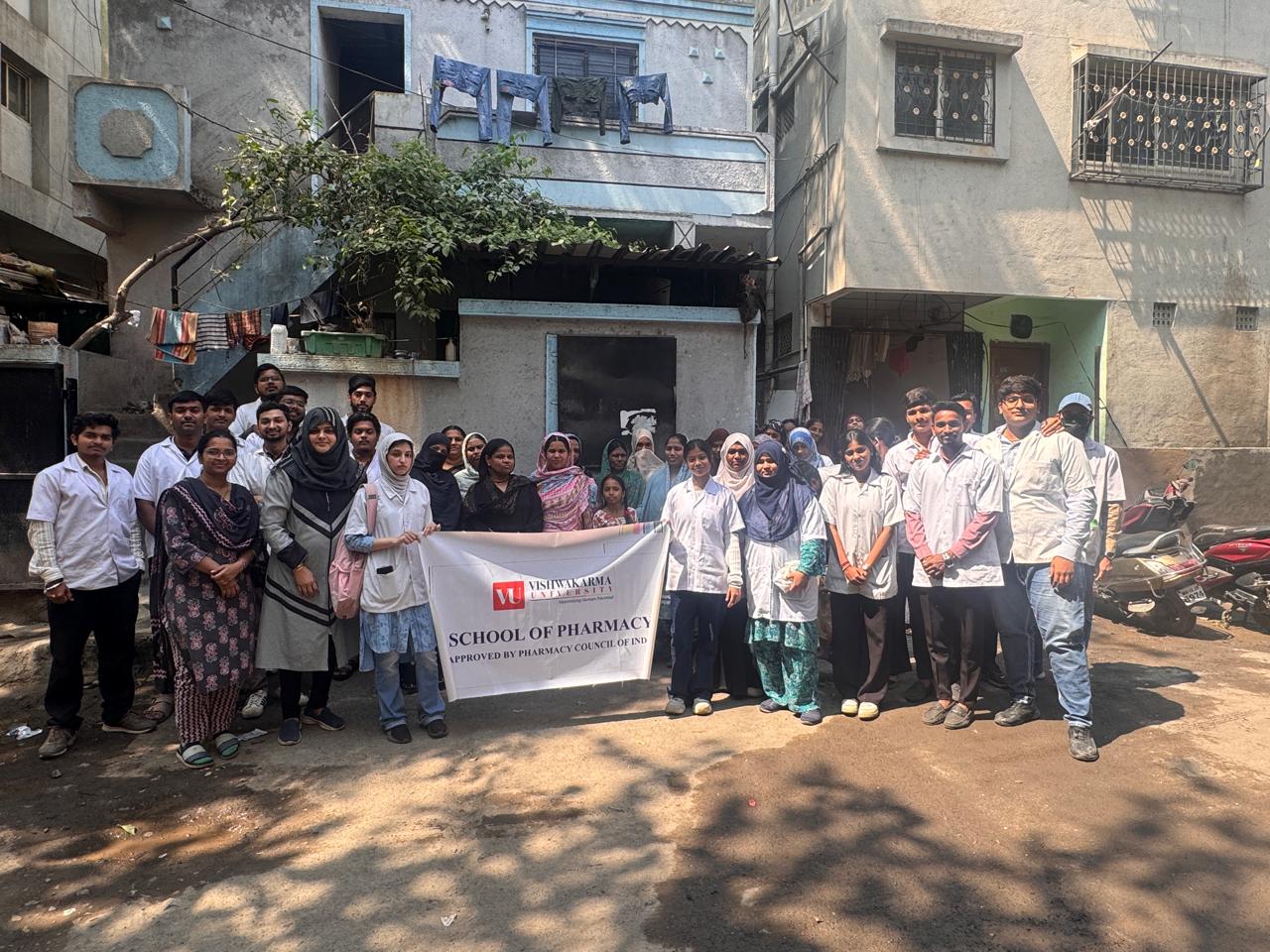
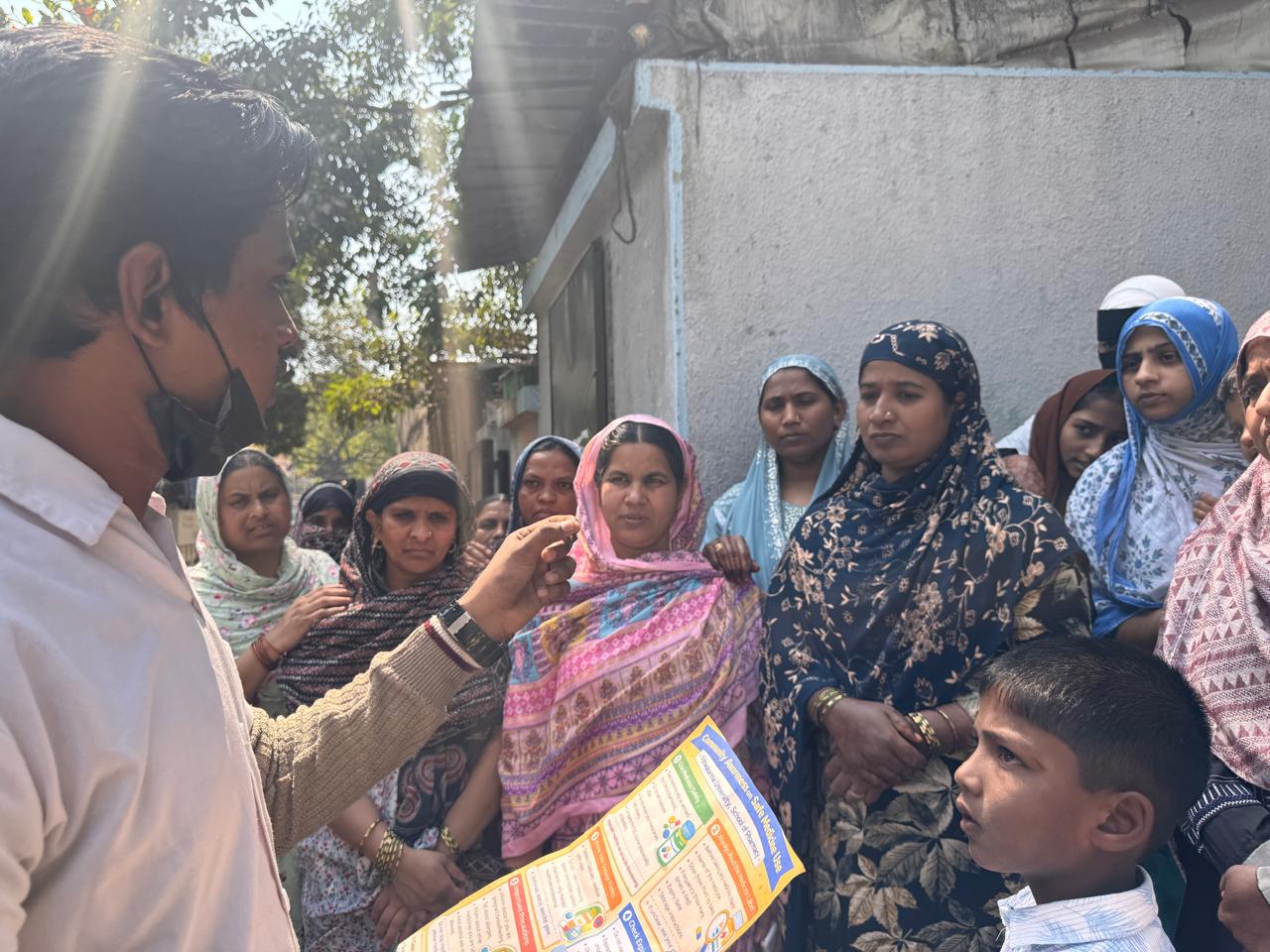
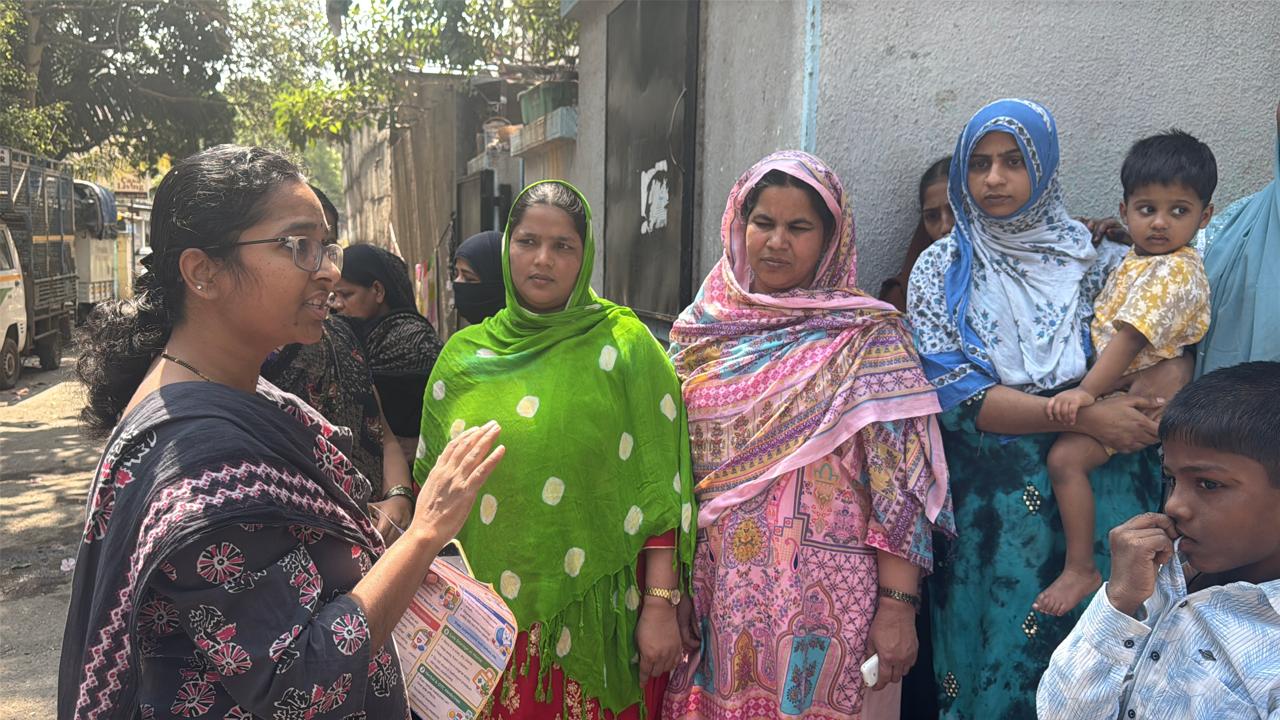
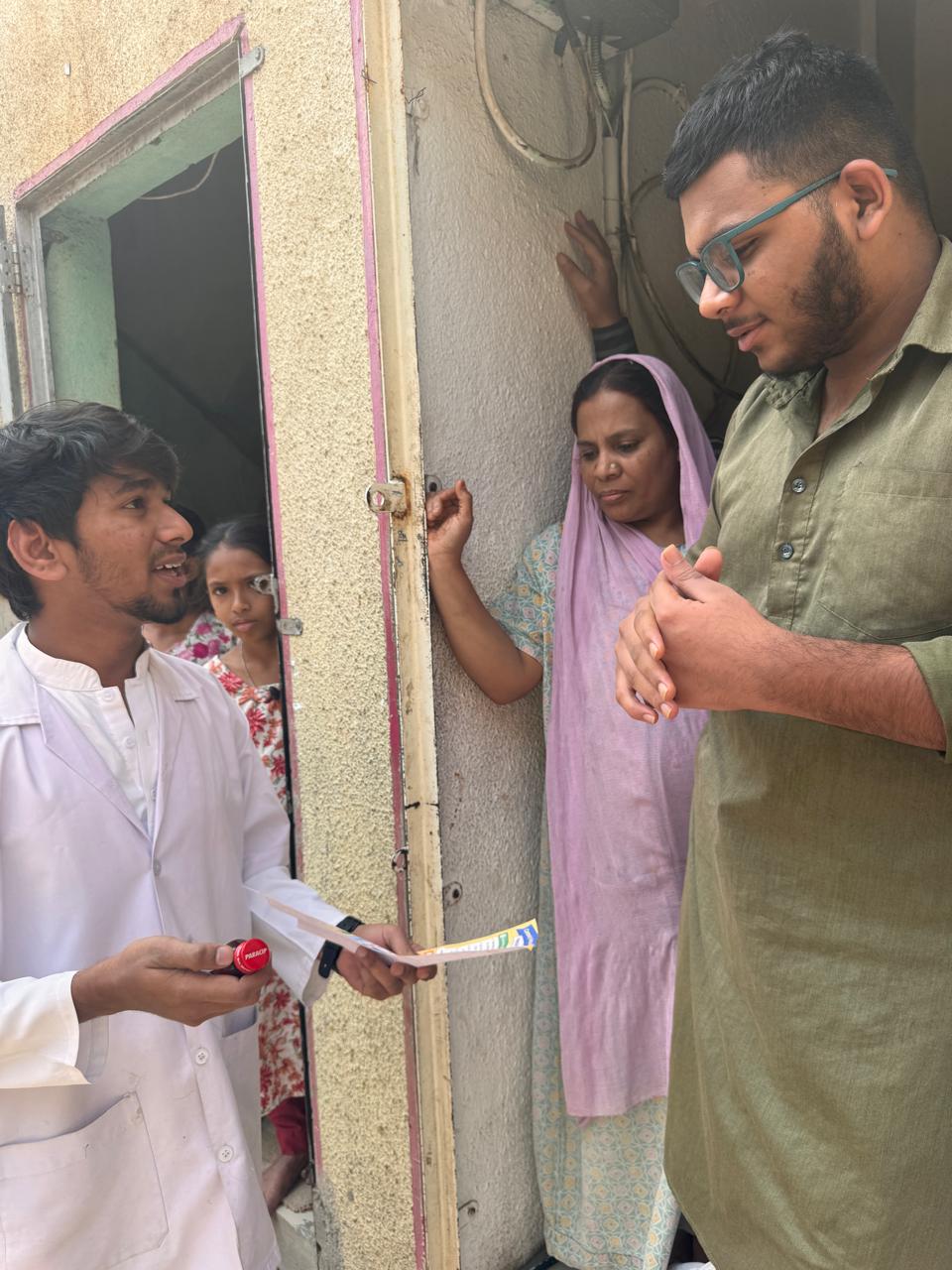
Organized By: Department of Computer Science in collaboration with Genesis Club of Technical Wing of Student Council, Vishwakarma University, Pune.
Date: Tuesday, 03 February 2026
Faculty Coordinators:
Dr. Sonali Powar
Dr. Madhuri Pant
Dr. Jupinder Kaur
Conveners:
Prof. Dr. Kailas Patil, Dean, Faculty of Science & Technology
Prof. Vaibhav Thakare, Director, Student Welfare
Dr. Pavitha Nooji, Associate Dean, Faculty of Science & Technology
Dr. Rajkumar Jagdale, HOD, Department of Computer Science
Student Coordinators:
Miss. Mahinoor Shaikh
Miss. Alafiya Sukhiwala
Mr. Sydney Rikoma
Mr. Yash Patel
Miss. Urvashi Jethva
Mr. Darshan Parekh
Participants:
The main objective of the Sensor Sphere IoT Project Competition was to encourage students to design and develop innovative IoT-based solutions for real-world problems. The event aimed to promote practical learning by providing a platform for students to apply their theoretical knowledge in electronics, programming, and networking. It also focused on enhancing students’ creativity, technical competence, teamwork, and presentation skills. Additionally, the competition sought to create awareness about emerging technologies and prepare students for industry-oriented projects.
The competition successfully enhanced students’ practical understanding of IoT technologies and their real-world applications. Participants gained valuable experience in project development, problem-solving, and technical communication. The event helped students build confidence in presenting their ideas before evaluators and peers.
Moreover, the program strengthened collaboration among departments and encouraged interdisciplinary learning. Students were motivated to pursue advanced projects and research in emerging technologies. The distribution of certificates and awards further boosted student morale and inspired continued innovation. Overall, the competition proved to be highly effective in nurturing technical skills and industry readiness among students.
Session Overview:
The Sensor Sphere IoT Project Competition was conducted on 03 February 2026 at Building No. 2, Vishwakarma University, Pune. The event commenced at 9:00 AM and witnessed enthusiastic participation from undergraduate and postgraduate students. Participants presented their IoT-based projects individually or in teams of up to three members.
The competition provided students with an opportunity to demonstrate working models and explain their technical implementation. Projects were evaluated based on innovation, practical usefulness, functionality, and presentation skills. The event was coordinated by faculty members and student representatives in collaboration with the Genesis Club and Student Council, ensuring smooth execution of all activities.
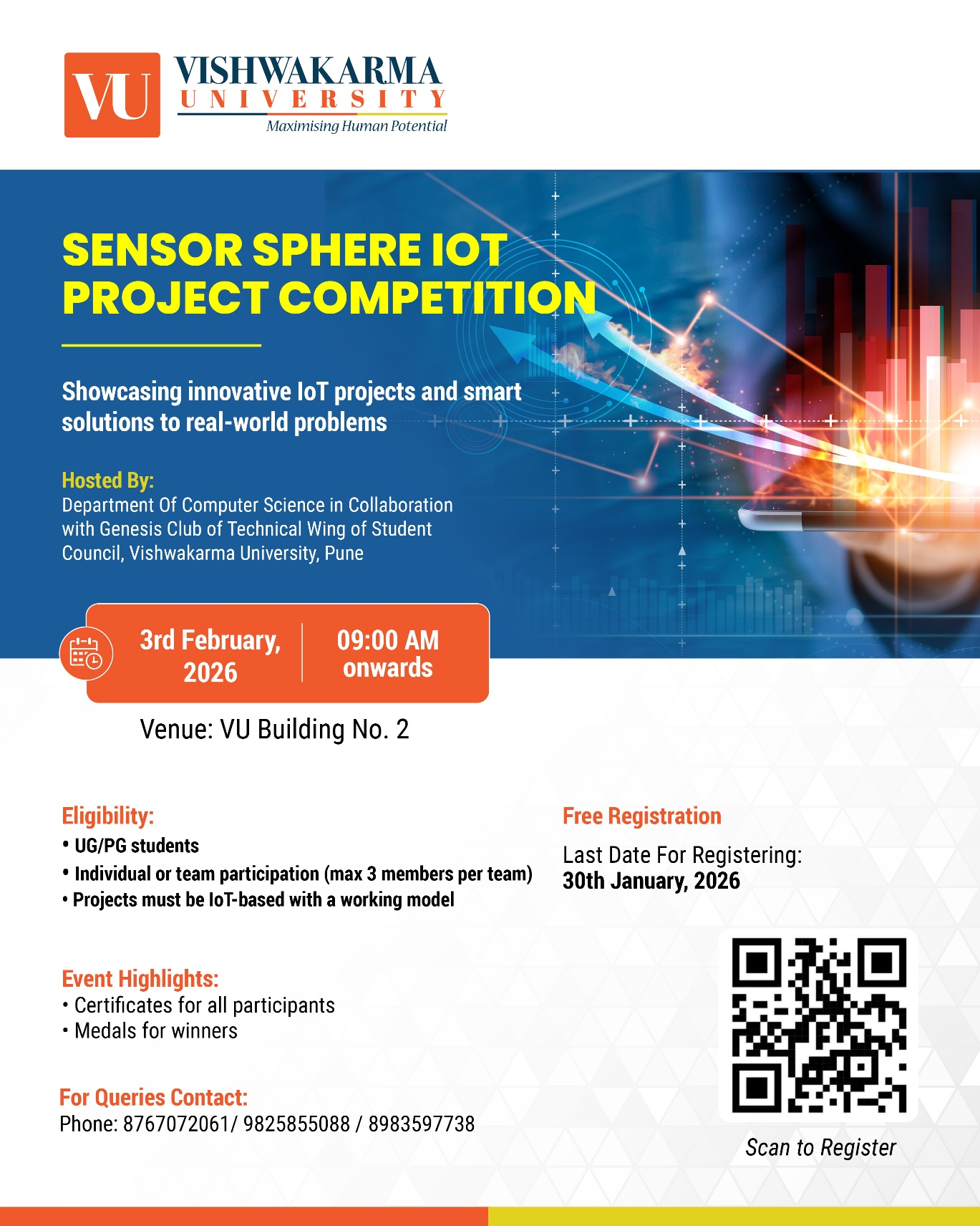
.jpeg)

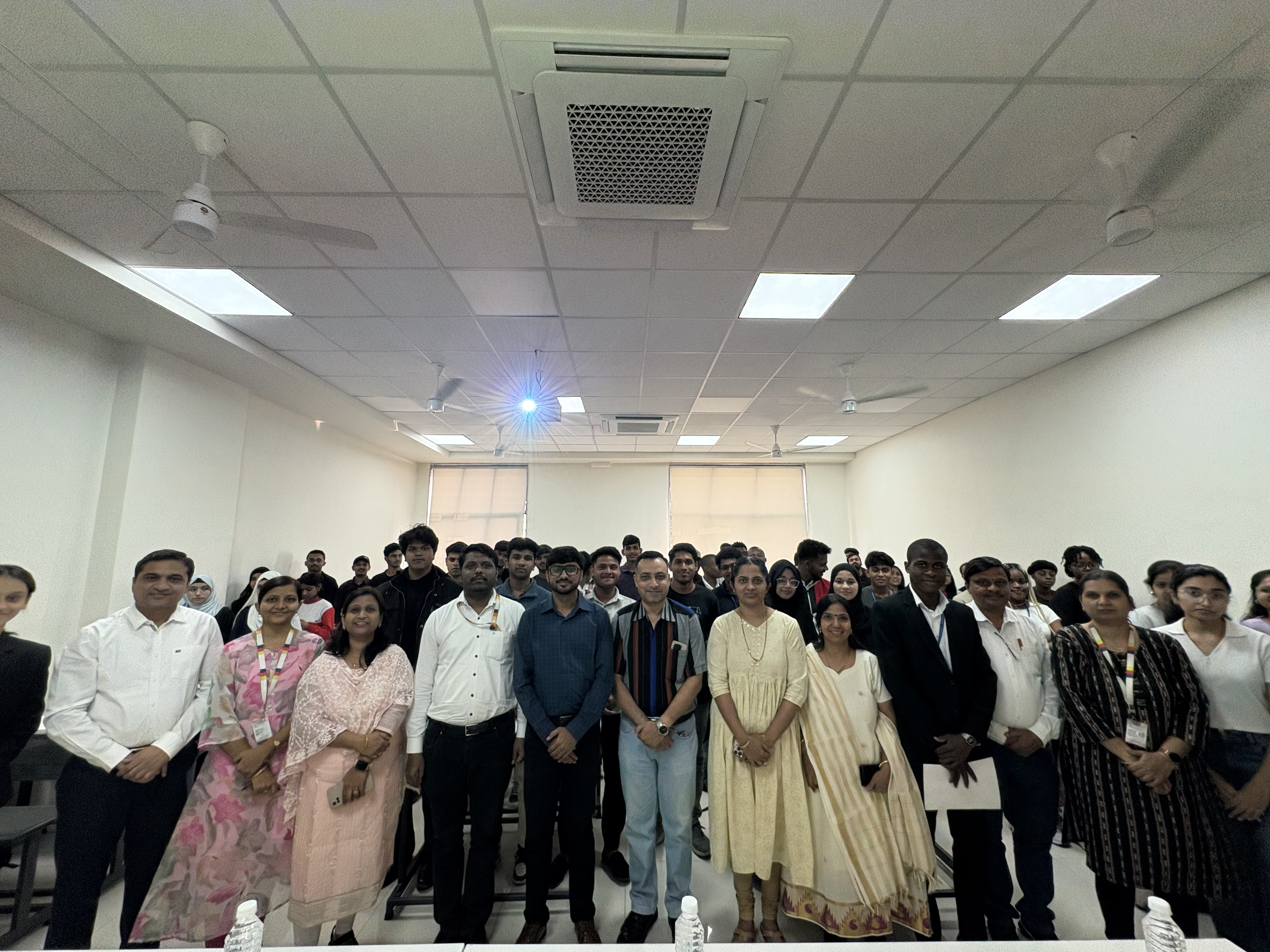
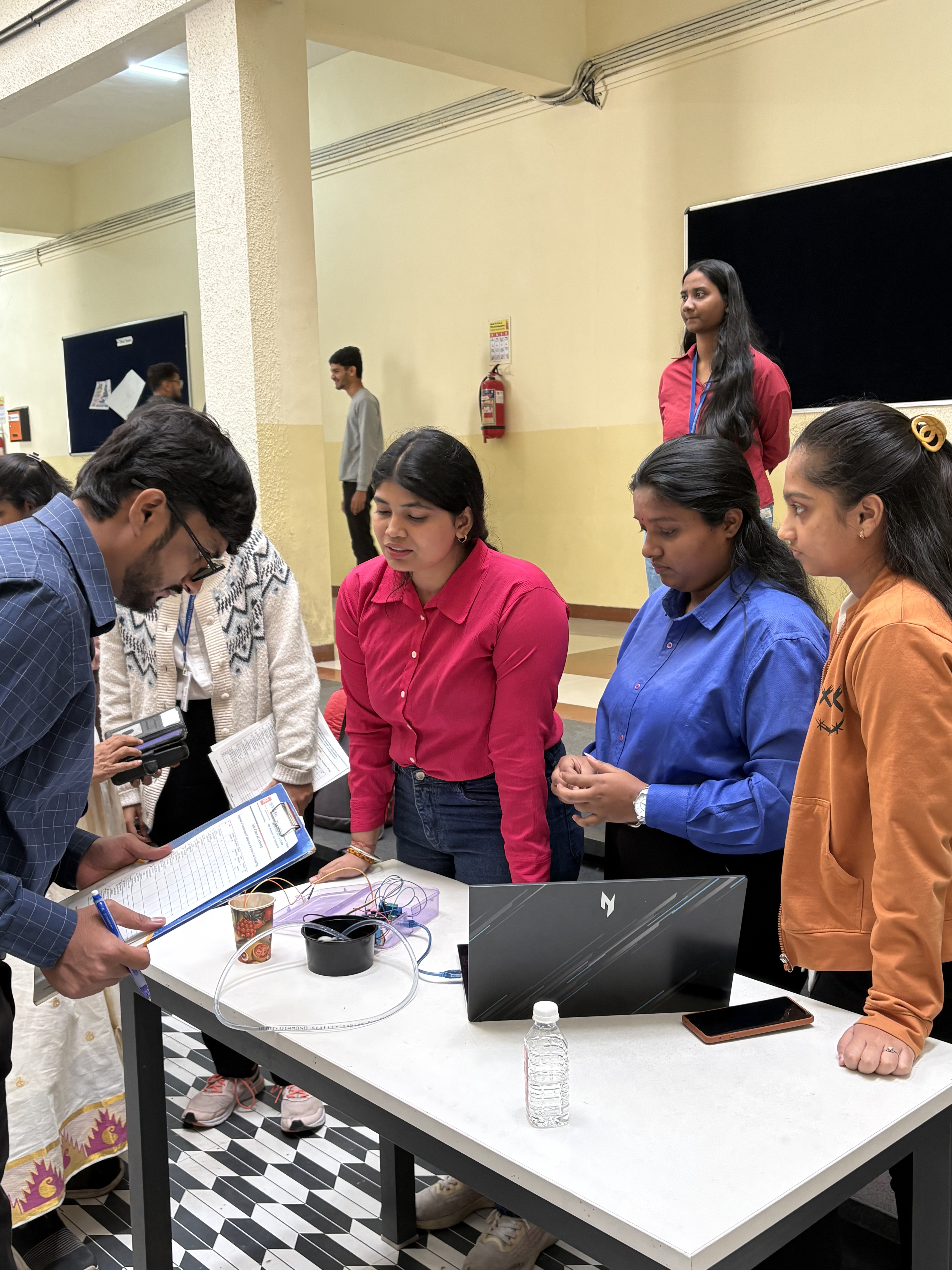
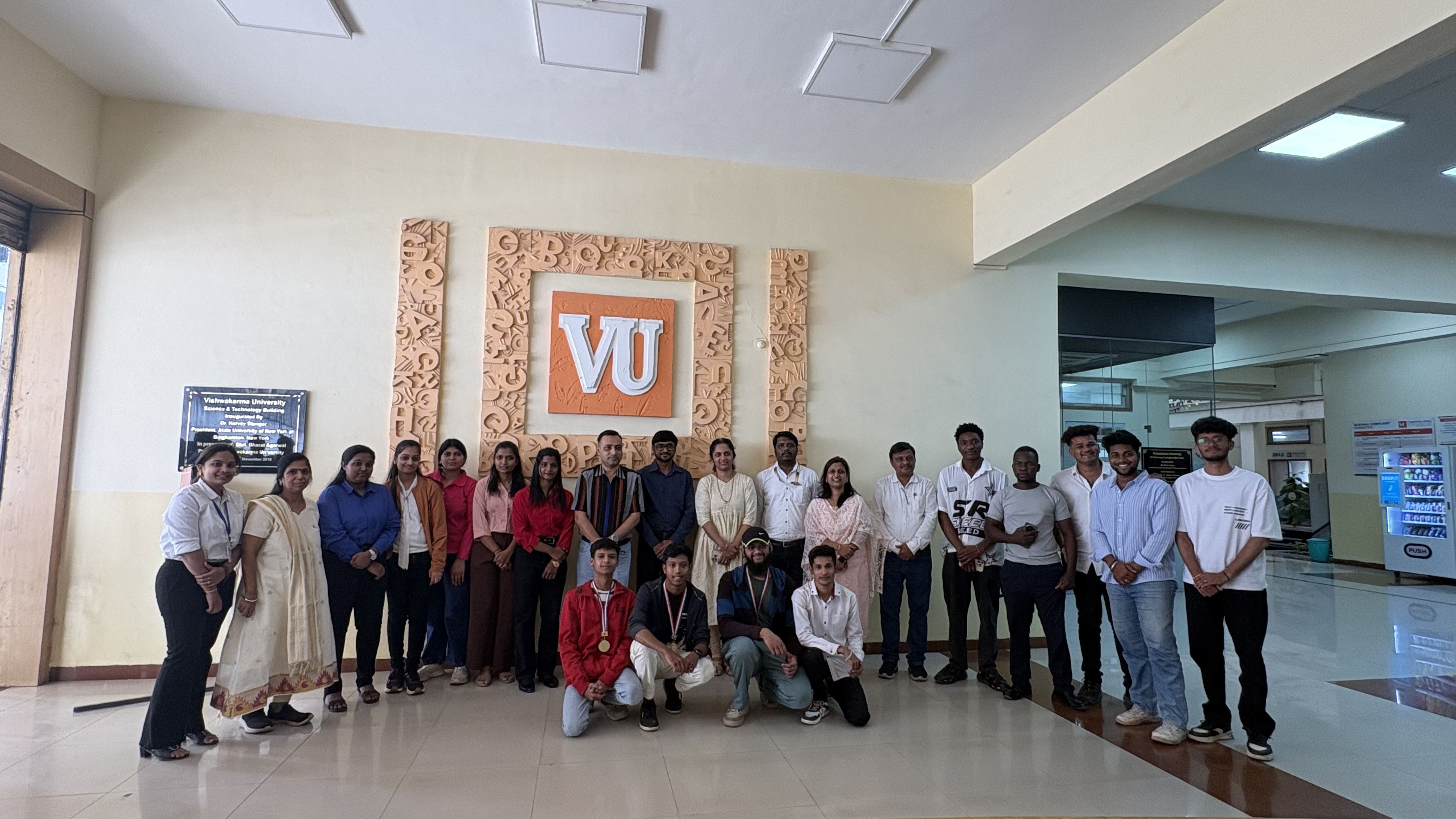
Date: 24th & 25th September 2024
The Inter-Department Basketball Tournament was held on the 24th and 25th of September, bringing together teams from various departments for a highly competitive and entertaining event. The tournament showcased the exceptional athleticism, teamwork, and sportsmanship of all 130 participating students including Men & Women. The first day of the tournament saw an impressive turnout of supporters from different departments, cheering their teams on. The initial rounds featured several intense matches. The second day of the tournament was even more intense, as the semifinals and finals were held, with the excitement in the air palpable. Overall 27 matches were played throughout the tournament. Dr. Chetan Kapadnis, Director, IQAC and Prof. Nishant Khamboj, Dean, Art & Design were the chief Guest of Final Matches. The event coordinator were Prof. Remi Thomas and Dr. Nazia Wahid.
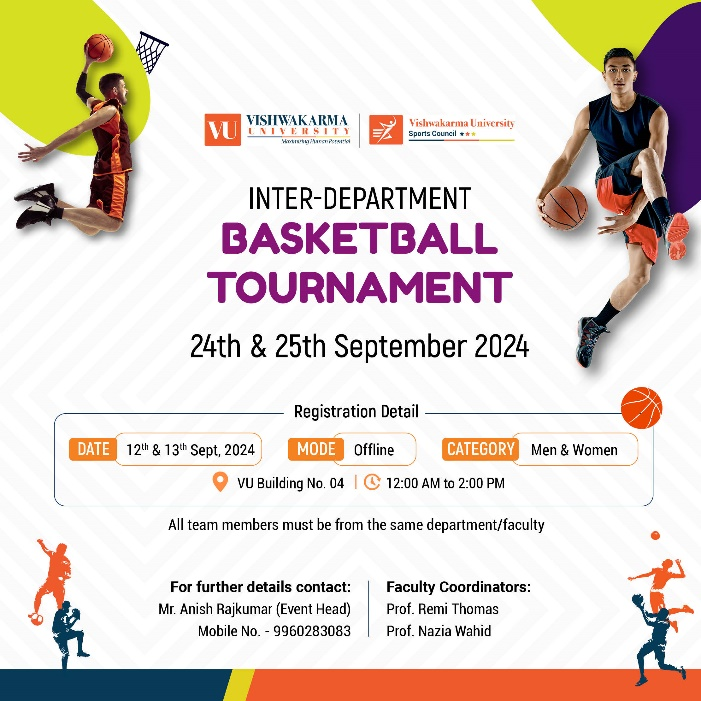
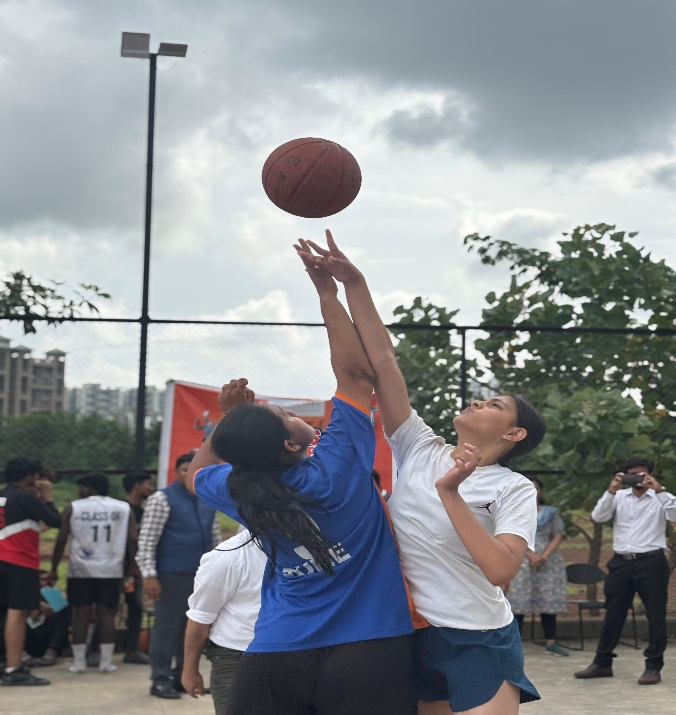
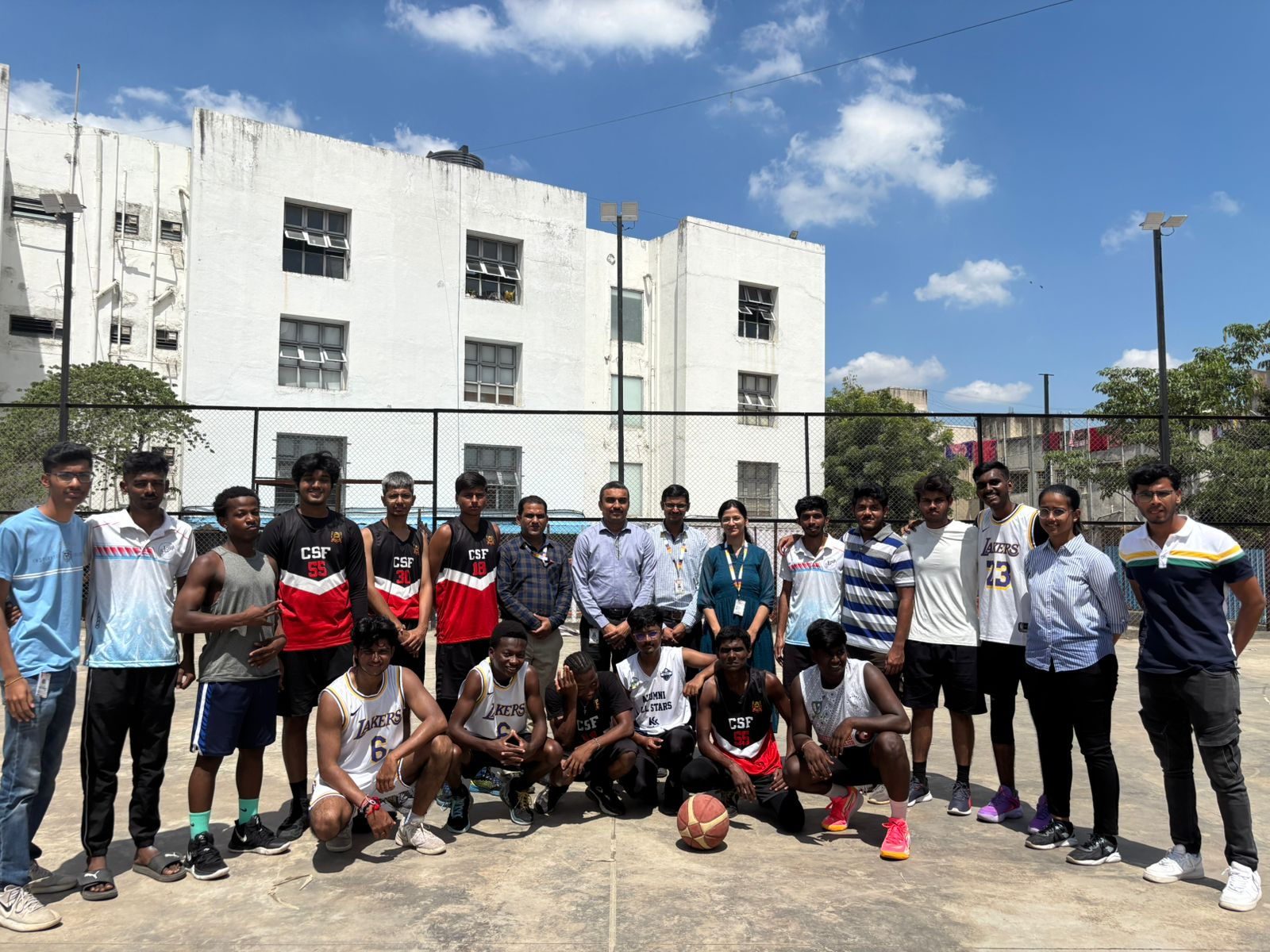
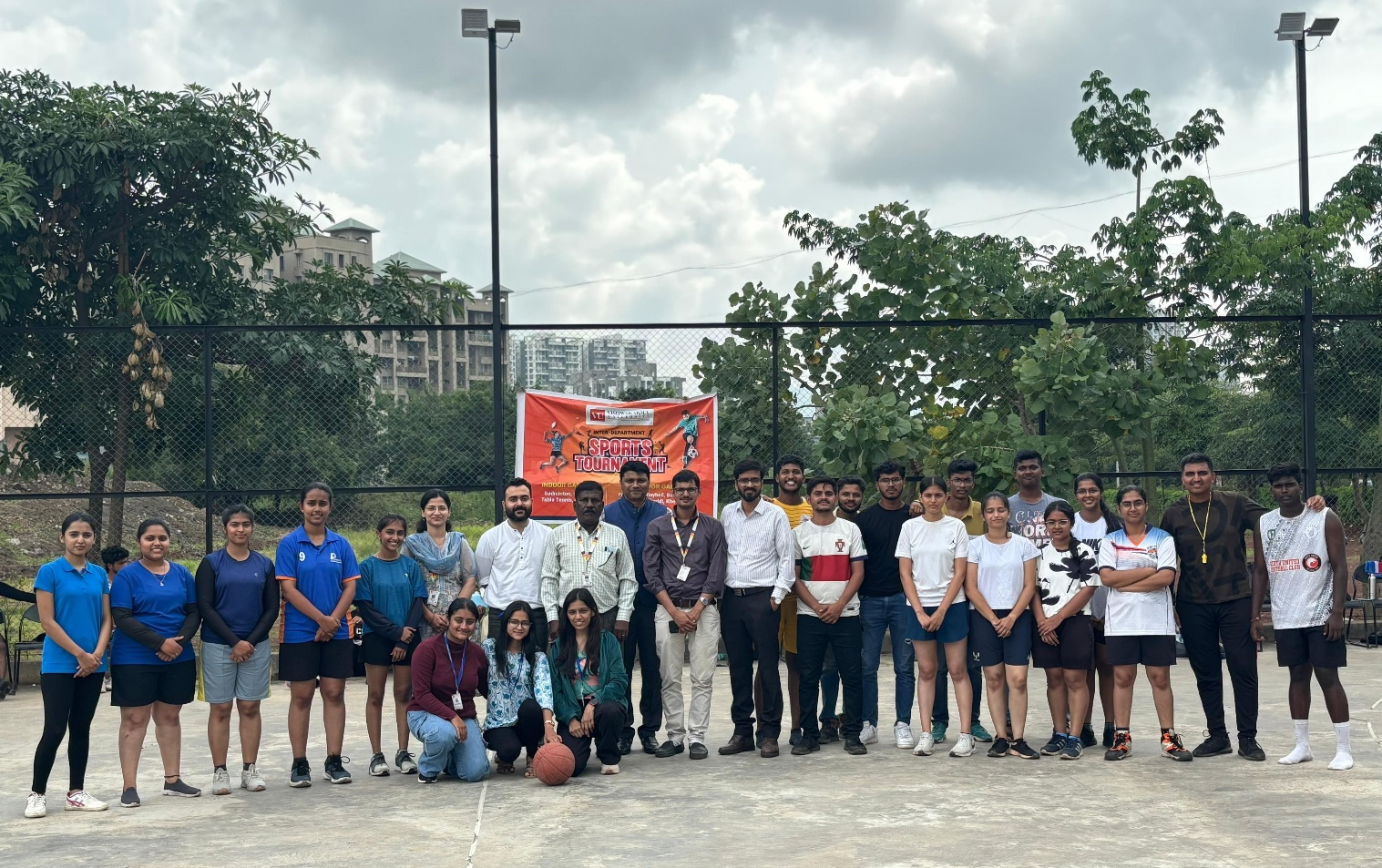
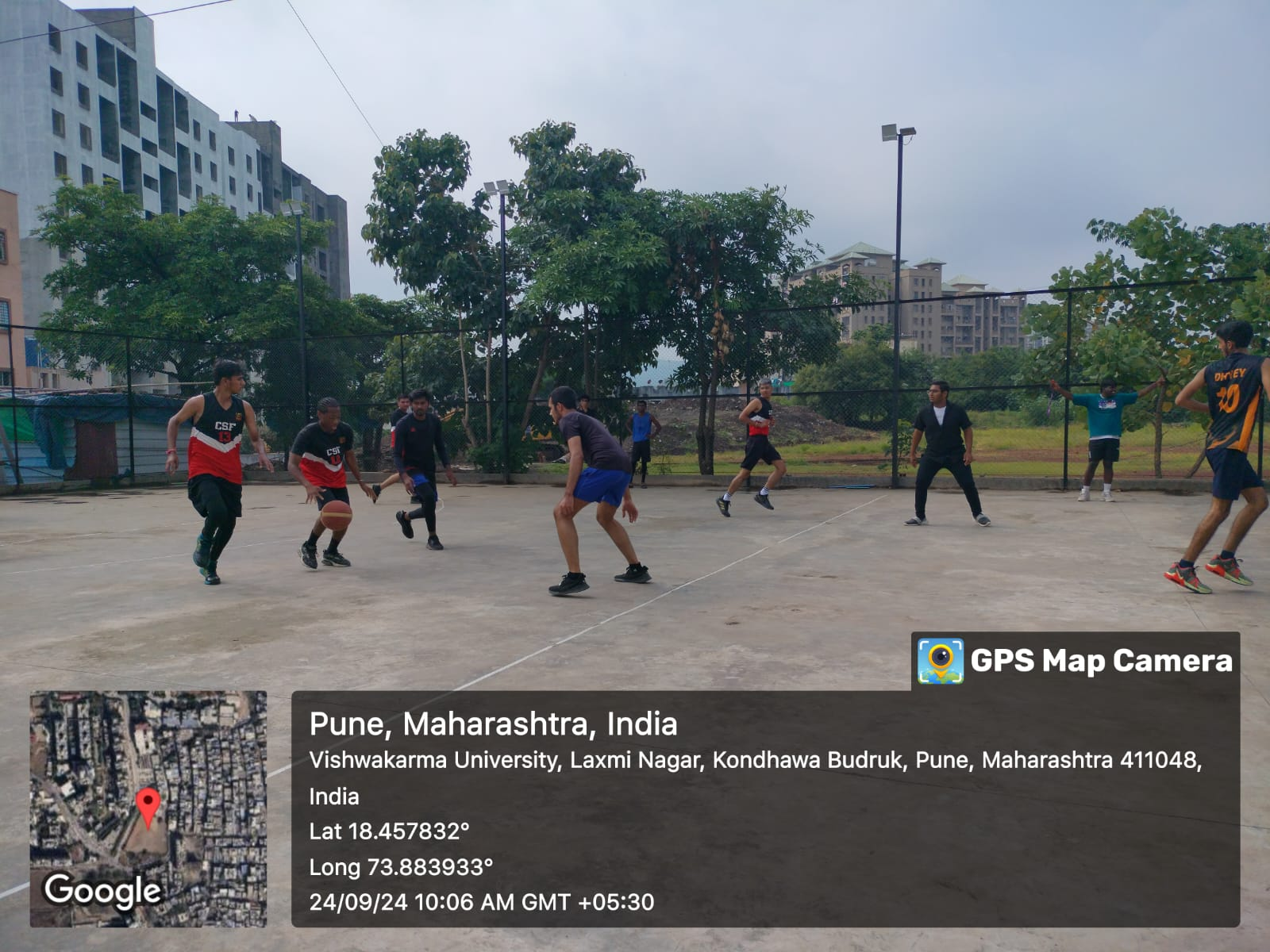
The Inter-Department Basketball Tournament was more than just a sporting event; it was a significant contributor to the overall well-being, unity, and development of the student body. Its impact extends beyond the two days of competition, laying the groundwork for a more dynamic and interconnected campus atmosphere. It has become a catalyst for physical fitness, sportsmanship, leadership, and collaboration within the college, making it an essential part of student life and college culture.
Date:21st to 23rd October 2024
The Inter-Department Cricket Tournament organized by Vishwakarma University on the 21st to 23rd October 2024 was a grand success, showcasing the spirit of sportsmanship, teamwork, and enthusiasm among students and staff. The event was held on the university grounds and witnessed active participation from various departments. The tournament was filled with excitement of around 400 participants.


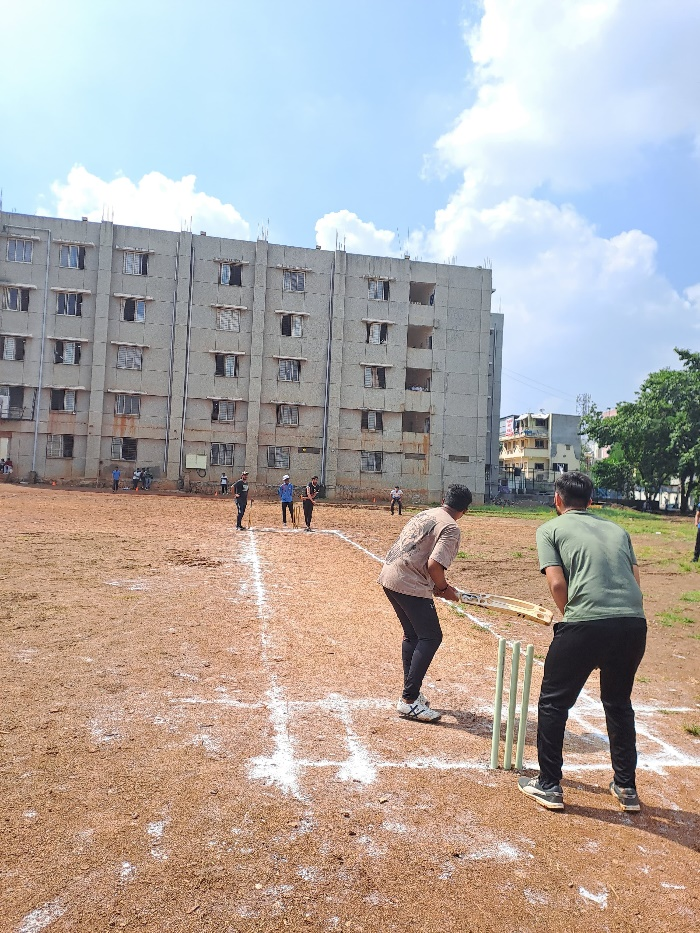
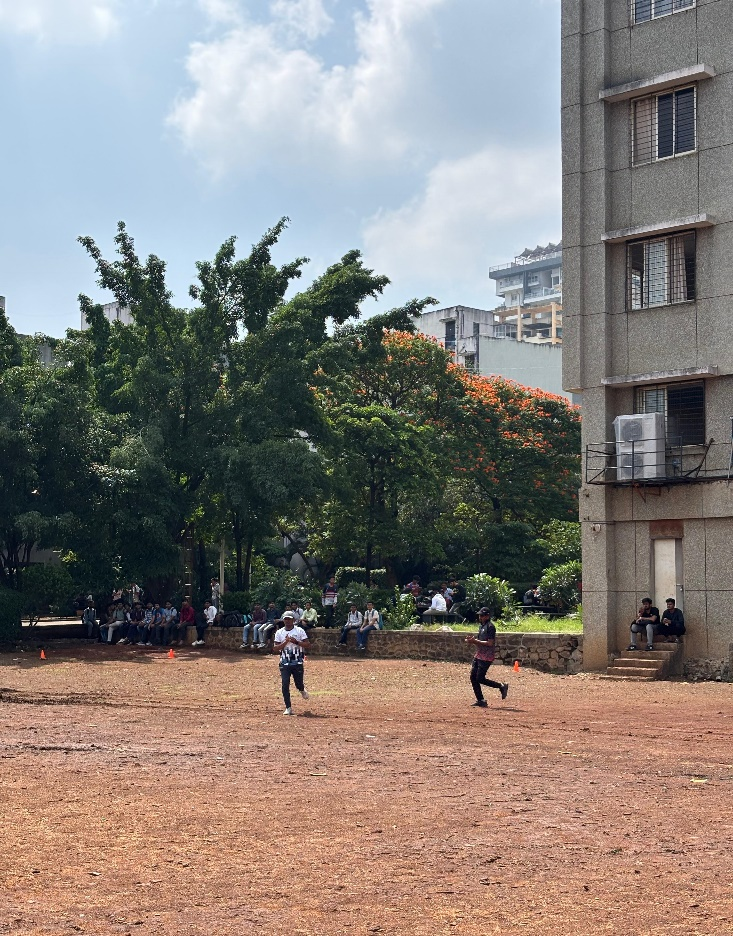
The Inter-Department Cricket Tournament 2024 was a testament to the vibrant campus life at Vishwakarma University. It brought together students and faculty, fostering camaraderie and healthy competition. The event's success reflects the university's commitment to nurturing well-rounded individuals.
Date:9th & 10th October 2024
The Inter-Department Volleyball Tournament was successfully conducted on the 9th & 10th October 2024, bringing together Volleyball enthusiasts from various departments to compete in an intense and highly engaging event. The tournament was filled with excitement, competitive spirit, and exceptional sportsmanship of all 150 participants. The event coordinator was Prof. Jayesh Baldota.
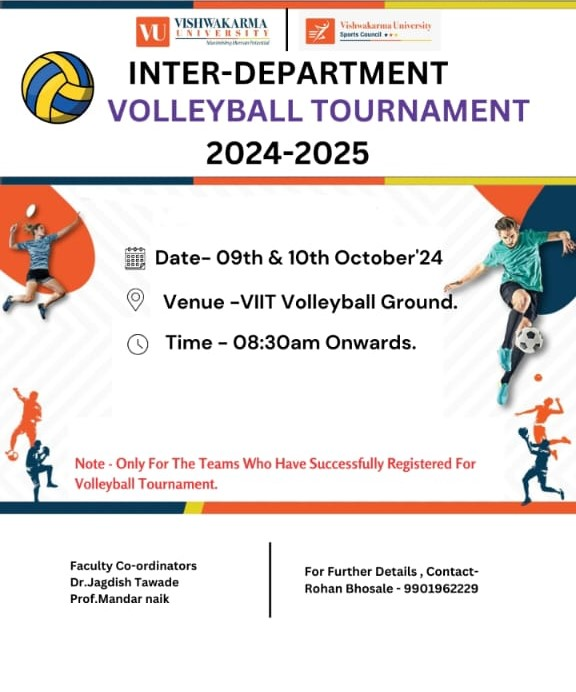
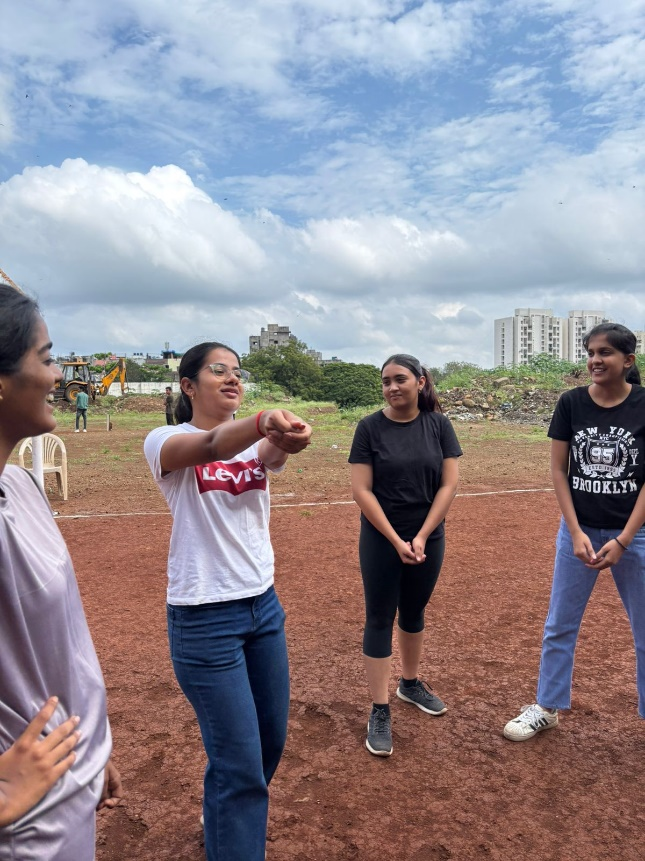
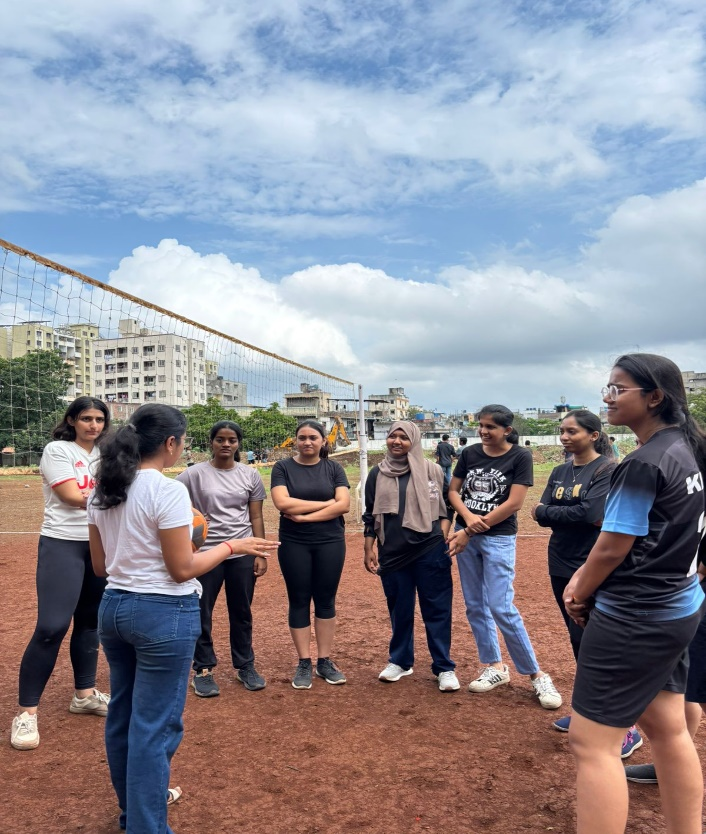
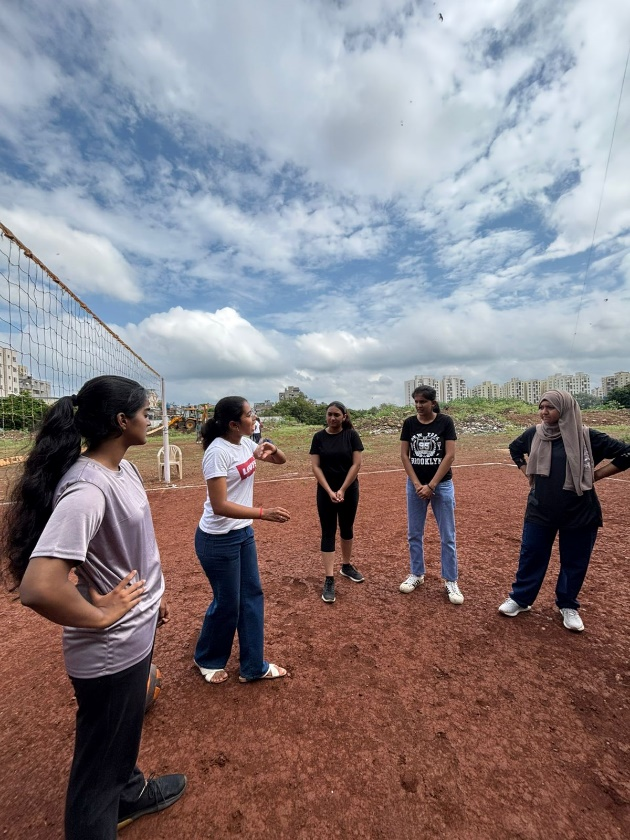
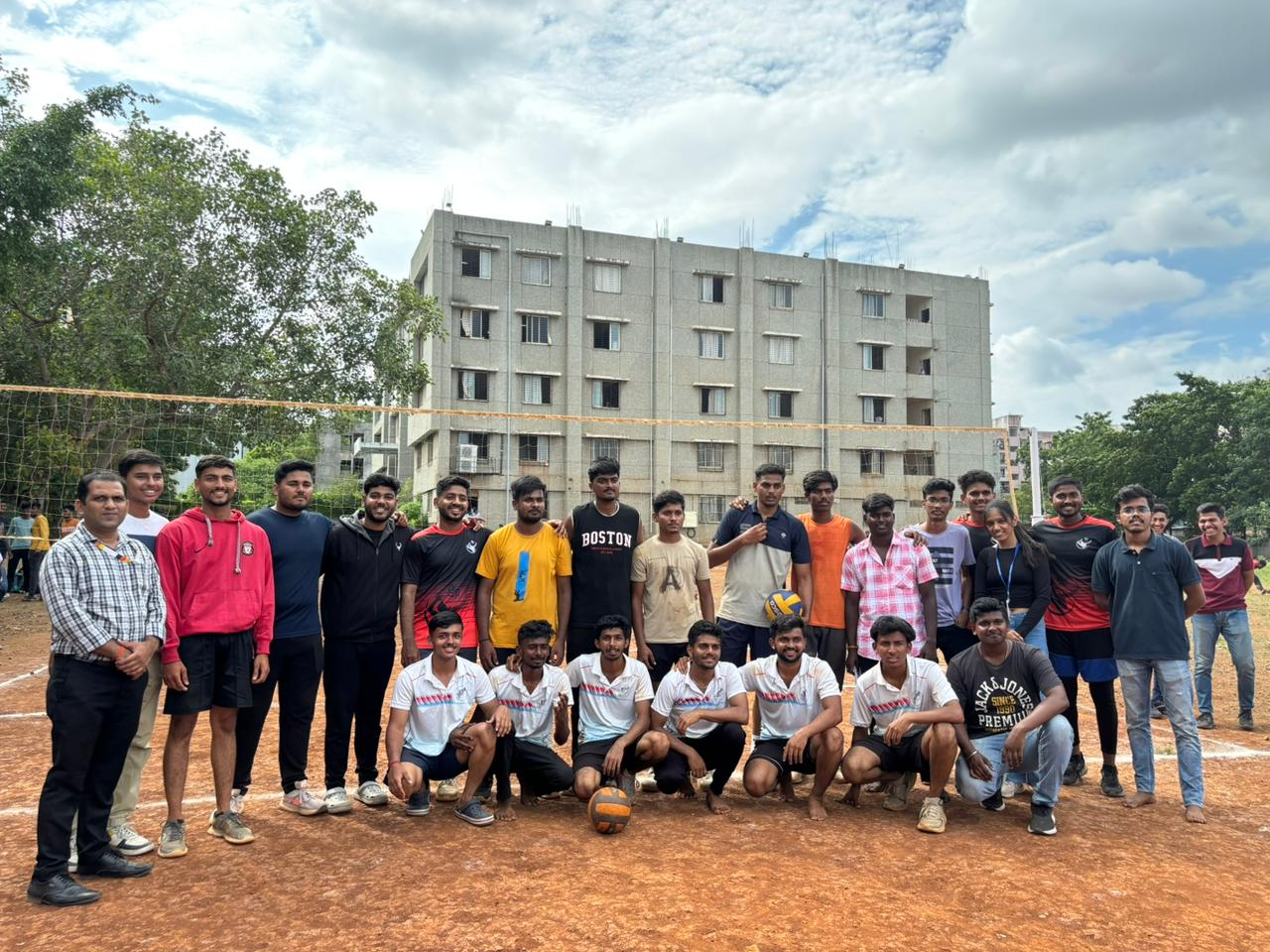
The Inter-Department Volleyball Tournament was more than just a sporting event; it was a significant contributor to the overall well-being, unity, and development of the student body. Its impact extends beyond the two days of competition, laying the groundwork for a more dynamic and interconnected campus atmosphere. It has become a catalyst for physical fitness, sportsmanship, leadership, and collaboration within the college, making it an essential part of student life and college culture.
Event Duration: 21st February to 4th March 2025
Overview of the Fest:
The Sports Council of Vishwakarma University successfully organized Vishwaayan Sports Fest 2025, spanning from 21st February 2025 to 4th March 2025. The event brought together a dynamic community of sports enthusiasts, featuring competitive matches in Table Tennis, Chess, Football, Volleyball, Cricket, and Basketball.
With over 1000+ participants and more than 50 dedicated volunteers, the fest created an engaging and competitive atmosphere that was thoroughly enjoyed by all attendees.

Date – 21st February 2025
Event – Chess
The Chess competition kicked off the sports fest with high energy and competitive spirit. The Chess tournament showcased intellectual prowess and strategic thinking. Participants engaged in intense battles of wits, displaying patience and calculated decision-making. The matches captivated spectators as players demonstrated their deep understanding of tactics and endgame strategies, making it a memorable event.
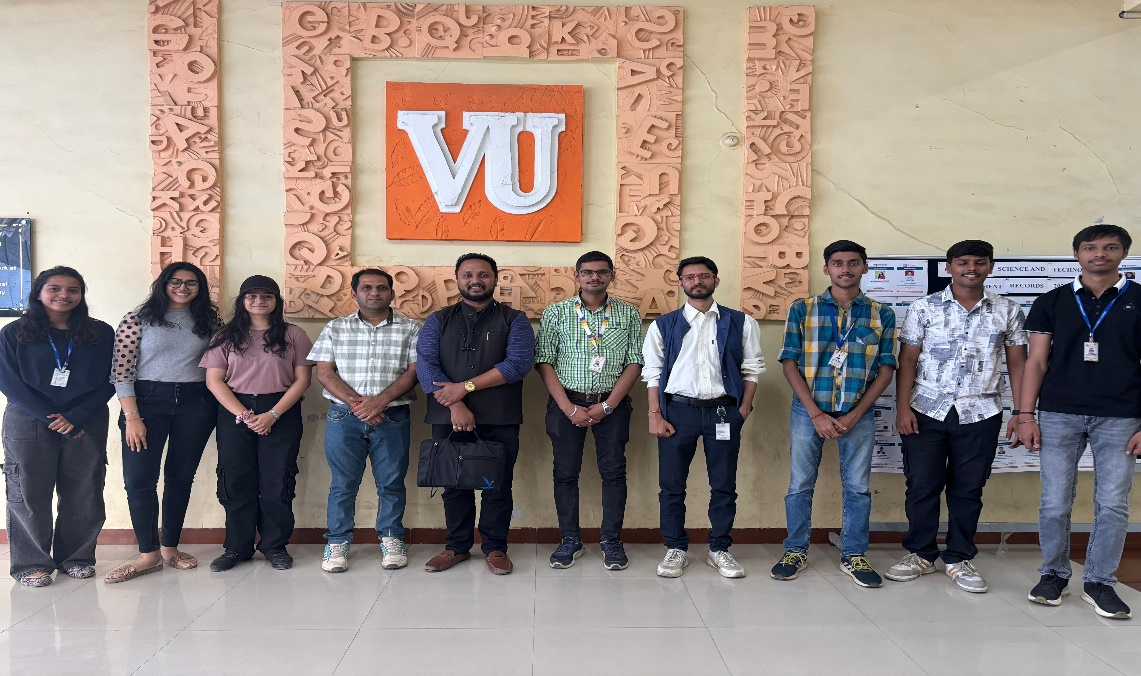
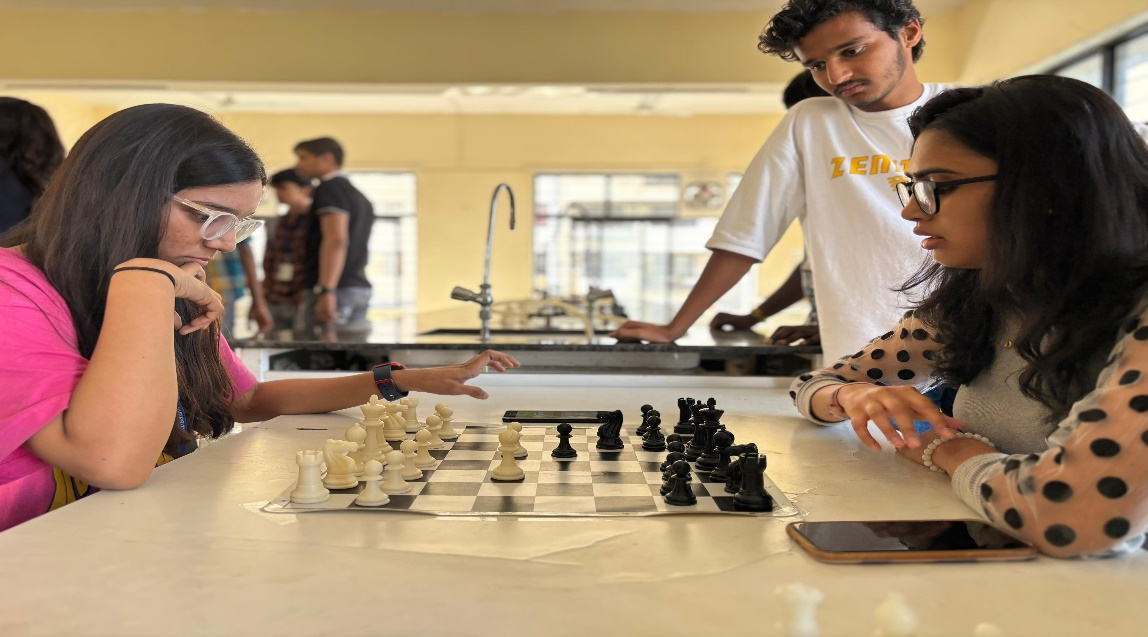
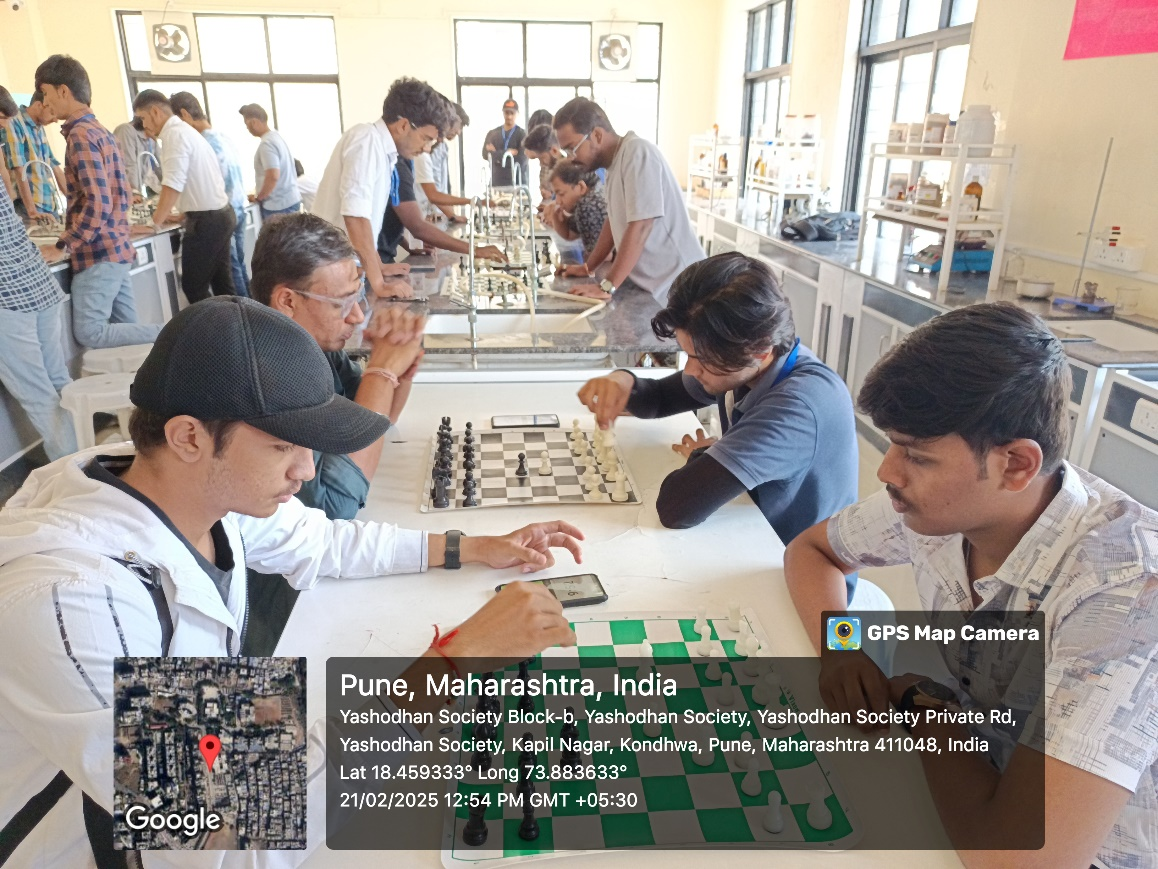
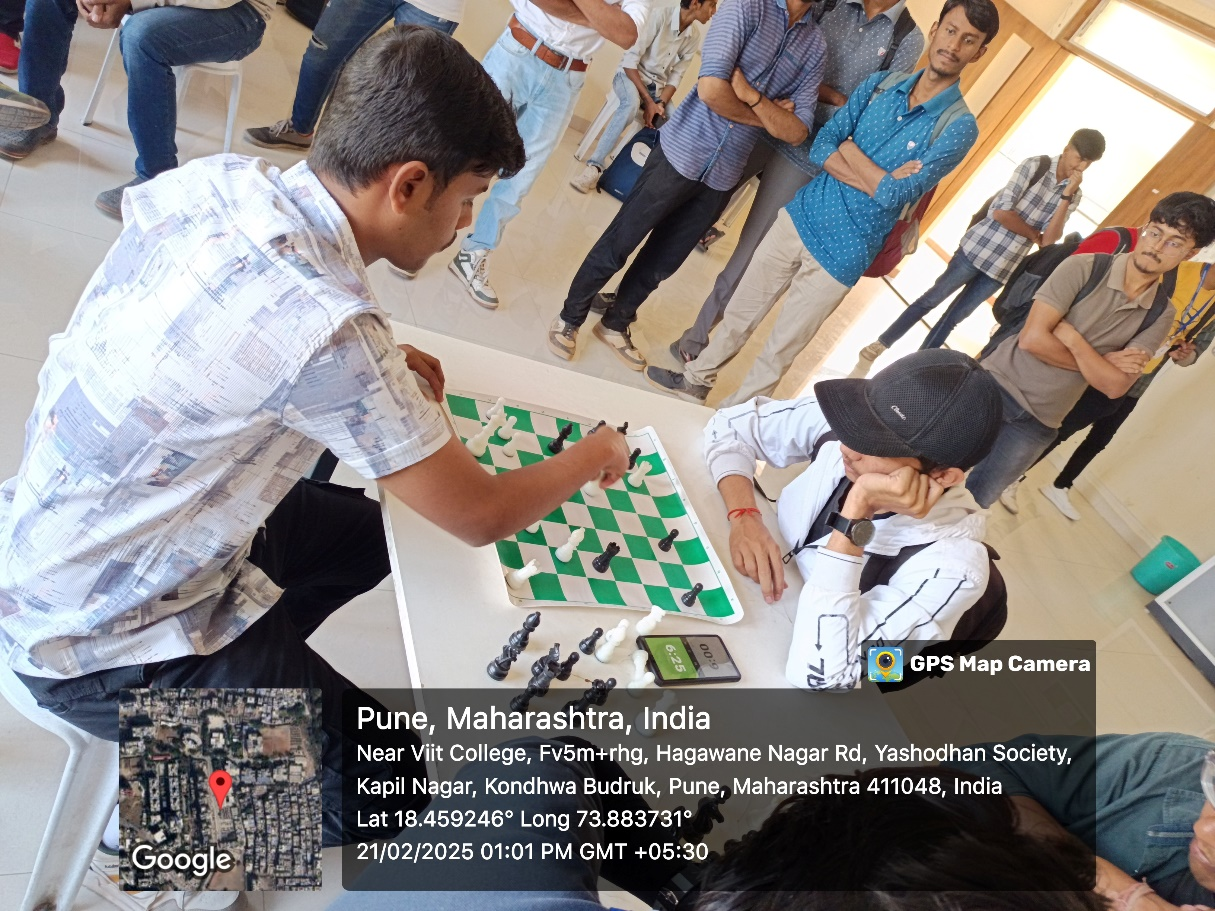
Date - 24th February 2025
Event – Table Tennis (M & W)
The Table Tennis competition kicked off the sports fest with high energy and competitive spirit. Participants displayed exceptional reflexes, precision, and agility. Each match was a test of speed and strategy, with players battling fiercely to secure victories. The event was marked by discipline and sportsmanship, setting a high standard for the rest of the fest.
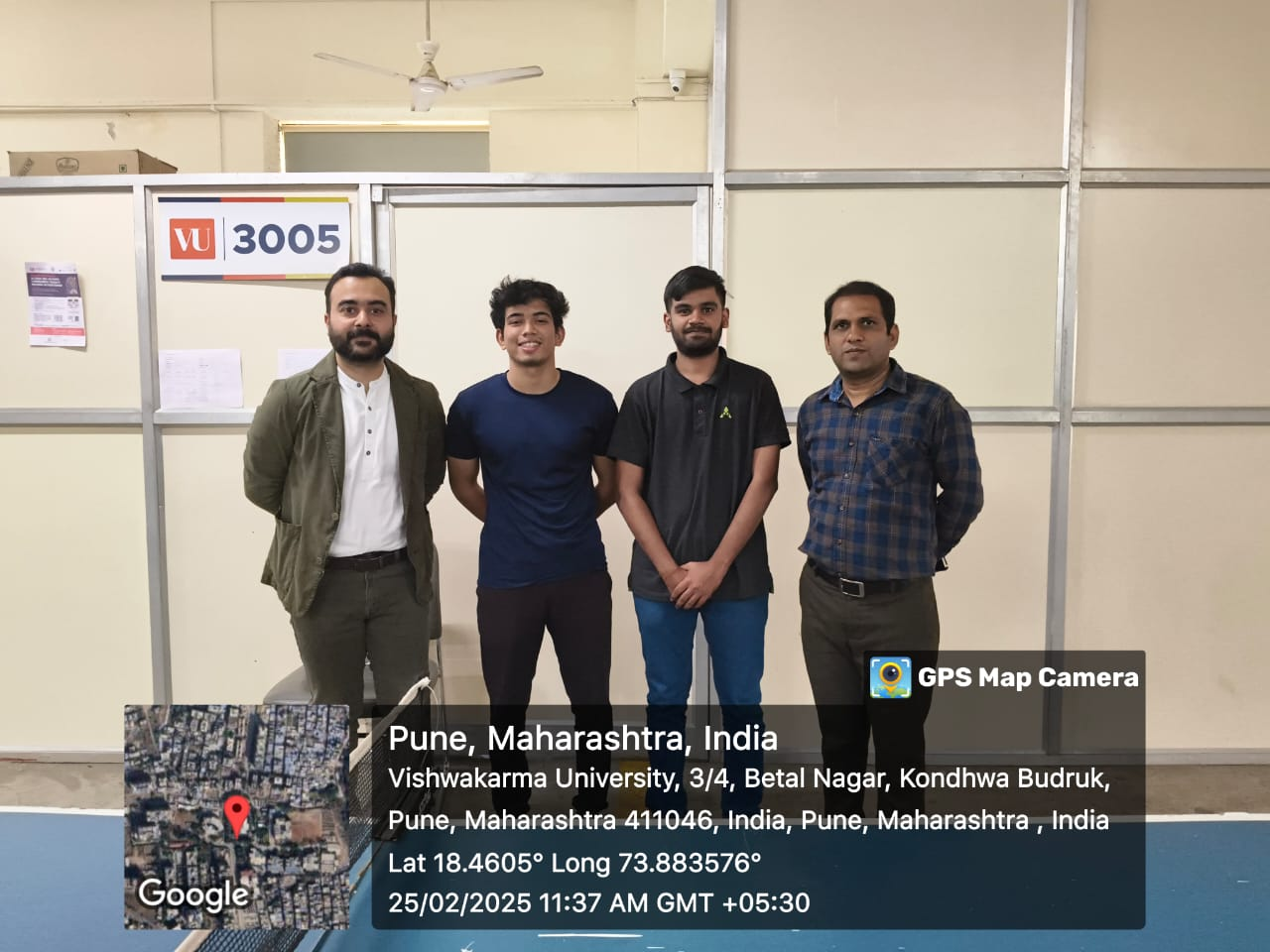
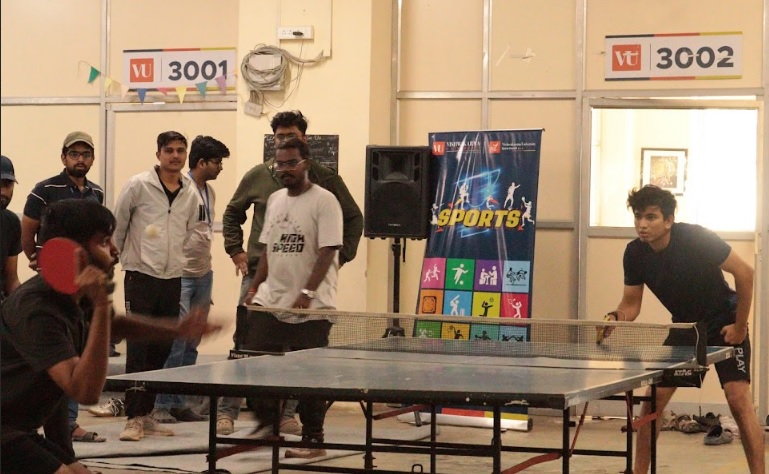
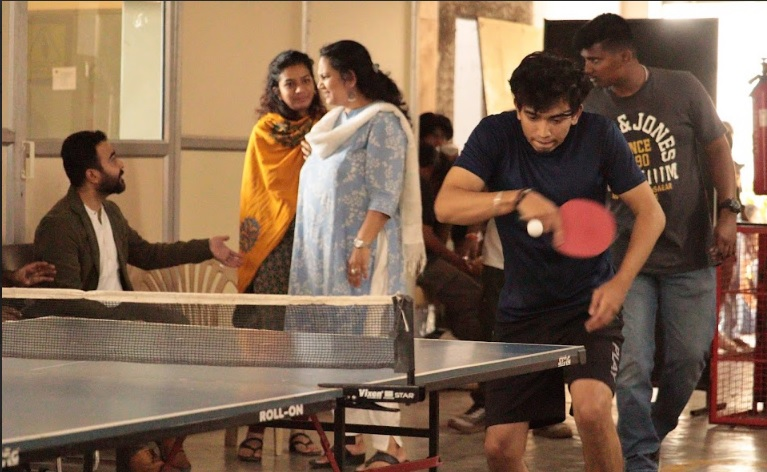
Date – 21st & 22nd February 2025
Event – Football (M)
The Football tournament held on 21st & 22nd February 2025 was one of the most anticipated events of the fest. With teams battling it out on the field, the matches were filled with fast-paced action, skillful dribbling, and exciting goals. The energy of the crowd was electrifying as players displayed exceptional sportsmanship and dedication. The tournament was a true testament to teamwork, strategy, and perseverance.
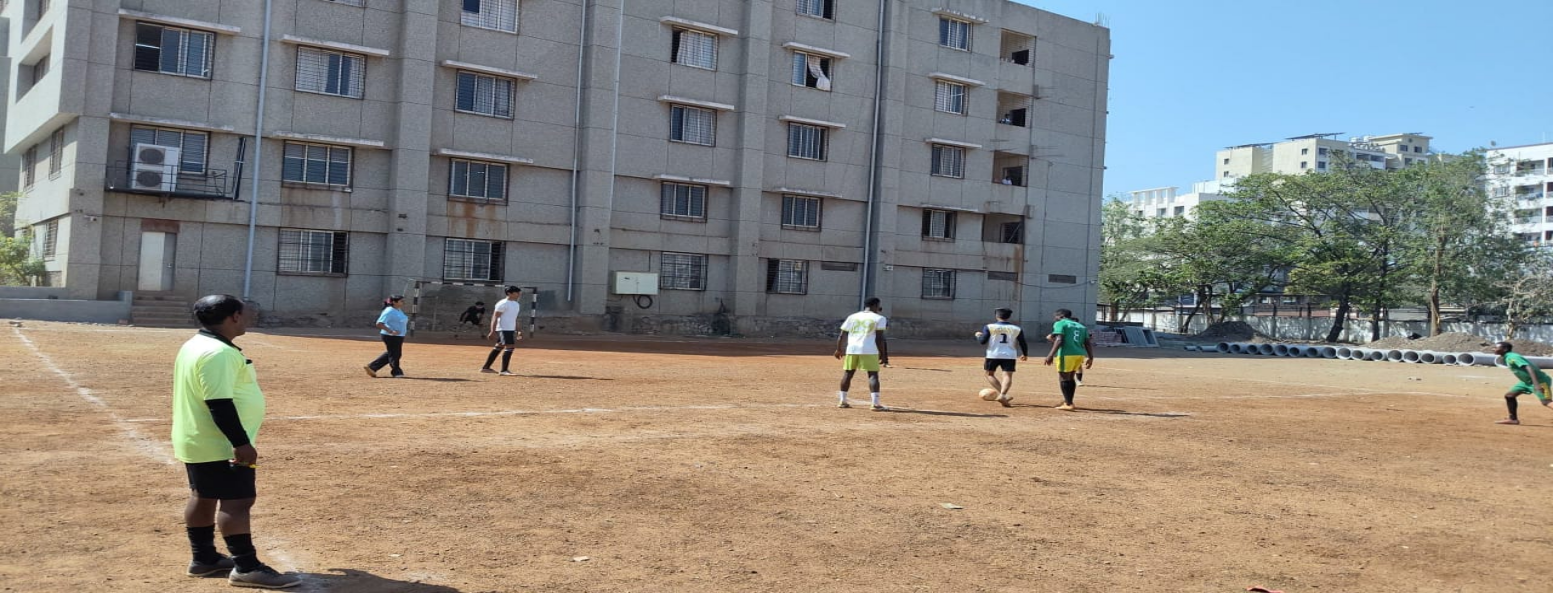
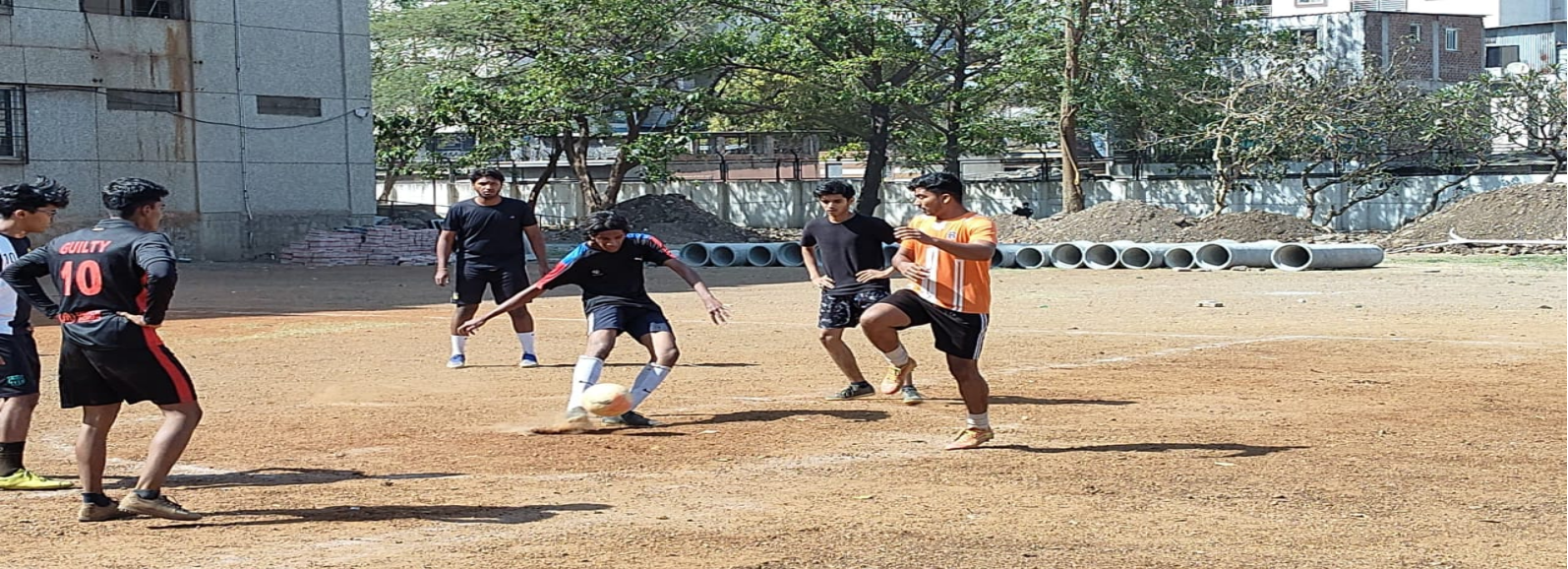
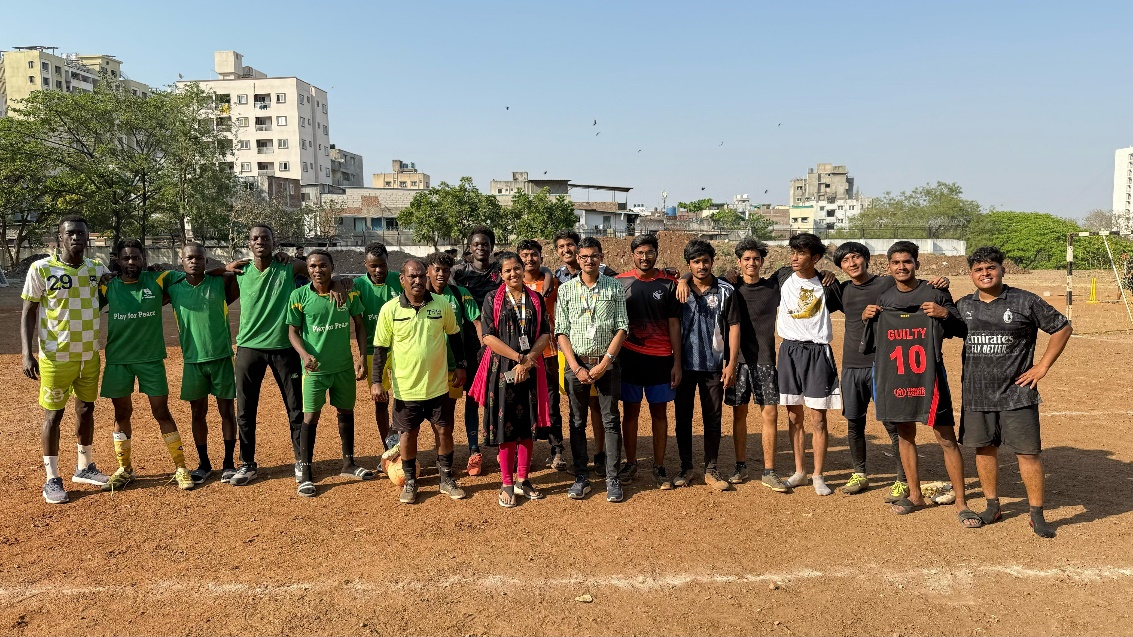
Date – 24th & 25th February 2025
Event – Volleyball
The Volleyball tournament held on 24th & 25th February 2025 was a spectacular event, featuring intense rallies, strategic teamwork, and powerful spikes. With multiple teams competing fiercely, the matches kept the audience on the edge of their seats. The players demonstrated excellent coordination and resilience, making it a memorable day for all participants and spectators.
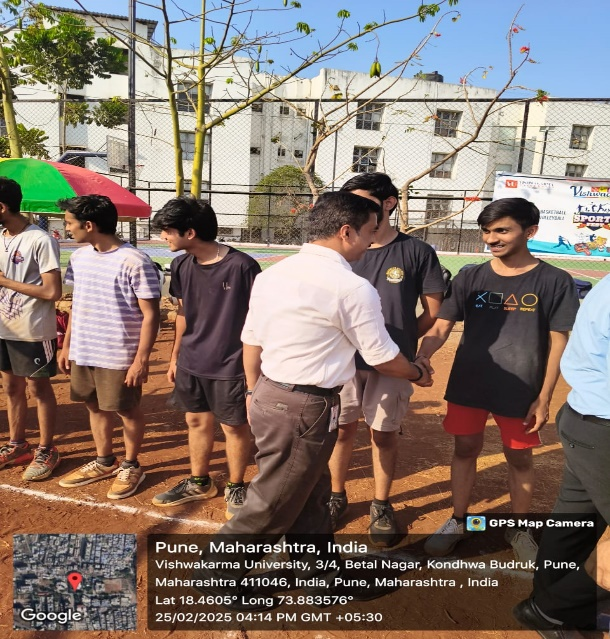
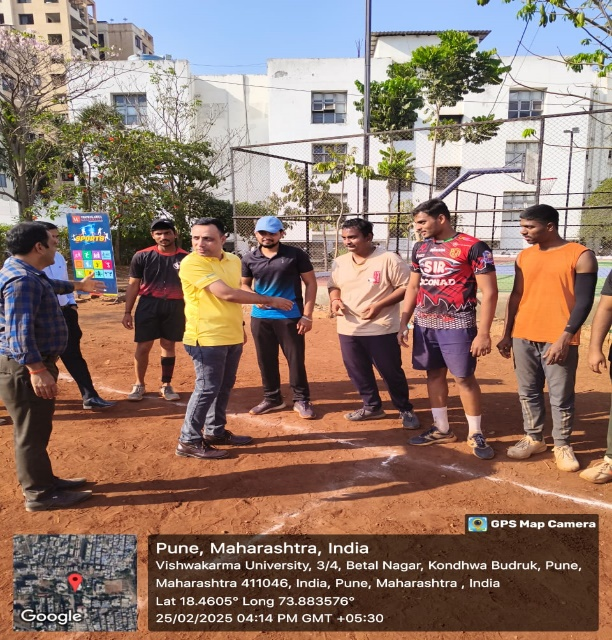
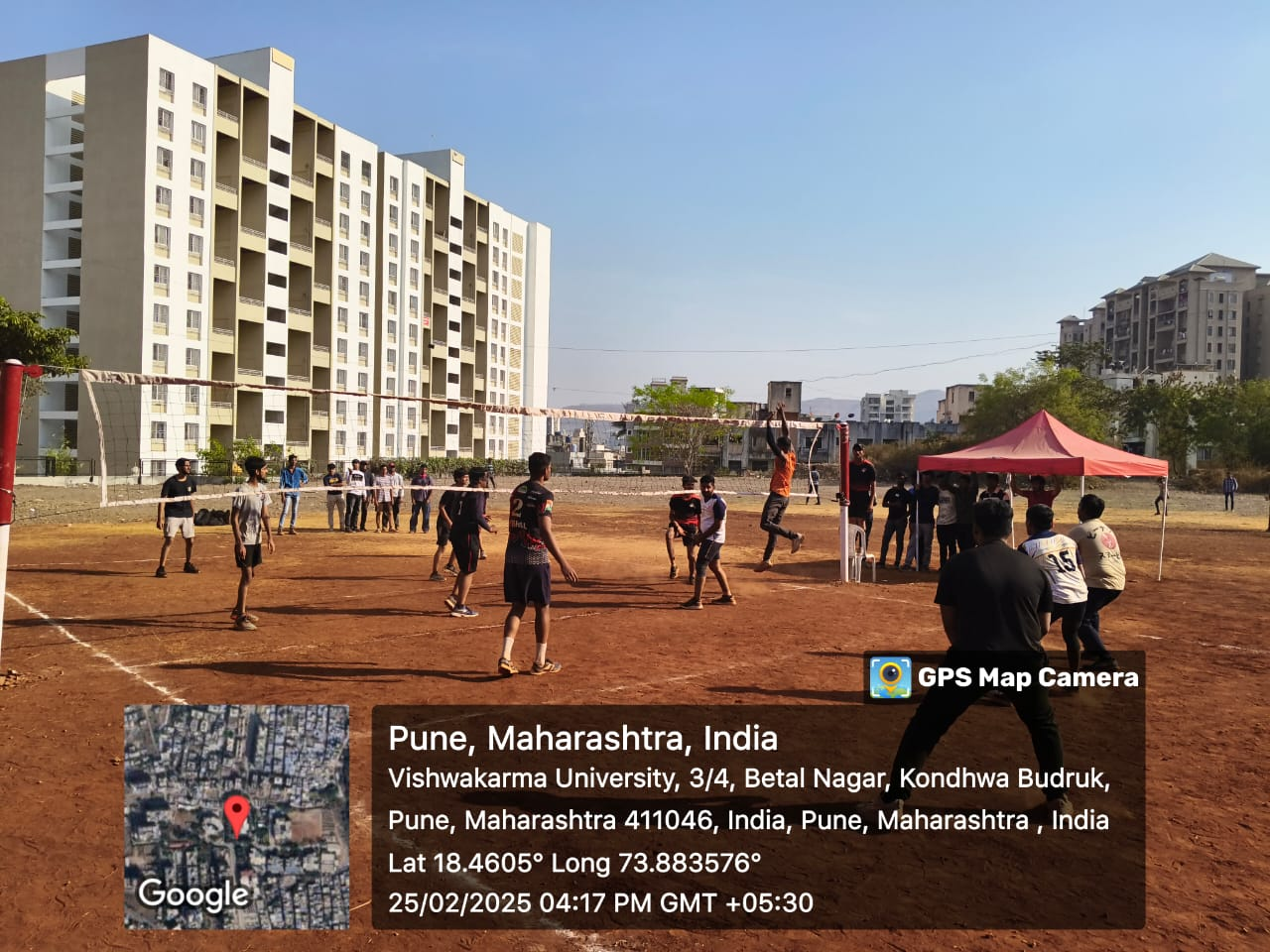
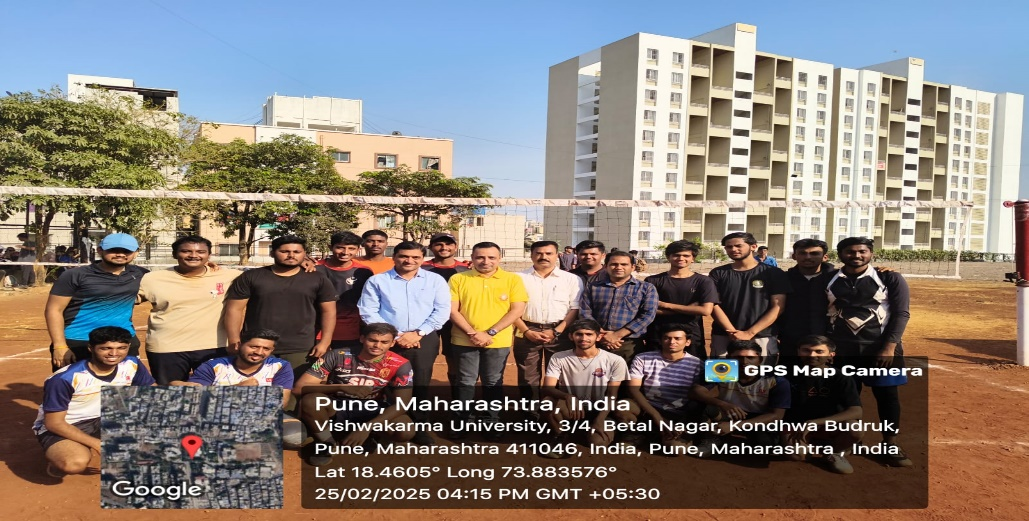
Date – 27th, 28th February & 1st March 2025
Event – Cricket
A two-day cricket tournament took place on 27th, 28th February & 1st March 2025, featuring over 460 students and 45 matches. The matches were highly competitive, with players showcasing impressive batting, bowling, and fielding skills.
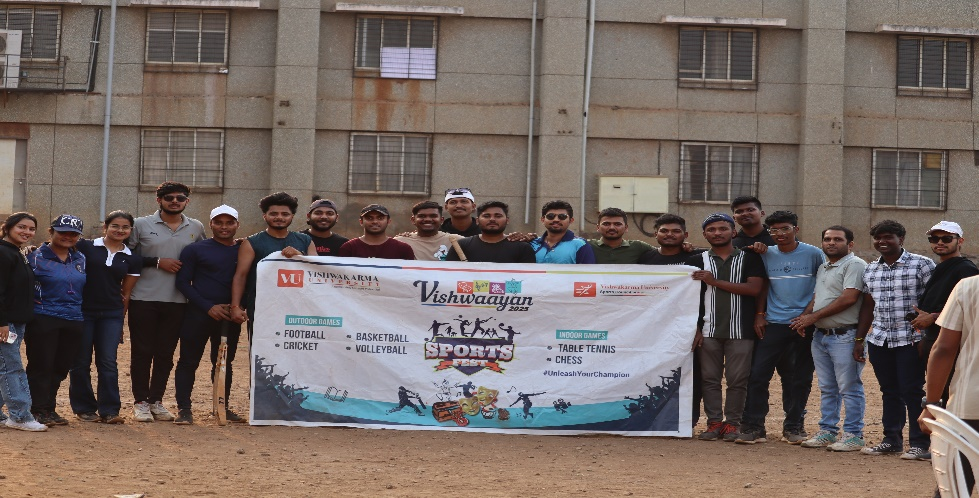
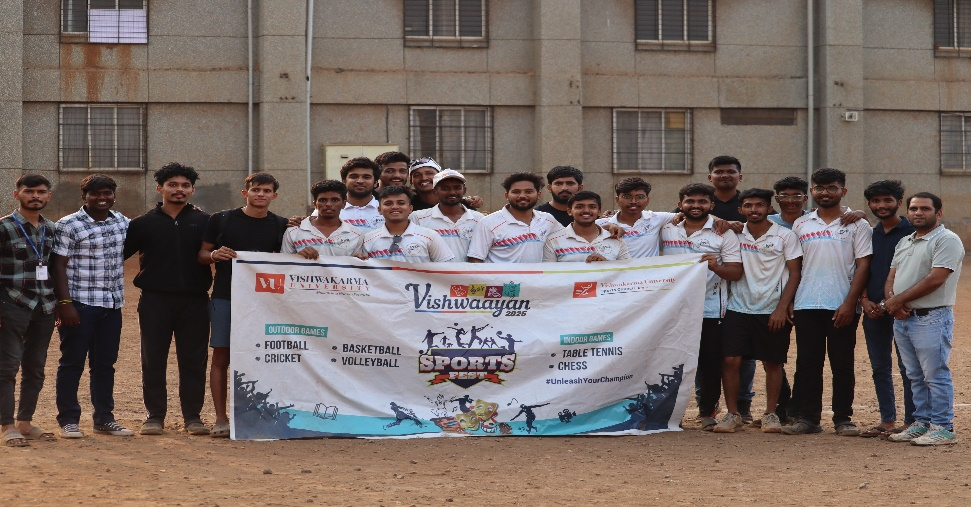
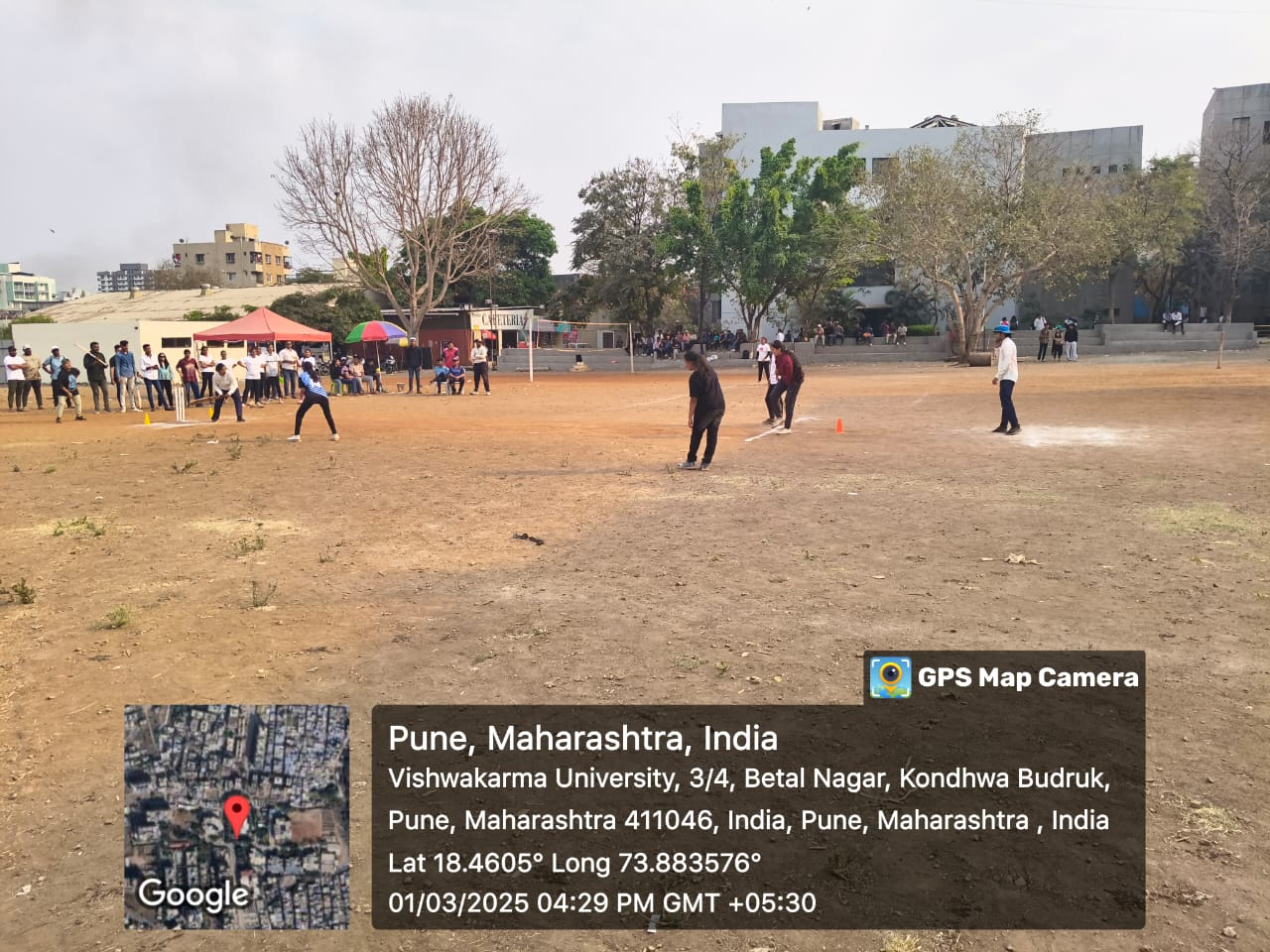
Date – 3rd & 4th March 2025
Event – Basketball
The Basketball matches, held on 3rd & 4th March 2025, saw high-energy performances from the teams. Players displayed remarkable teamwork and agility, making it one of the most exciting events of the sports fest.
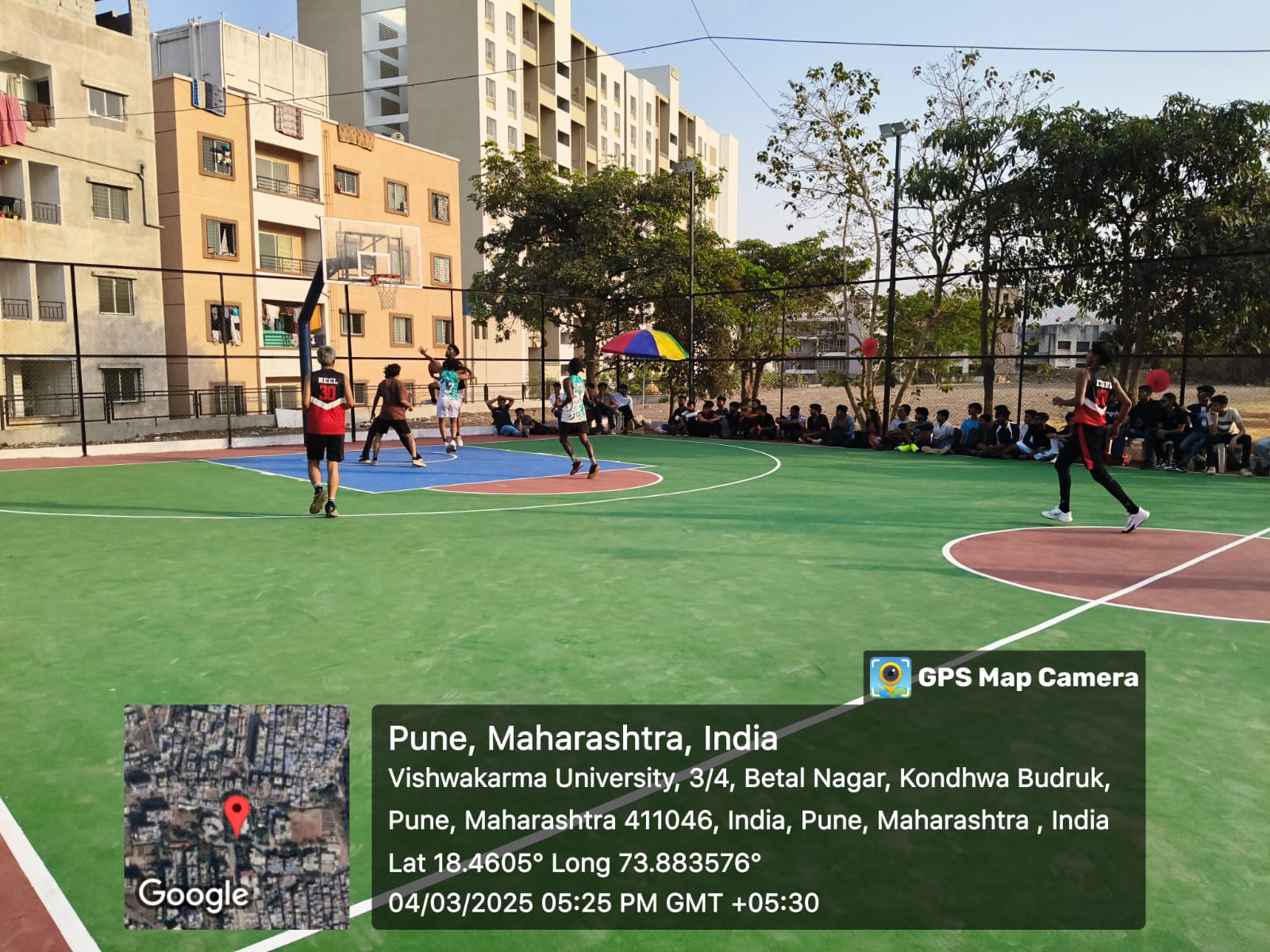
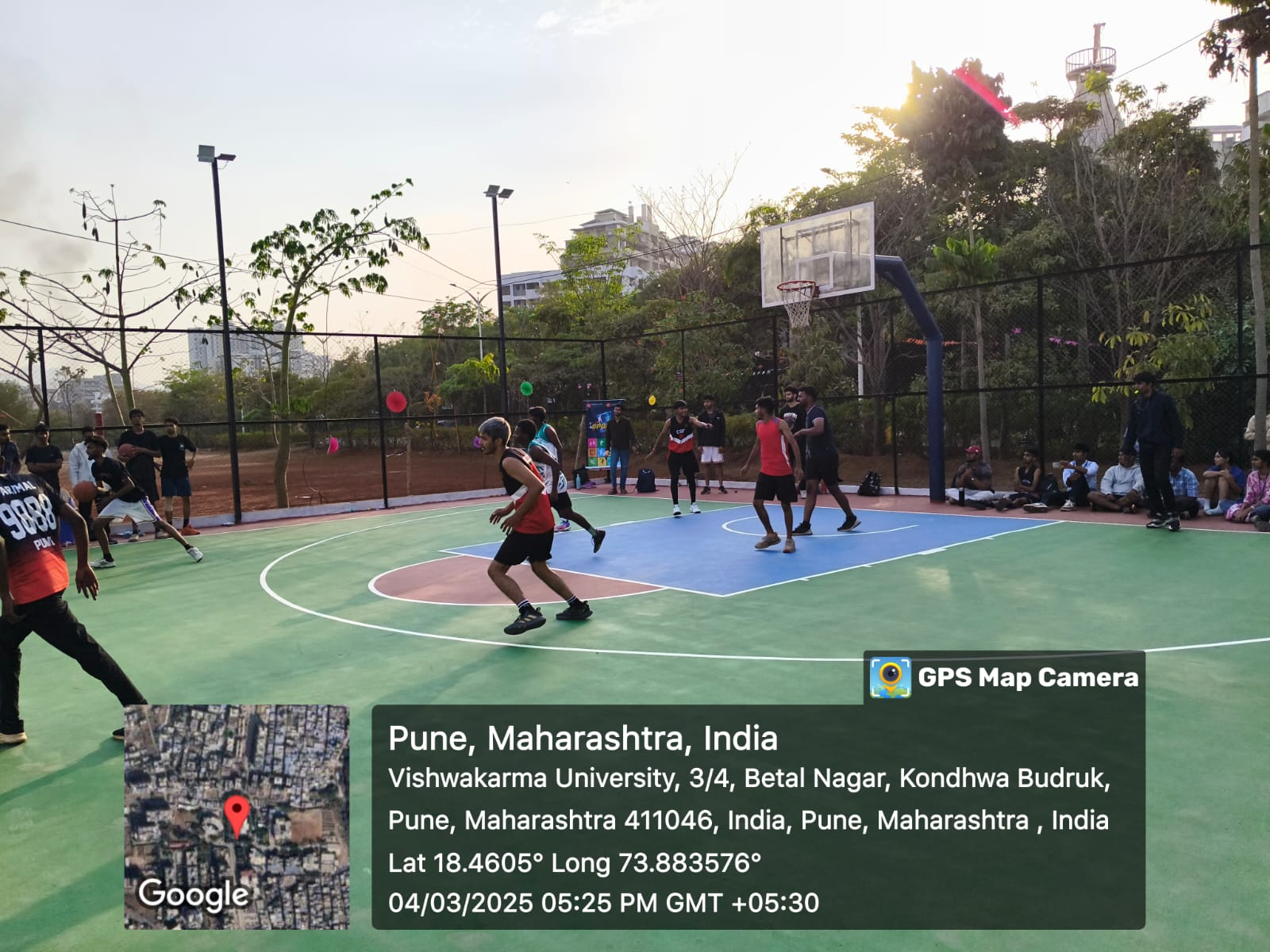
Challenges Faced & Impact Created:
“Vishwaayan Sports Fest 2025” was more than just a competition; it was a celebration of sportsmanship and unity. The fest fostered a spirit of healthy competition, camaraderie, and mutual respect among students.
Despite challenges such as venue coordination, time management, and weather fluctuations, the event was executed seamlessly due to the proactive efforts of the organizing team and volunteers.
The impact of the event was significant, strengthening student bonds, enhancing athletic skills, and promoting a culture of physical fitness and teamwork within the university. The overwhelming participation and enthusiastic support from spectators made this edition of Vishwaayan Sports Fest a resounding success!
Dr. Chetan Chouhan
Director
Physical Education & Sports
The Fit India Week celebration was organized to promote physical fitness, health, and well-being, encouraging individuals of all ages to incorporate physical activity into their daily lives. The event aimed at fostering a culture of fitness across communities and inspiring people to live a healthier lifestyle.
Date: 16th to 21st December 2024
Venue: Vishwakarma University Campus.
The celebration took place during the third week of December, as part of the nationwide Fit India Movement initiated by the Government of India. Schools, colleges, offices, and community centers across the country hosted various fitness activities.
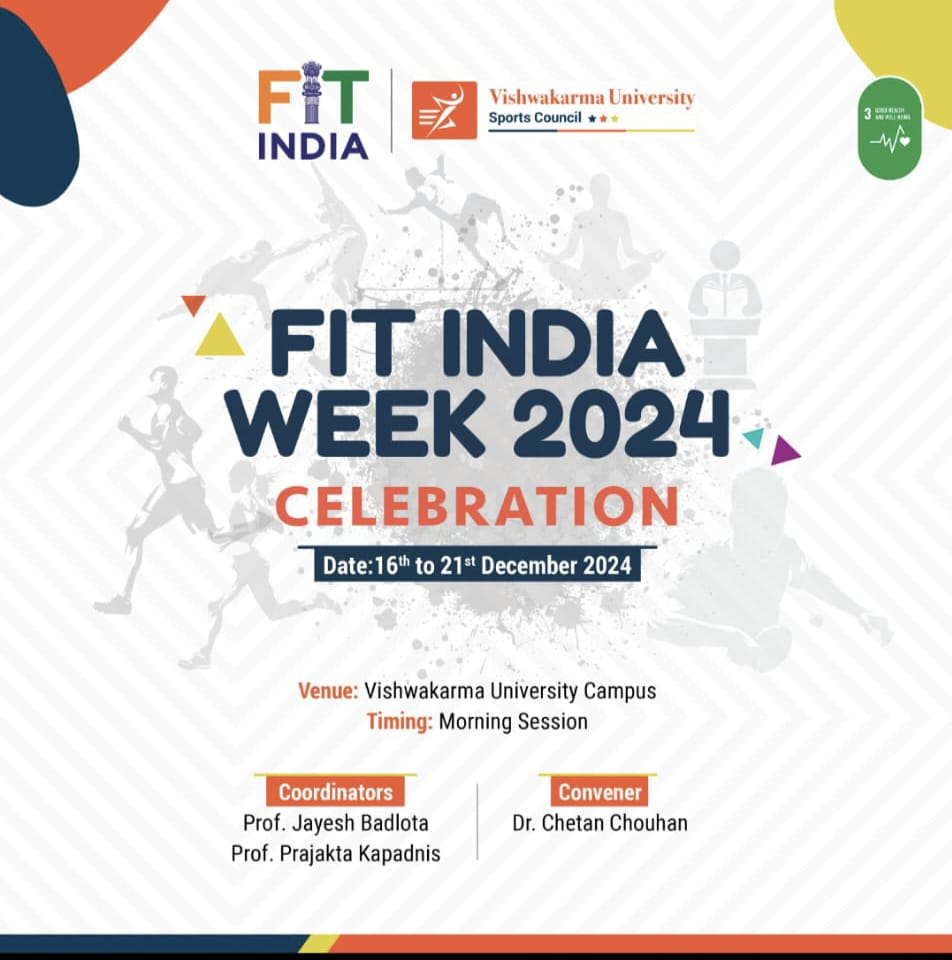
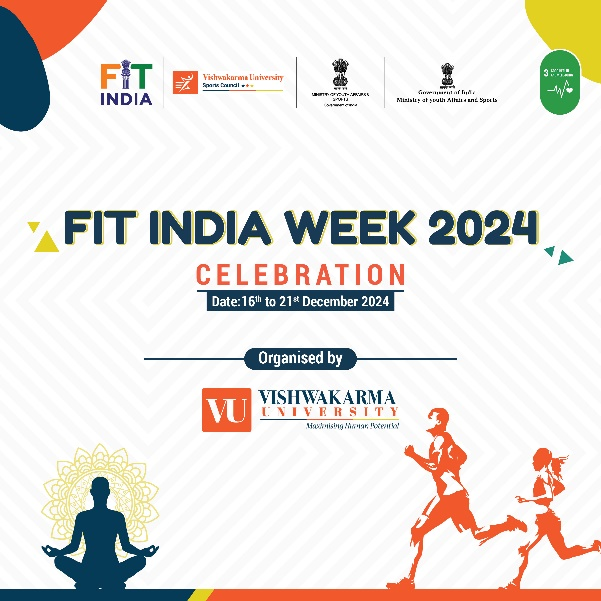
The Fit India Week was a huge success, with active participation from students, teachers, and the general public. It not only promoted physical activity but also sparked conversations around mental health and holistic well-being. Many individuals pledged to adopt healthier lifestyles, and the event reinforced the significance of fitness in leading a balanced and fulfilling life.
Fit India Week proved to be an effective initiative to motivate people to prioritize their health. It showcased the Vishwakarma University and country's commitment to creating a fitter, healthier future by involving people from all walks of life in physical activities and wellness programs.
Convener Coordinators
Dr. Chetan Chouhan Prof. Prajakta Kapadnis
(Director, Physical Education & Sports) Prof. Jayesh Baldota
Date: 16/12/2024
Event: indigenous game
On 16th December 2024, an engaging event cantered around the indigenous game of Seven Stones was organized at Vishwakarma University. This activity aimed to revive and celebrate traditional games that hold cultural and historical significance while fostering a sense of community and teamwork among participants.
The event commenced with an introduction to the game of Seven Stones, also known as Lagori in some regions. The rules and significance of the game were explained by the event Coordinator, Prof. Jayesh Baldota and Prof. Amol Kamble, emphasizing its role in promoting physical activity and strategic thinking.
Gameplay and Participation:
The event saw enthusiastic participation from 60 attendees, including students and faculty members. Teams were formed, and matches were conducted in a lively and spirited atmosphere. The participants showcased remarkable energy and sportsmanship throughout the event.
Cultural Significance:
The organizers highlighted the importance of indigenous games in preserving cultural heritage and encouraging outdoor activities in the digital age. The game’s historical roots and its role in fostering teamwork and agility were discussed.
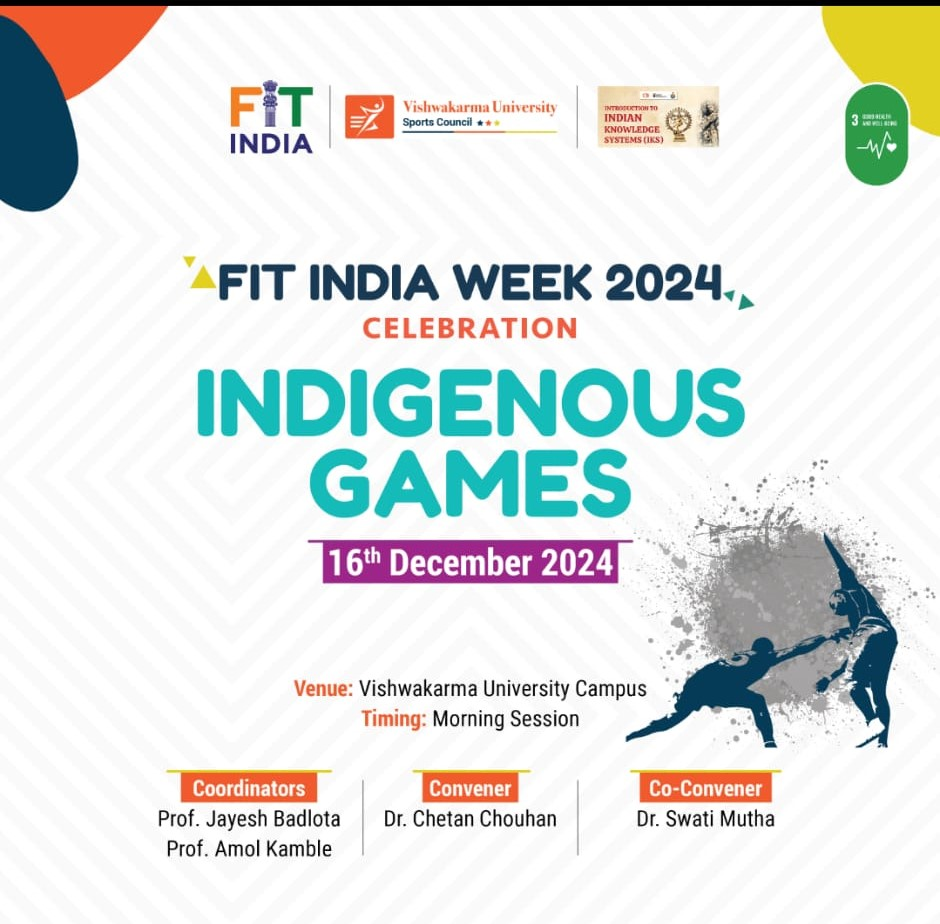
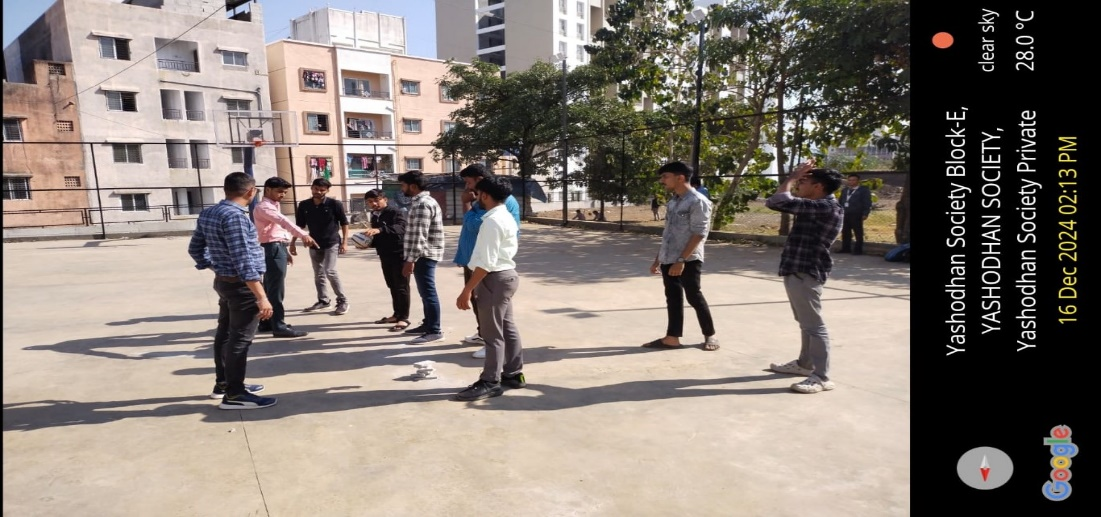
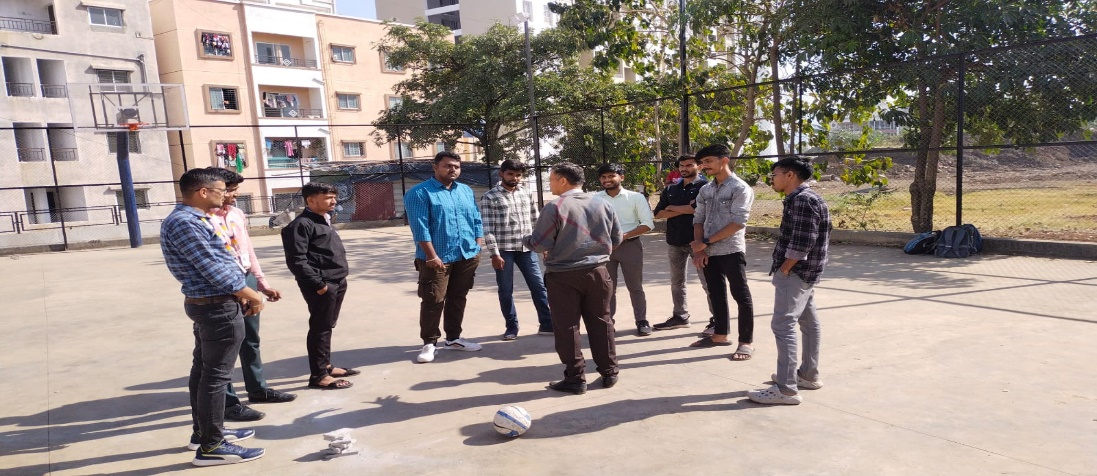
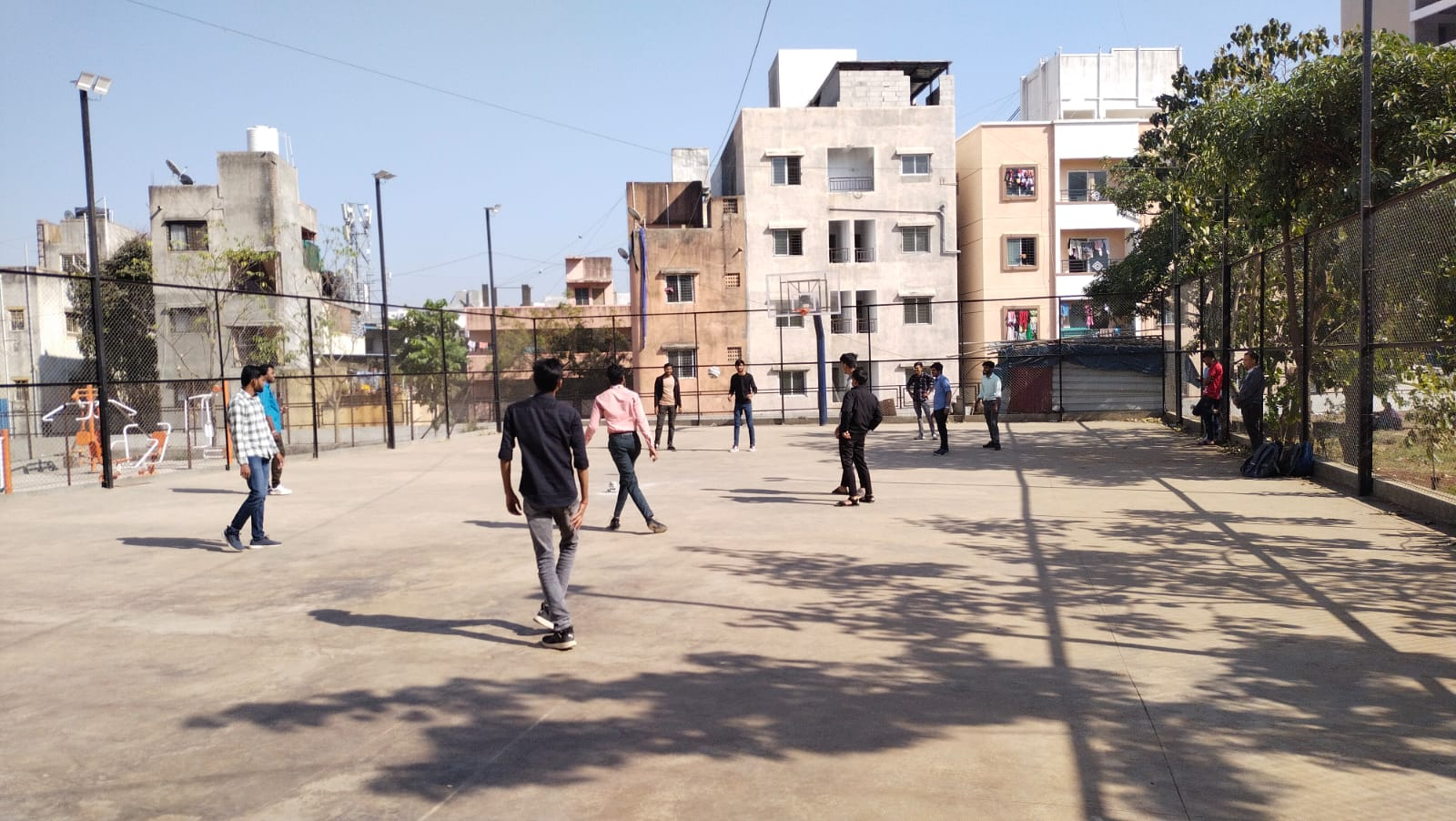
The event received an overwhelmingly positive response from participants, who appreciated the opportunity to engage in a traditional game. Many attendees expressed interest in similar events to revive and enjoy more indigenous games.
The Indigenous Games event featuring Seven Stones was a vibrant and successful initiative. It not only provided participants with an enjoyable experience but also contributed to the promotion of traditional sports and cultural awareness. The organizers extend their gratitude to all participants and look forward to hosting more such events in the future.
Date: 17/12/2024
Event: Popular Sport (Table tennis)
On 17th December 2024, a thrilling Table Tennis event was conducted as part of the FIT India Week celebrations at Vishwakarma University. The event aimed to encourage physical activity and foster a spirit of sportsmanship among the participants.
The event witnessed enthusiastic participation from 45 students and faculty members. Participants competed in a series of matches, showcasing their skills, agility, and determination. The matches were held in a competitive yet friendly environment, adding to the excitement of the event.
The organizers highlighted the significance of incorporating sports like Table Tennis into daily routines to promote fitness and teamwork. The event served as a platform for individuals to connect and engage in healthy competition.
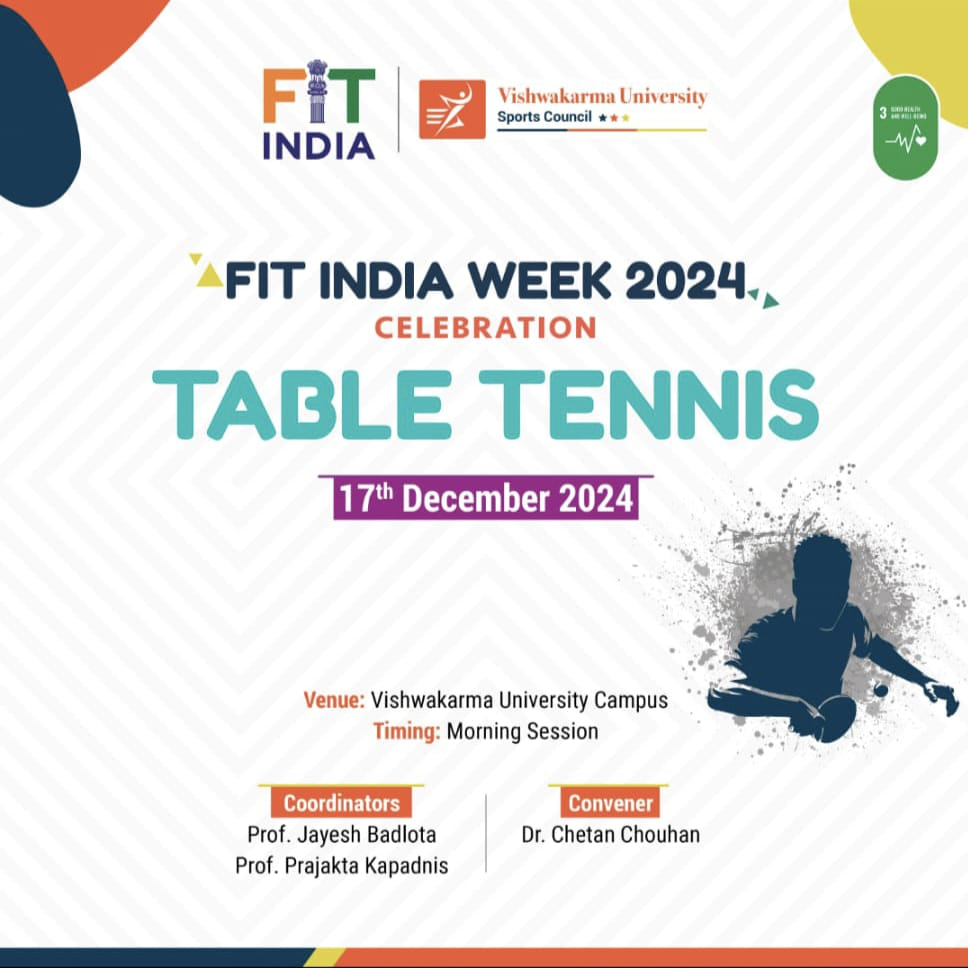
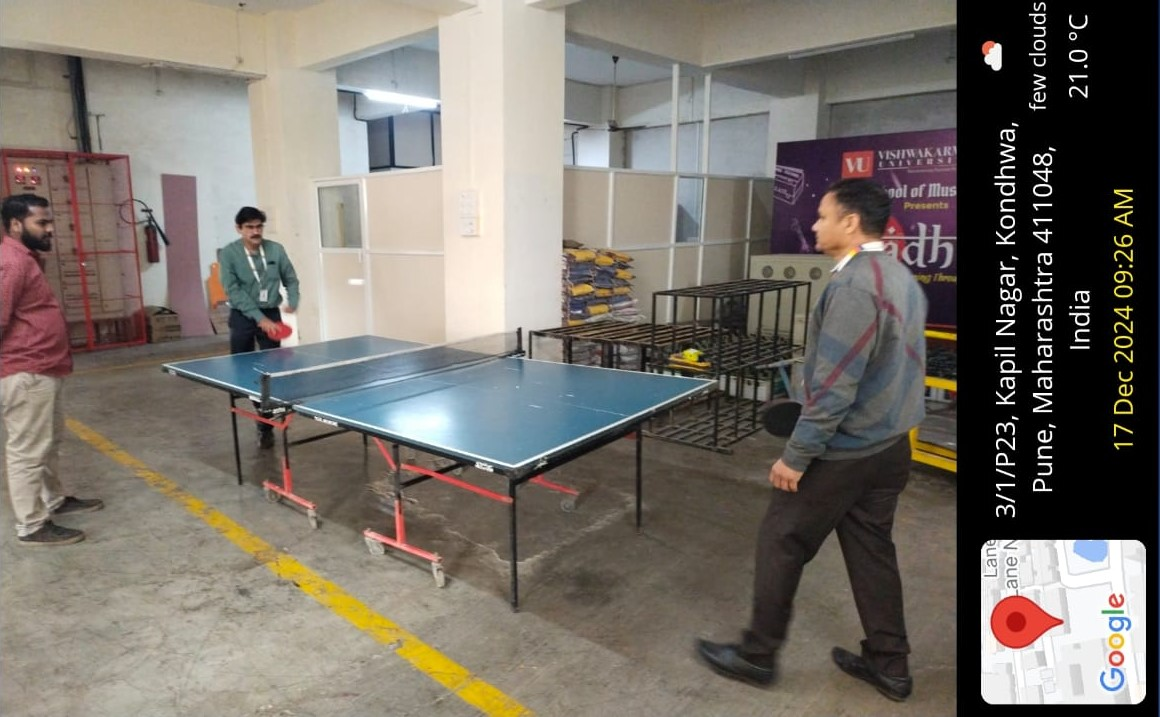
The Table Tennis event conducted under the FIT India Week celebration was a resounding success. It not only provided a platform for showcasing talent but also underscored the importance of physical fitness. The organizers express their heartfelt gratitude to all participants and look forward to organizing similar events in the future.
Date: 18/12/2024
Event: Poster making competition
Poster Making Competition for all students was organized on the theme Importance of fitness, Health and Nutrition. Students participated with great enthusiasm to express their ideas in the most creative and innovative way. This activity helped the students to understand the importance of sports and physical activities in their everyday lives. It also helped them to connect with the idea of being FIT in a positive way.
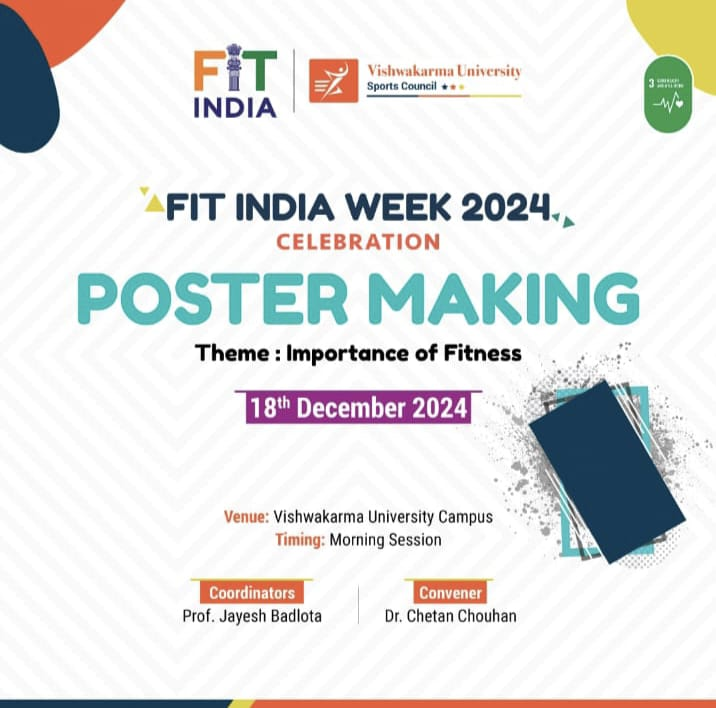
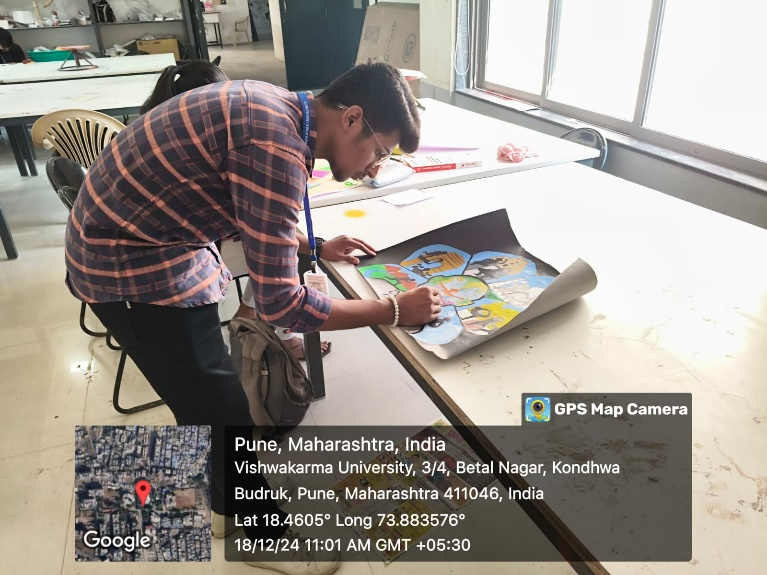
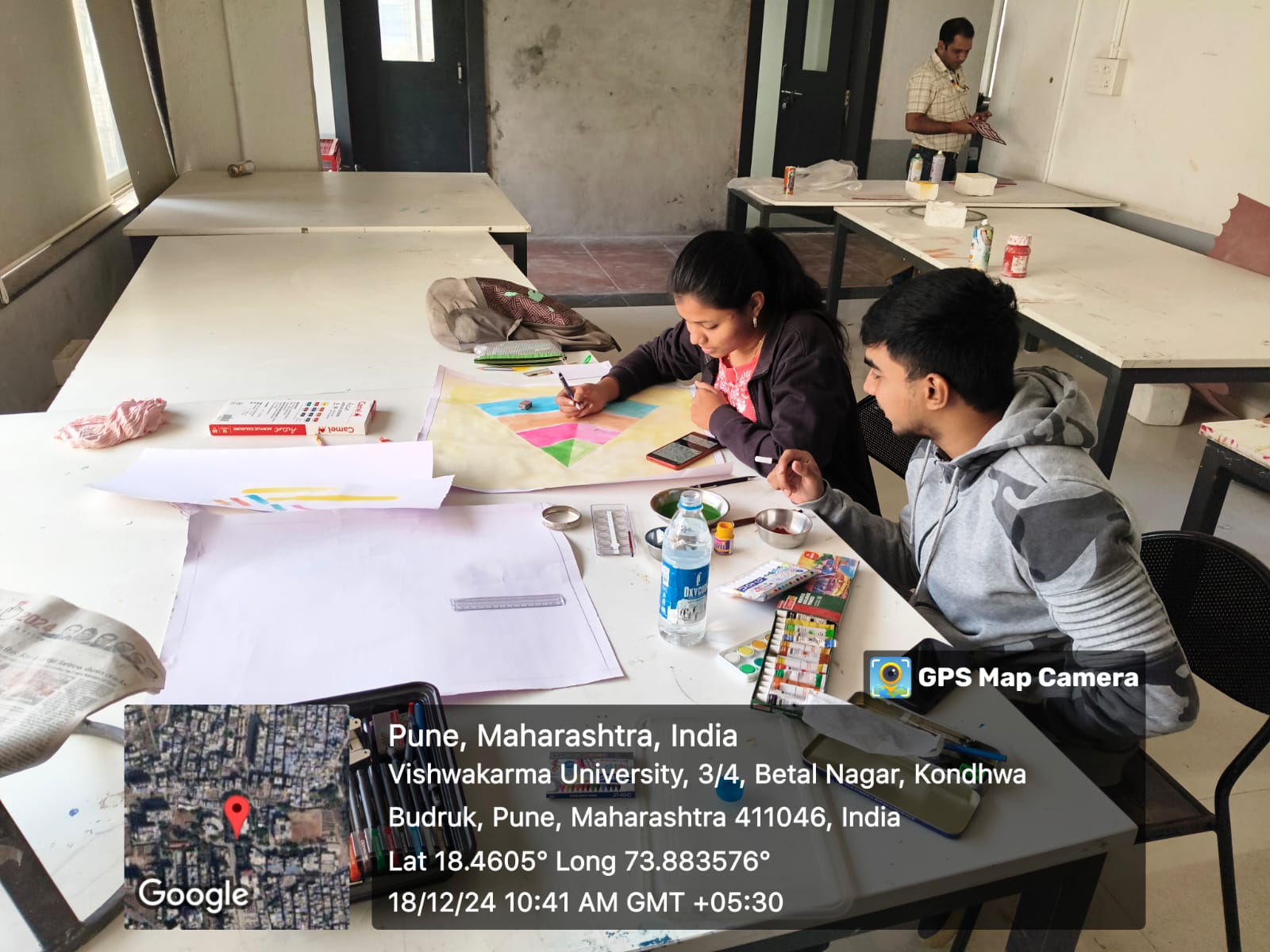
Date: 19/12/2024
Event: Yoga and meditation (Guest Session)
On 19th December 2024, a highly enlightening guest session on Yoga and Meditation was conducted at Vishwakarma University under “Fit India Week Celebration 2024”. The event featured Mr. Santosh Randive, a renowned yoga therapist with extensive experience in holistic wellness and mindfulness practices, as the guest speaker. The session aimed to promote awareness about the benefits of yoga and meditation in enhancing physical, mental, and emotional well-being. The session was attended by 55 participants, including students and faculty.
The session began with a warm welcome address by the event coordinator, Prof Prajakta Kapadnis. Mr. Santosh Randive was introduced, highlighting his vast expertise and contributions to the field of yoga therapy.
Mr. Randive opened his talk by discussing the historical and cultural significance of yoga and meditation. He emphasized their relevance in today's fast-paced lifestyle, focusing on stress reduction, improved concentration, and overall health.
The session included practical demonstrations of simple yoga postures and breathing techniques suitable for participants of all age groups. Mr. Randive guided attendees through exercises like Pranayama (breathing exercises) and mindfulness meditation, ensuring an engaging and participatory experience.
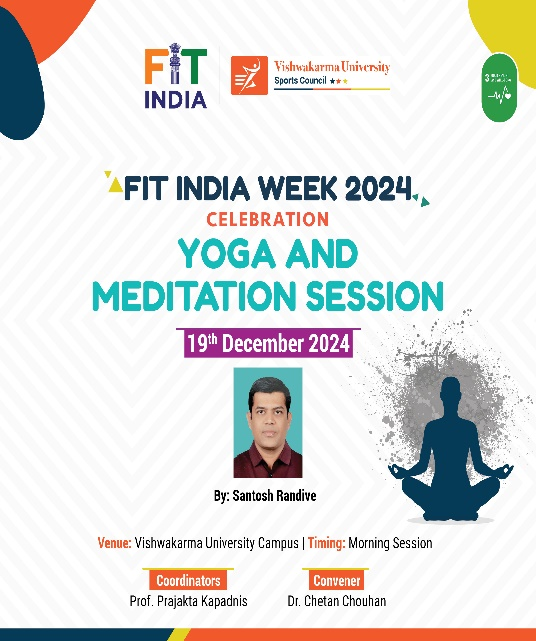
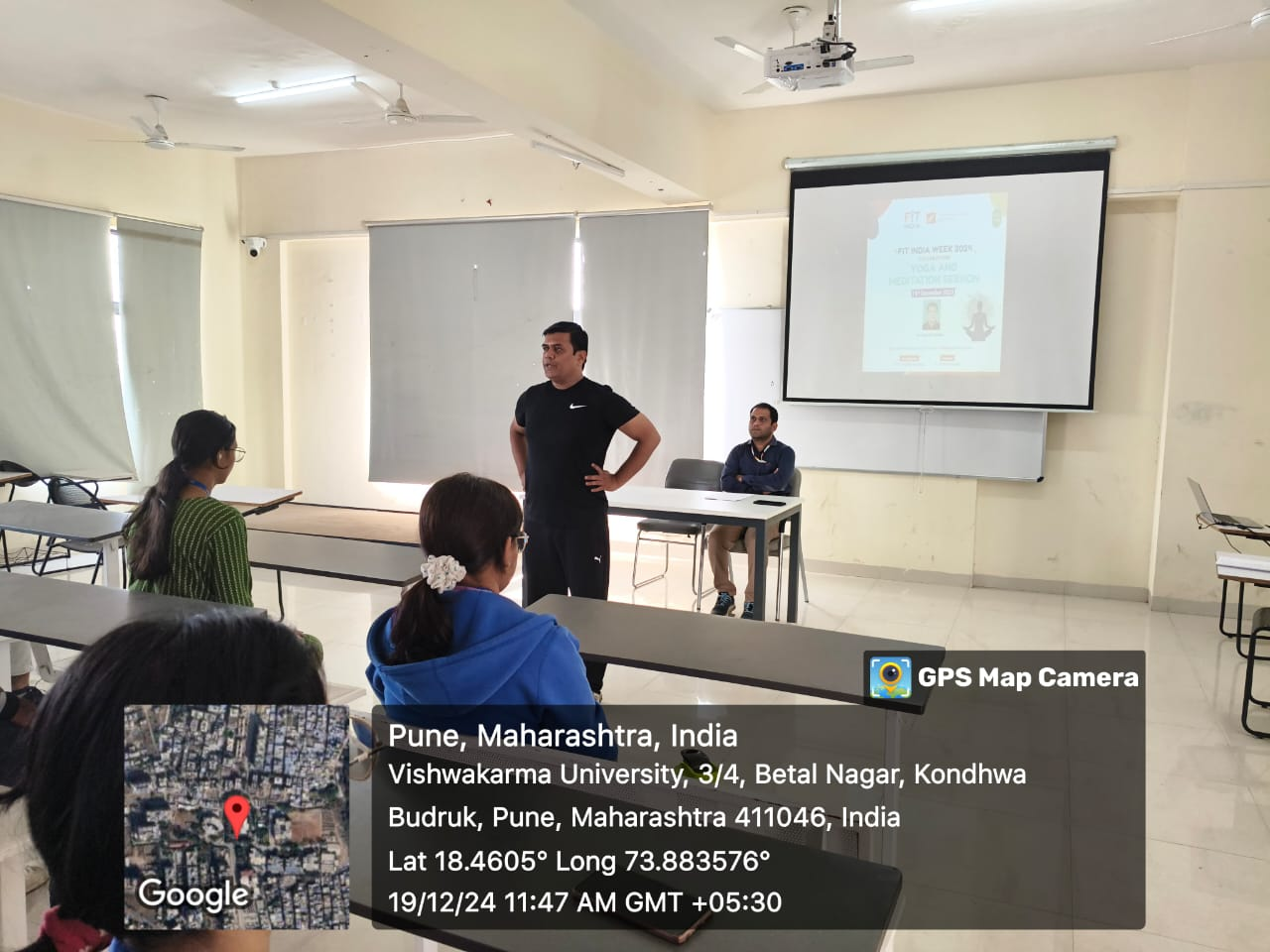
The speaker elaborated on the scientific benefits of regular yoga practice, including improved cardiovascular health, enhanced flexibility, and mental clarity. He shared case studies and success stories from his practice as a yoga therapist, inspiring the audience to adopt these practices in their daily routines.
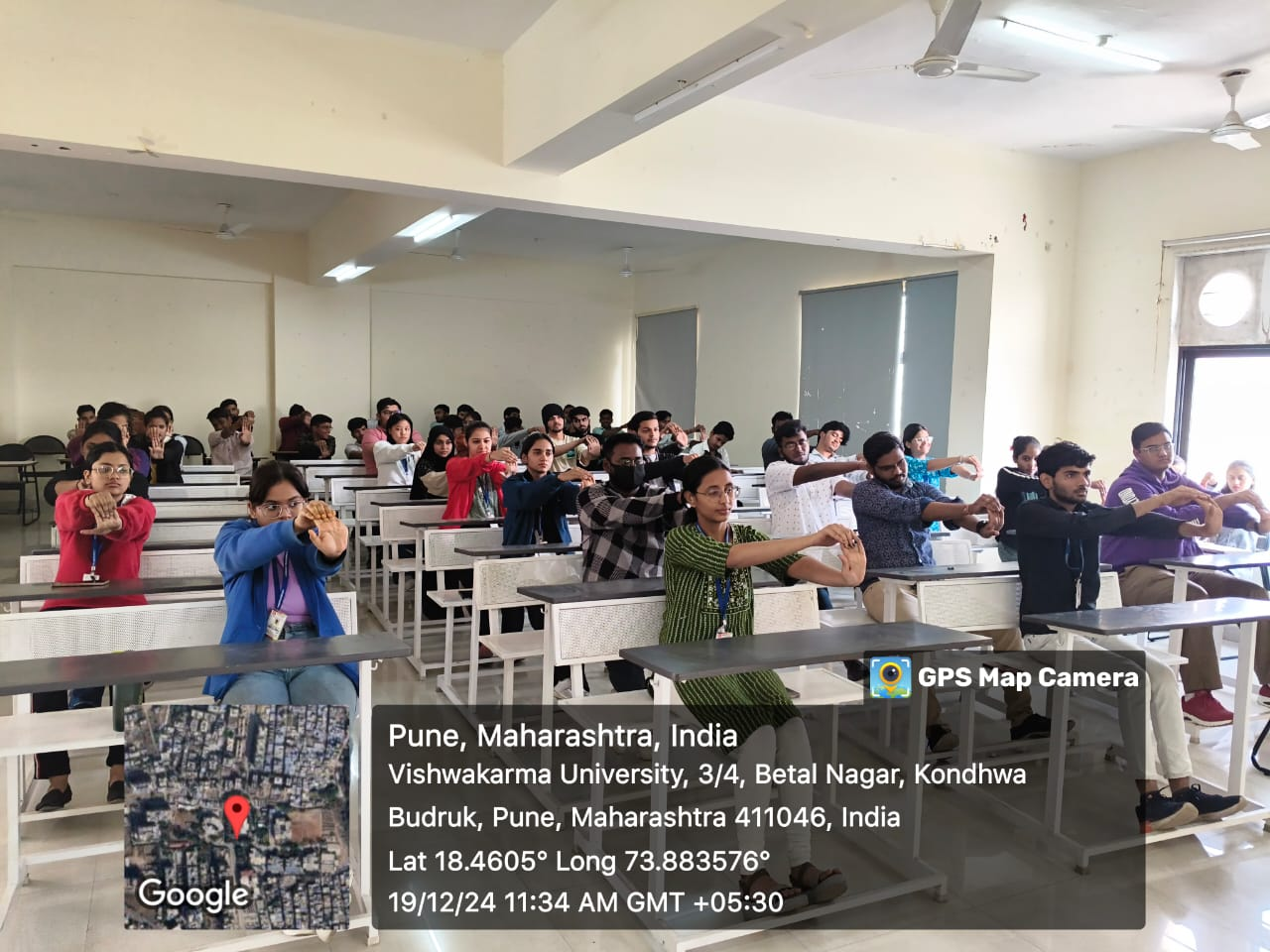
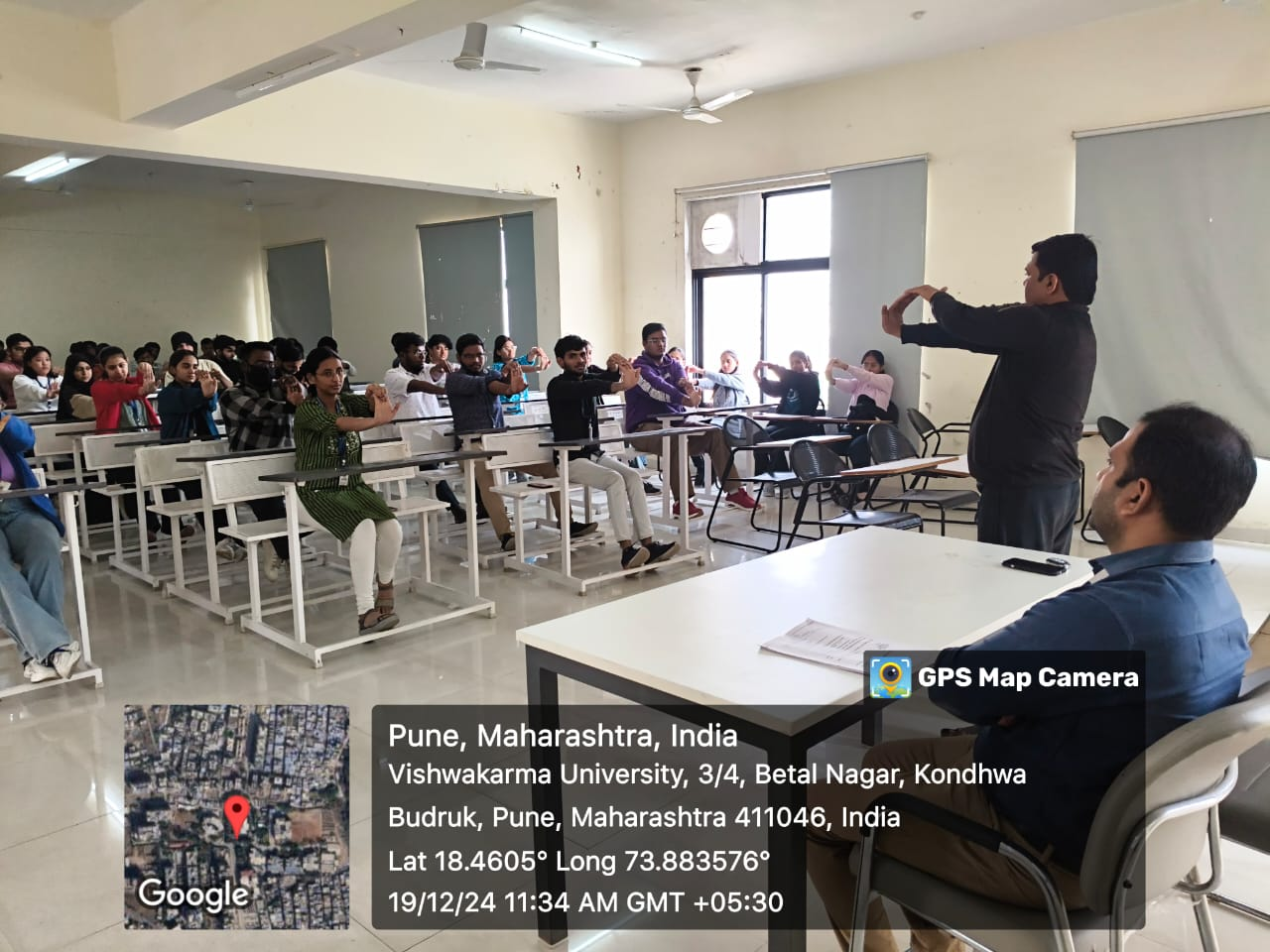
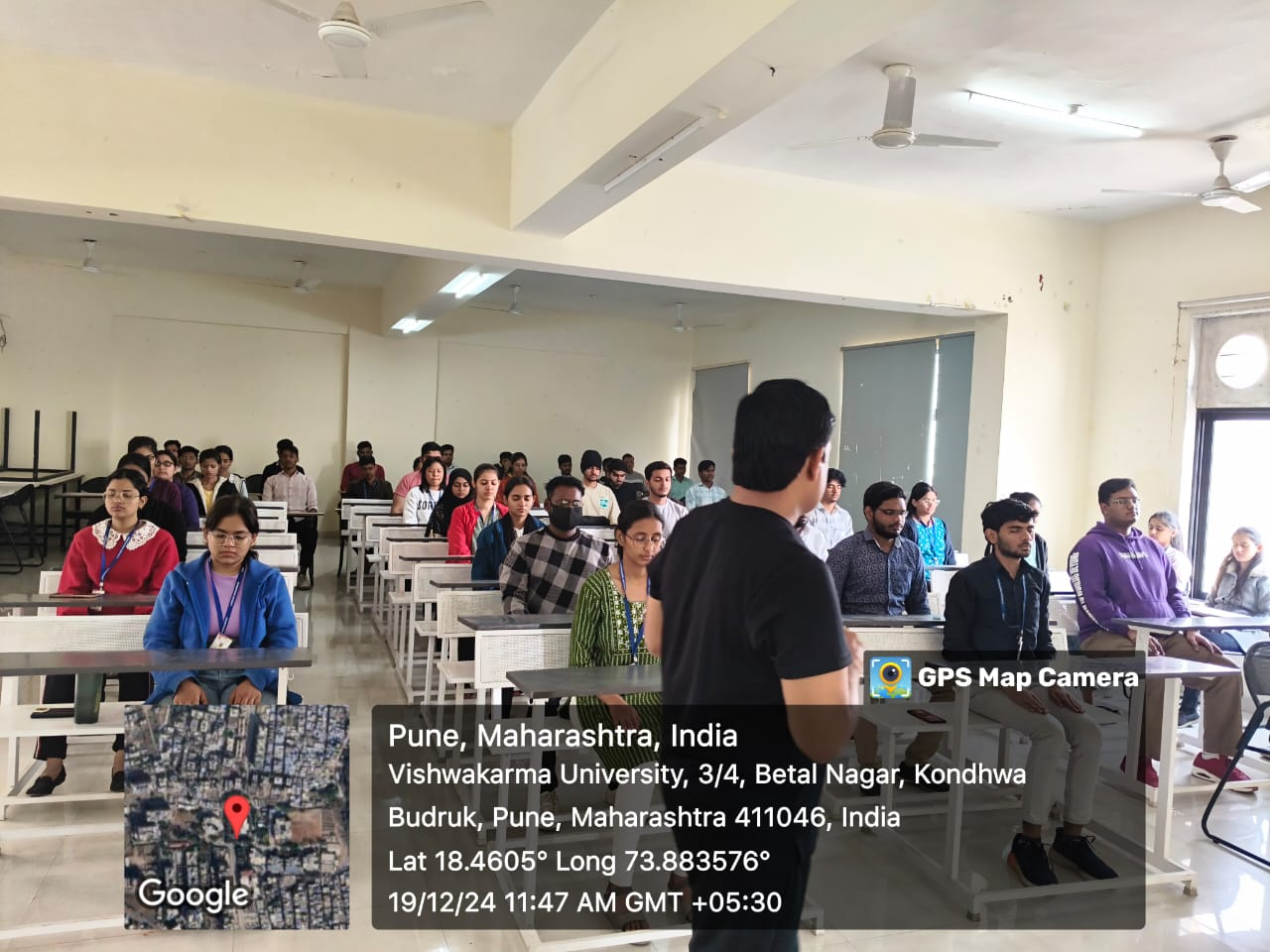
The guest session by Mr. Santosh Randive was a resounding success, effectively promoting the significance of yoga and meditation. The event not only educated attendees about the practices but also inspired them to take proactive steps toward a healthier and more balanced life. The organizers extend their heartfelt gratitude to Mr. Randive for his invaluable contribution and look forward to future collaborations.
Date: 20/12/2024
Event: Fitness Pledge
On 20th December 2024, a Fitness Pledge Activity was conducted as part of the ongoing FIT India Week celebrations at Vishwakarma University. The activity aimed to inspire participants to commit to a healthier and more active lifestyle by taking a collective pledge for fitness.
Participants, including students, faculty, and staff, gathered to take the fitness pledge. The pledge, led by Sports Coordinator Prof. Prajakta Kapadnis, included commitments to regular exercise, balanced nutrition, and mental wellness. The enthusiastic recitation of the pledge created an inspiring and energetic atmosphere.
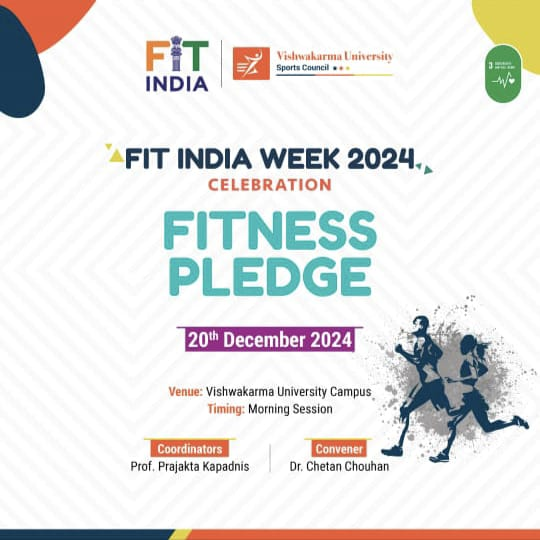
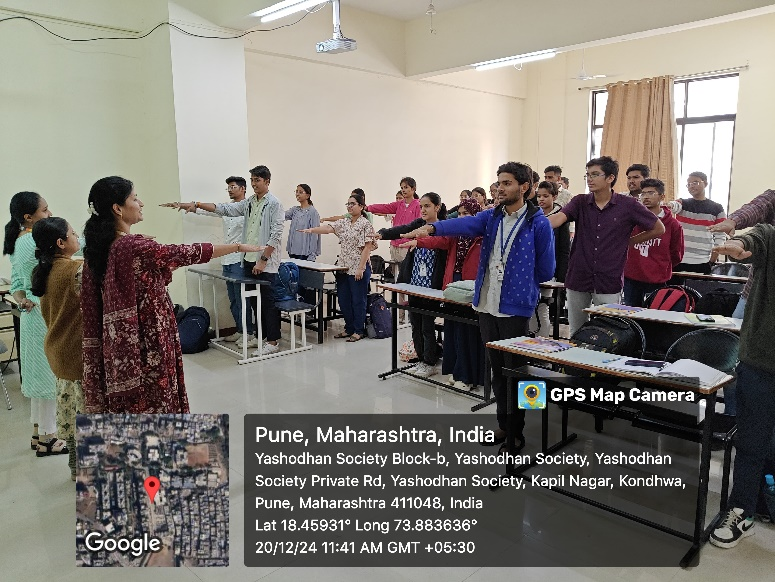
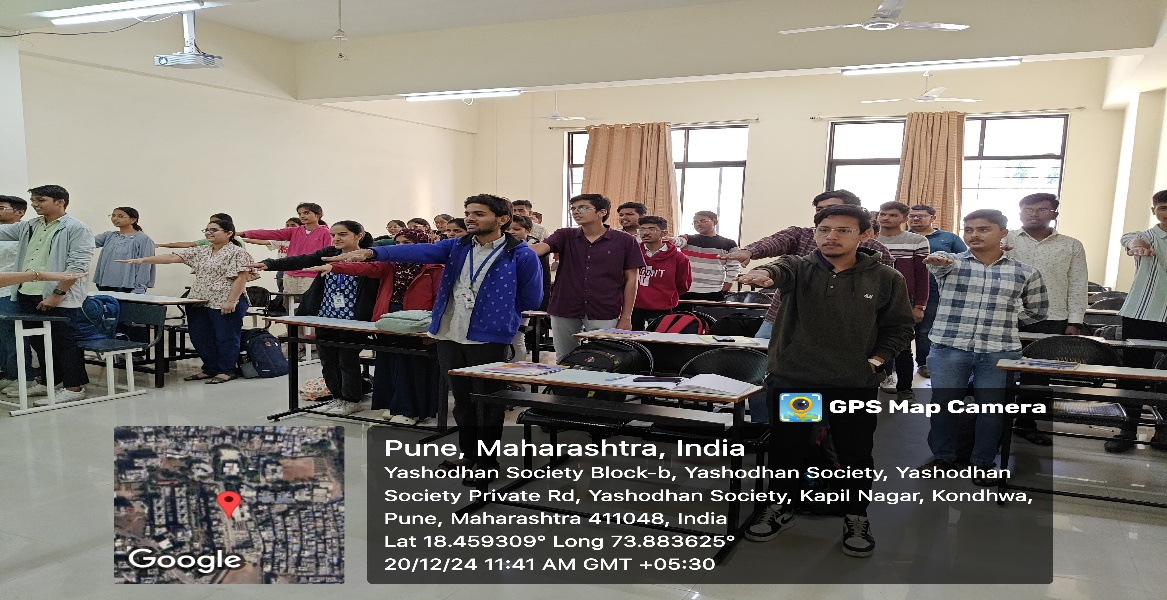
The Fitness Pledge Activity conducted on 20th December 2024 was a meaningful and inspiring event. It successfully encouraged participants to take proactive steps towards a healthier lifestyle while reinforcing the importance of fitness in overall well-being. The organizers extend their gratitude to all participants and look forward to continuing the momentum with similar initiatives in the future.
Date: 21/12/2024
Event: fitness assessment through mobile app
As part of the FIT India Week celebrations, a Fitness Assessment Activity was conducted through a mobile application to aware the students about their fitness level. Students assessed their own fitness through mobile app at their home. The University and student council aware the students about the Fit India Fitness App. They also aware the students about the registration process on Fit India Mobile App. Many students from Vishwakarma University registered themselves on Fit India Mobile App and assess their physical fitness. The activity aimed to provide participants with a convenient and tech-enabled method to evaluate their fitness levels and set personalized fitness goals.
Participants were introduced to the fitness assessment mobile app, which includes features such as various fitness test, step tracking, calorie burn estimation, and activity logs. The app’s functionalities were explained by Sports Coordinator Prof. Jayesh Baldota who highlighted the importance of leveraging technology for fitness tracking.
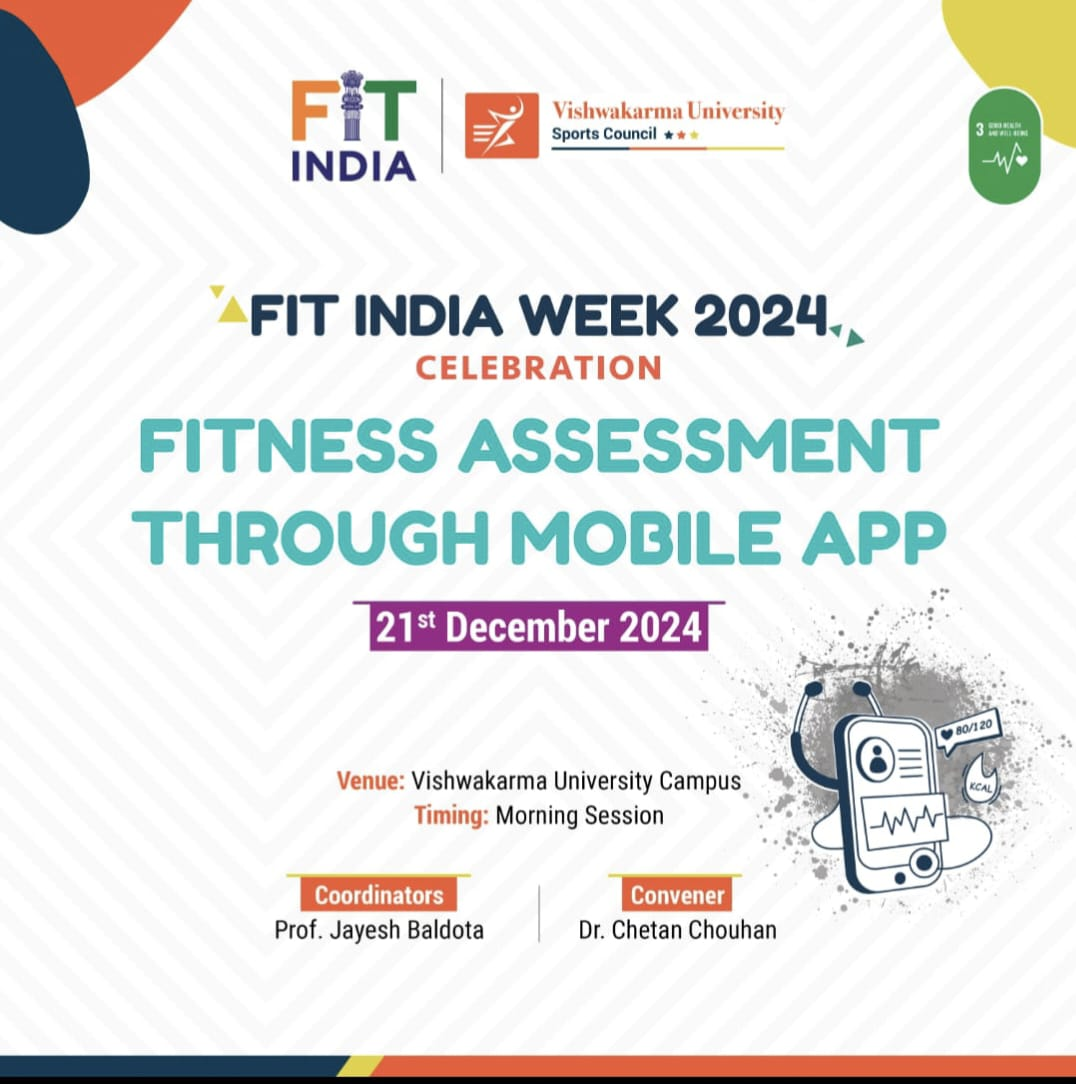
The Fitness Assessment through Mobile App activity was a pioneering effort under the FIT India Week celebrations. It highlighted the potential of digital tools in promoting health and fitness while empowering participants to take charge of their well-being. The organizers thank all participants and look forward to incorporating more tech-driven fitness initiatives in the future.
Convener Coordinators
Dr. Chetan Chouhan Prof. Prajakta Kapadnis
(Director, Physical Education & Sports) Prof. Jayesh Baldota
The FIT India Week Celebration from 16th to 20th December 2024 witnessed enthusiastic participation from over 300 students, faculty, and staff members across various activities promoting health, fitness, and cultural awareness. The event aimed at fostering a culture of fitness across communities and inspiring people to live a healthier lifestyle.
These events collectively reinforced the importance of fitness, cultural values, and well-being, leaving a lasting impact on all participants.
Event Name - “Sports for All” Event for Children with Disabilities
Date - 13th December 2024
Venue - Dnyangangotri School, Dhayari
The Physical Education and Sports Section, along with the Sports Council of Vishwakarma University, Pune, successfully organized an inclusive sports event, “Sports for All,” on December 13, 2024, at Dnyangangotri Residential School, Dhayari, Pune. Dedicated to children with disabilities, the event aimed to encourage their participation in sports and promote inclusivity. The overall event was coordinated by Prof. Prajakta Kapadnis, Assistant Professor at the School of Pharmacy, Vishwakarma University, Pune. Prof. Kirti Deshpande, supported by student volunteers, conducted various activities for the children.
Objectives
Activities Conducted
The event featured a variety of sports activities adapted for the needs of the participants. These included:
Donation Drive
A highlight of the event was the donation of sports uniforms to the children. These uniforms were intended to motivate and equip the participants for future sports endeavours, symbolizing a step toward greater inclusivity in sports.
Impact
Conclusion
The “Sports for All” event was a significant step toward promoting inclusivity and empowerment for children with disabilities. By combining sports activities with a meaningful donation drive, the event underscored the importance of providing equal opportunities for all.
The Physical Education & Sports section of Vishwakarma University reaffirmed its commitment to fostering a culture of inclusivity, ensuring every child has the chance to shine in sports and beyond.
“Sports for All: Where Every Child Wins!”
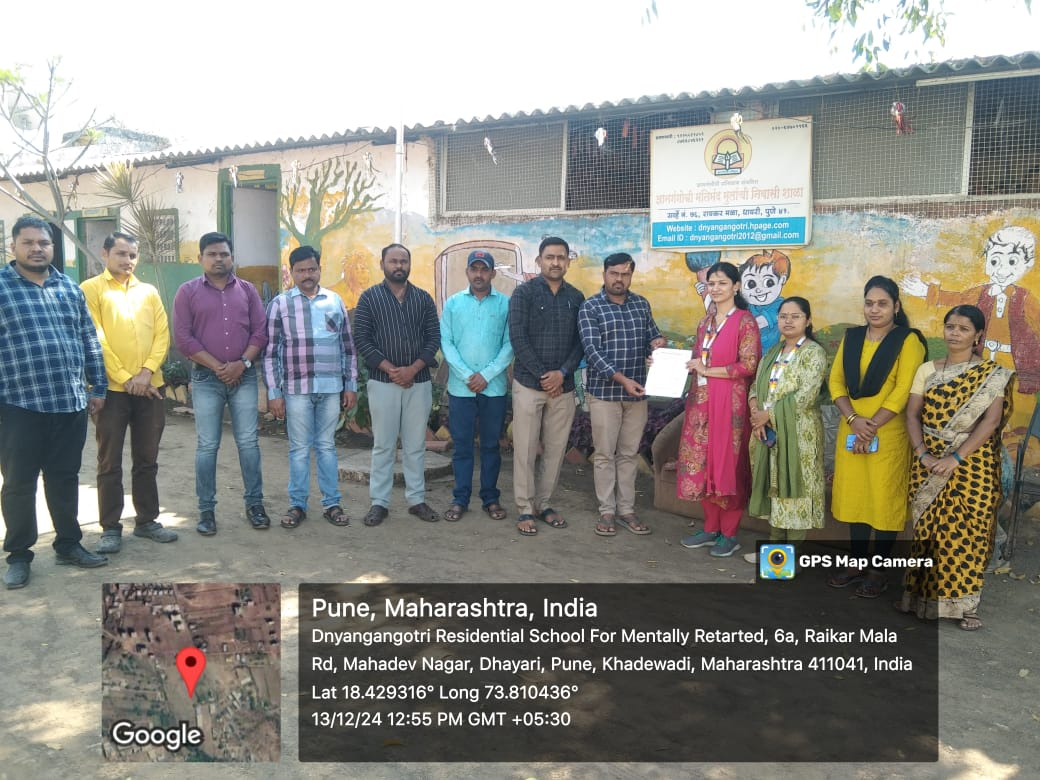
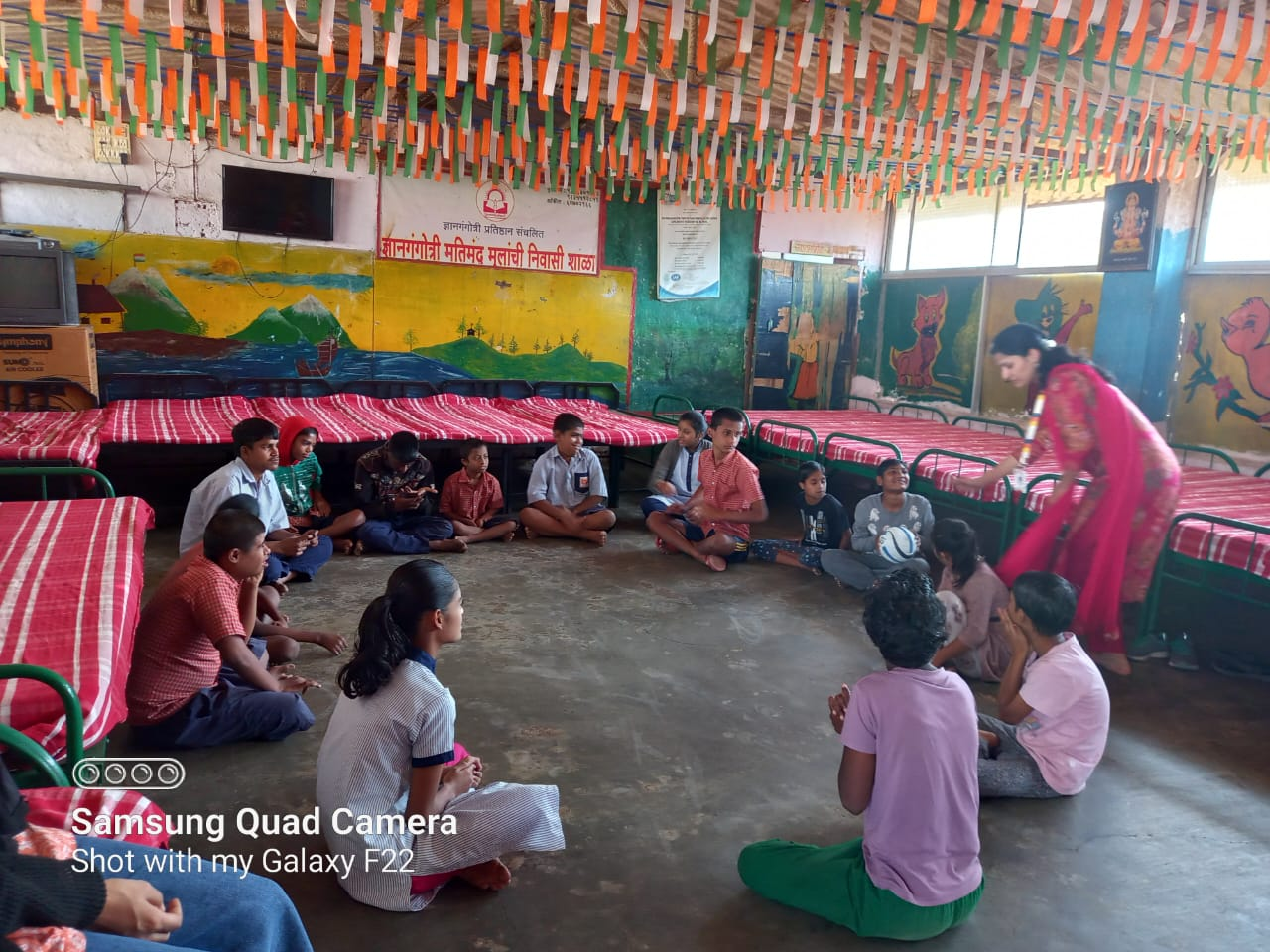
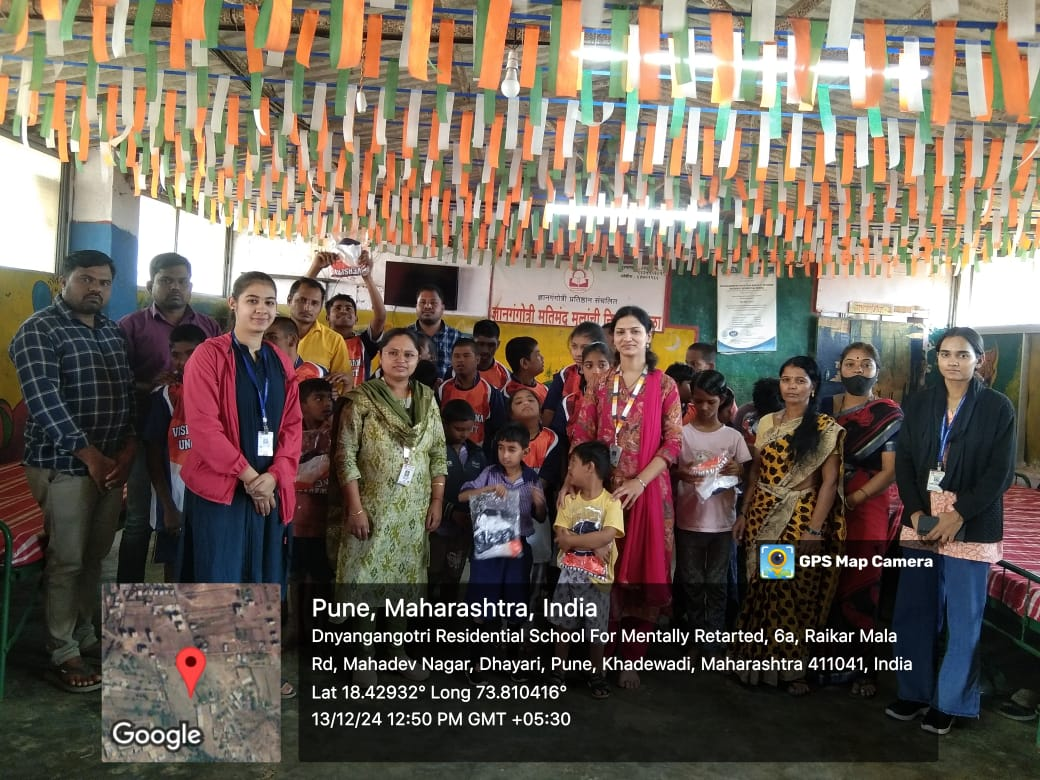
The program aimed to provide students with essential knowledge and hands-on experience in emerging technologies such as data science, cloud computing, artificial intelligence, and machine learning. It also sought to enhance practical problem-solving abilities by enabling students to work on real-world projects using IBM Watson Studio and related platforms.Furthermore, the program integrated practical exposure with academic learning to ensure students are aligned with current industry practices and technological trends. Ultimately, it aimed to prepare students to gain a competitive edge in the job market by equipping them with relevant skills, project-based experience, and exposure to widely used tools in the digitalworkforce.
Date: 12th Aug-14th Aug, 2025
Venue: VU Building No: 2, Room 2001A,2112, Vishwakarma University
Mode: Offline
Participants:
Second Year students of Artificial Intelligence, Faculty of Science and Technology,
Vishwakarma University, Pune.
Organizers:
Organizing Chairperson
o Mr. Kiran Pawar, Deputy Director, Training & Placement Cell
Conveners:
o Prof. (Dr.) Kailas Patil, Dean, Faculty of Science & Technology
o Prof. (Dr.) Sandip Thite, Associate Dean, Faculty of Science & Technology
Co-Convener:
o Dr. Pavitha Nooji, Head, Department of Artificial Intelligence
Faculty Coordinator:
o Prof. Mayuri Satpute, Department of Artificial Intelligence
Program Highlights:
The event was organized by the Training and Placement Cell in collaboration with the Department of Artificial Intelligence, Faculty of Science & Technology, Vishwakarma University.The session was conducted by Aditya Dambale and Yogesh Raje who guided students on The IBM SkillsBuild for College program provided students with access to the IBM Cloud platform, enabling them to gain hands-on experience with cloud-based applications widely used across industries. The training focused on emerging technologies such as data science, cloud computing, artificial intelligence, and machine learning, ensuring that students acquired knowledge in high-demand domains. A practical learning approach was adopted through a blend of online courses, interactive sessions, and real-world projects using IBM Watson Studio, which helped students strengthen their problem-solving and analytical skills.
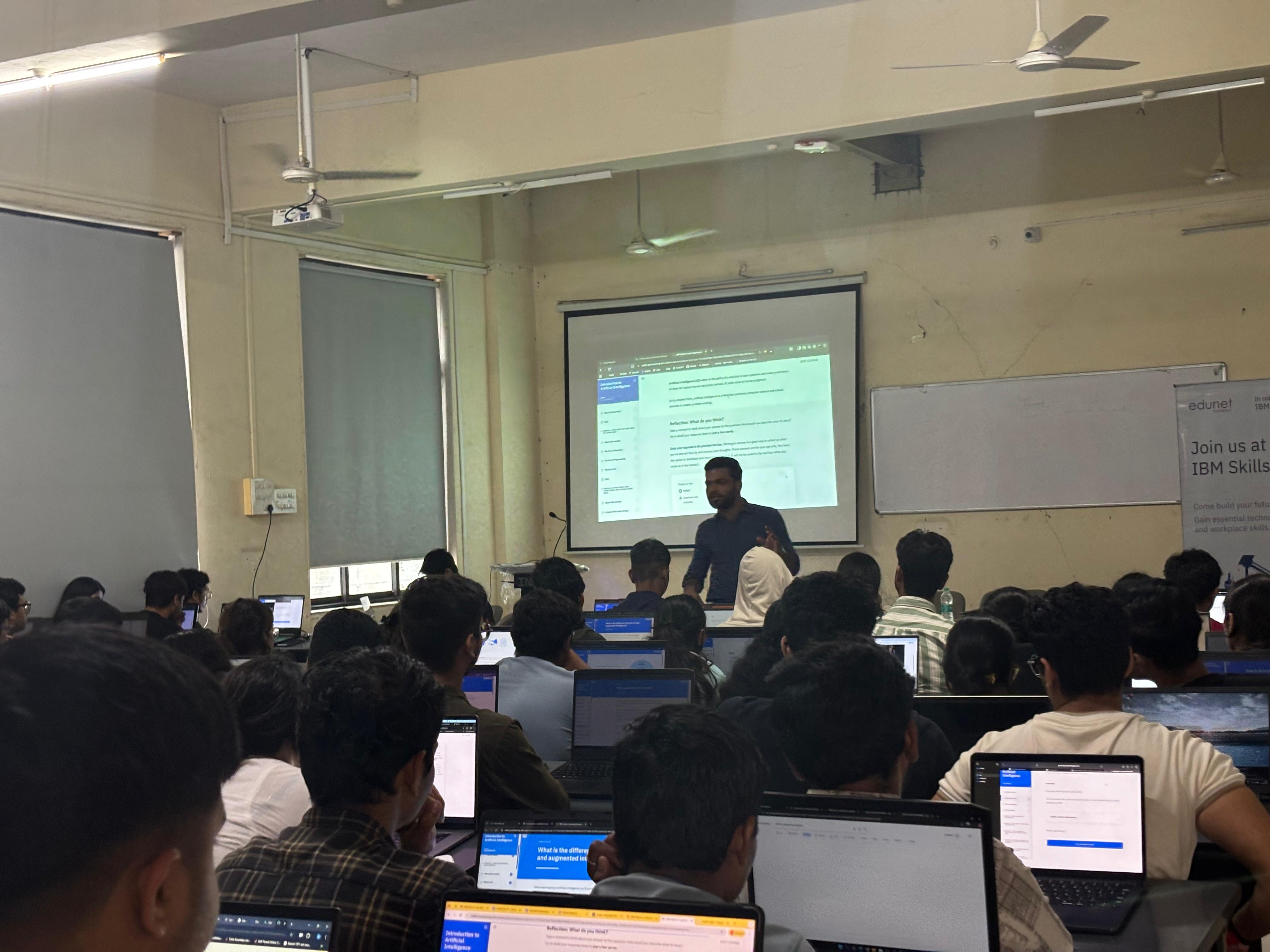
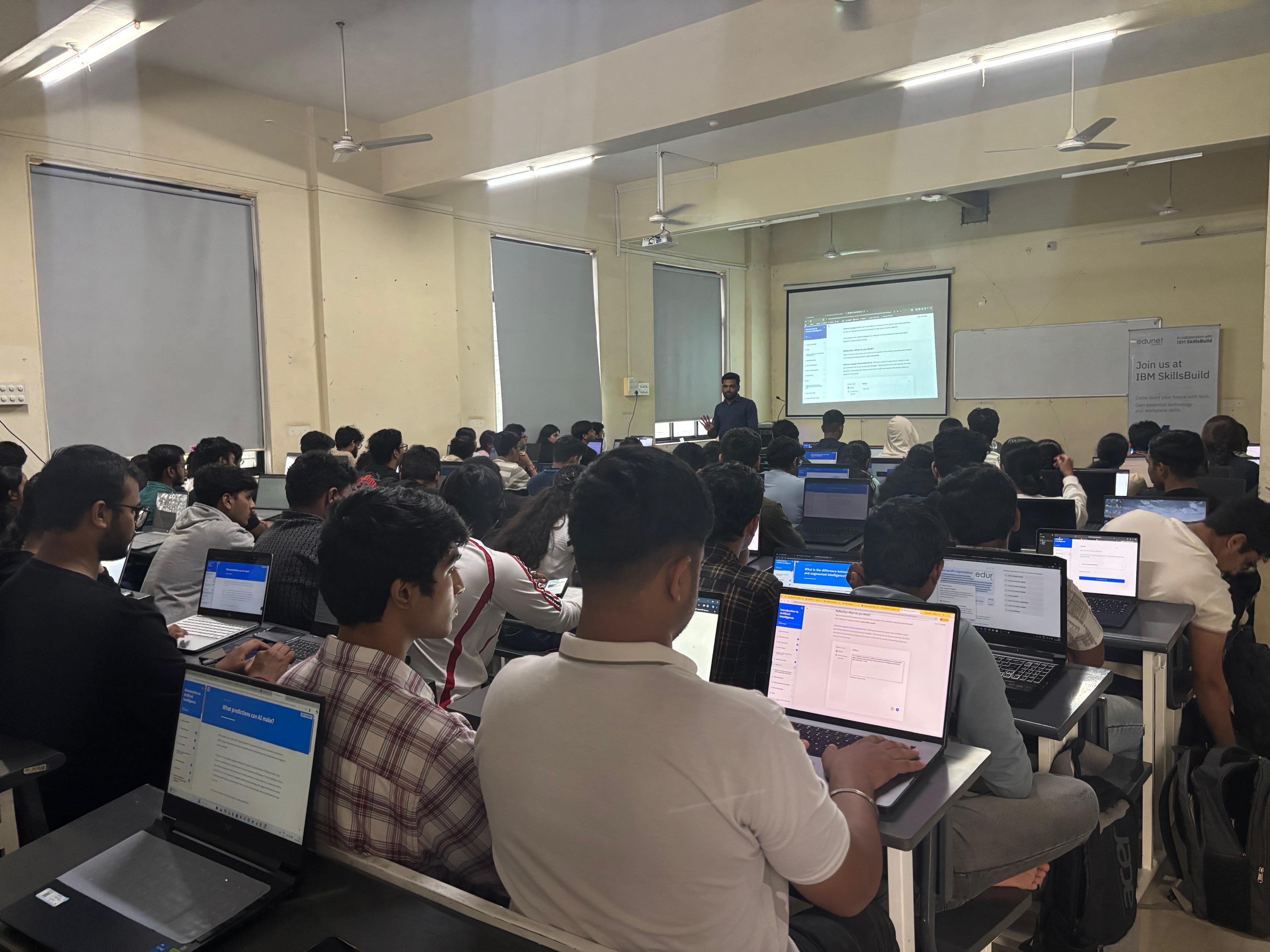
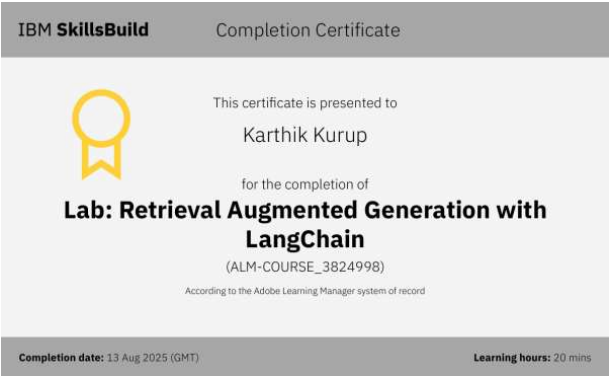
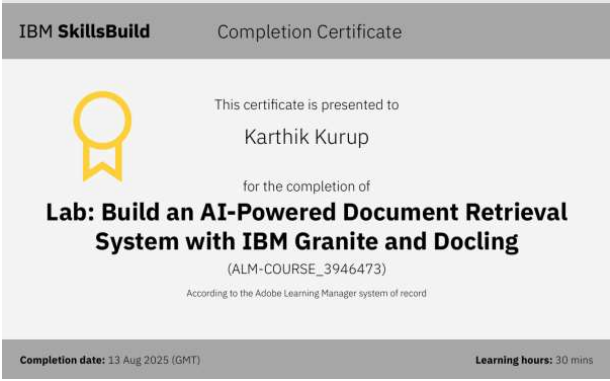
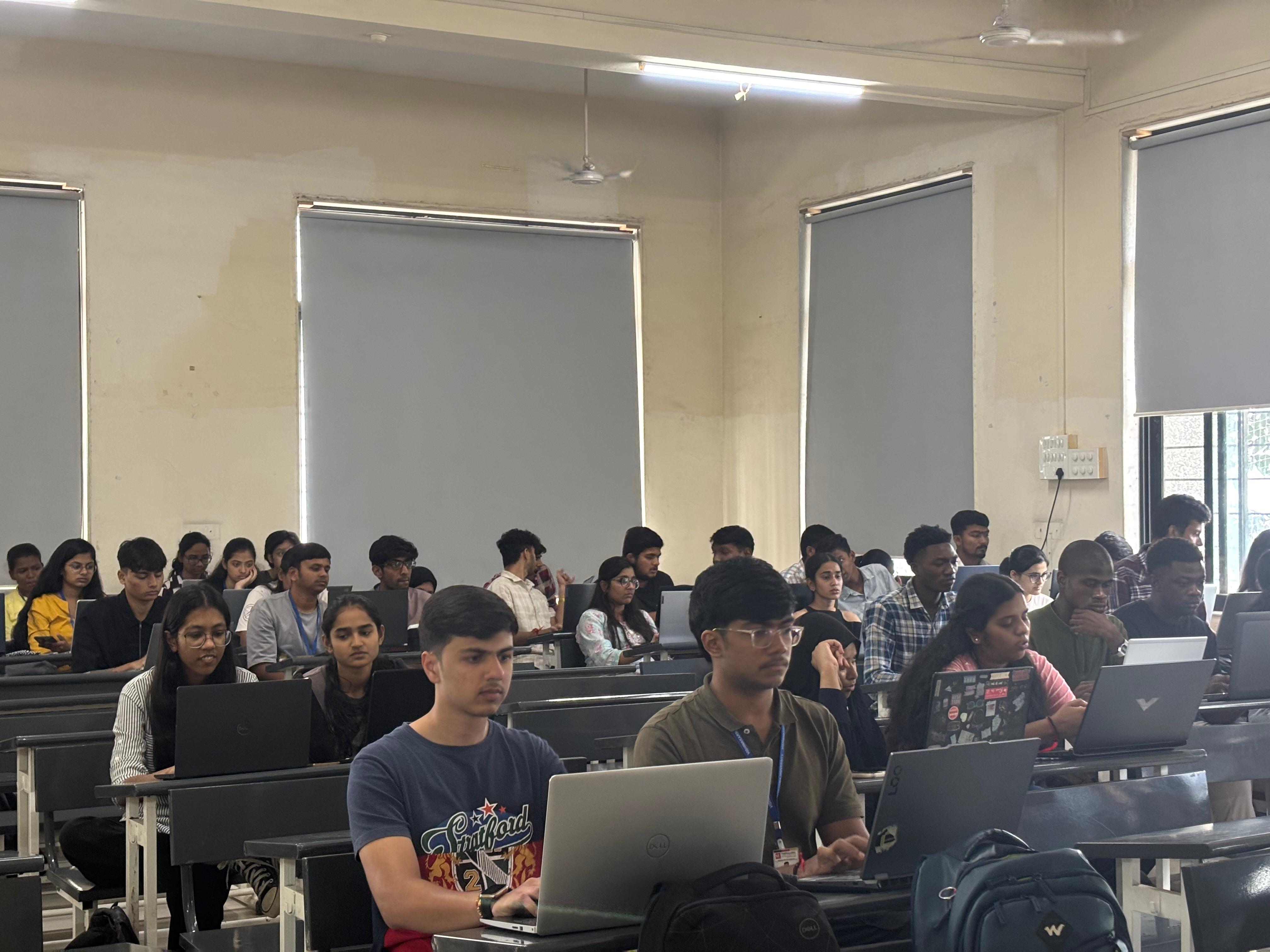
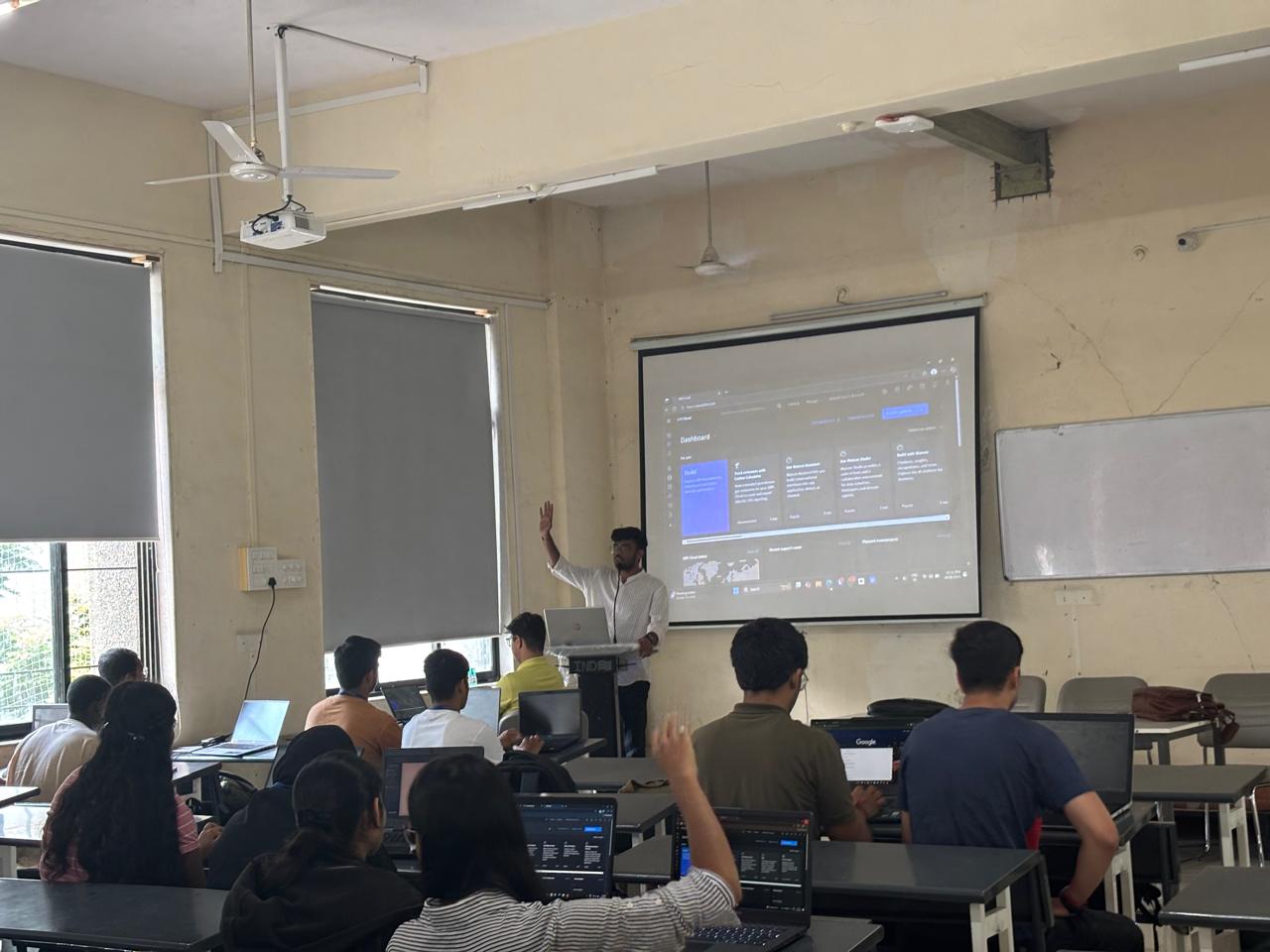
Objective:
The program aimed to provide students with essential knowledge and hands-on experience in emerging technologies such as data science, cloud computing, artificial intelligence, and machine learning. It also sought to enhance practical problem-solving abilities by enabling students to work on real-world projects using IBM Watson Studio and related platforms.Furthermore, the program integrated practical exposure with academic learning to ensure students are aligned with current industry practices and technological trends. Ultimately, it aimed to prepare students to gain a competitive edge in the job market by equipping them with relevant skills, project-based experience, and exposure to widely used tools in the digital workforce. The session focused on exploring the IBM Cloud Platform and its wide range of services. It began with an introduction to cloud computing and IBM Cloud services, followed by insights into Artificial Intelligence through the IBM course Getting Started with AI.
Date: 19th Aug-21st Aug, 2025
Venue: VU Building No: 2, Room 2001A , Vishwakarma University
Mode: Online, Offline
Participants:
Third Year students of Artificial Intelligence, Faculty of Science and Technology,
Vishwakarma University, Pune.
Organizers:
Organizing Chairperson
o Mr. Kiran Pawar, Deputy Director, Training & Placement Cell
Conveners:
o Prof. (Dr.) Kailas Patil, Dean, Faculty of Science & Technology
o Prof. (Dr.) Sandip Thite, Associate Dean, Faculty of Science & Technology
Co-Convener:
o Dr. Pavitha Nooji, Head, Department of Artificial Intelligence
Faculty Coordinator:
o Prof. Mayuri Satpute, Department of Artificial Intelligence
Program Highlights:
The event was organized by the Training and Placement Cell in collaboration with the Department of Artificial Intelligence, Faculty of Science & Technology, Vishwakarma University.The session was conducted by Aditya Dambale and Rohidas Shelar who guided students on The IBM SkillsBuild for College program provided students with access to the IBM Cloud platform, enabling them to gain hands-on experience with cloud-based applications widely used across industries. The training focused on emerging technologies such as data science, cloud computing, artificial intelligence, and machine learning, ensuring that students acquired knowledge in high-demand domains. A practical learning approach was adopted through a blend of online courses, interactive sessions, and real-world projects using IBM Watson Studio, which helped students strengthen their problem-solving and analytical skills. Participants were introduced to Large Language Models (LLMs), prompting techniques, and data analytics. The hands-on activities included crop recommendation using Watson Machine Learning with AutoAI, creating Jupyte notebooks with IBM Watson Studio, data refinement using IBM Data Refinery, and building a chatbot for college admissions with Watsonx Assistant. Additional sessions covered Prompt Lab with IBM Granite LLM, Agentic AI, and a discussion on IBM Events and Project-Based Learning (PBL), providing practical exposure to real-world AI and cloud applications.
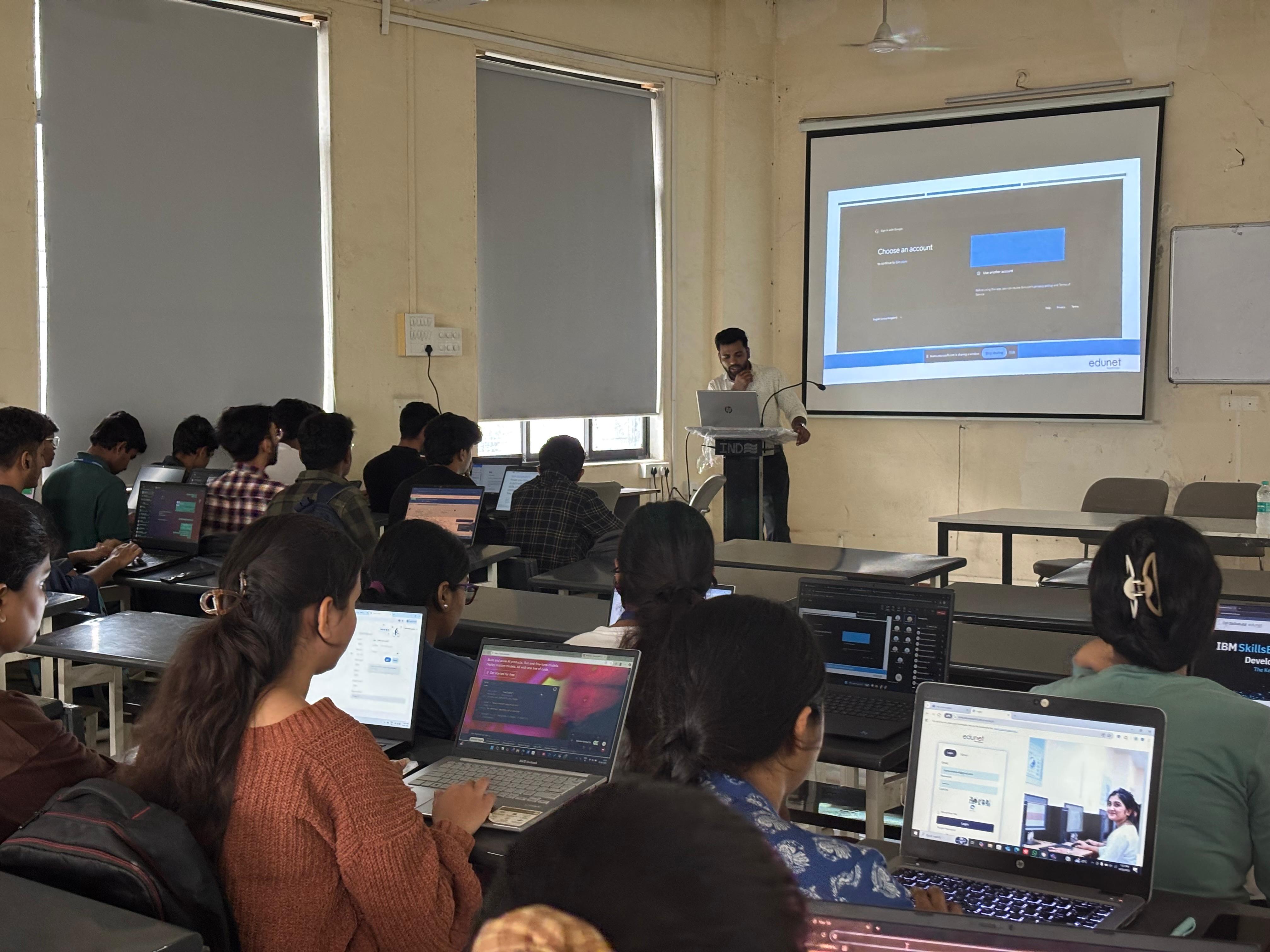
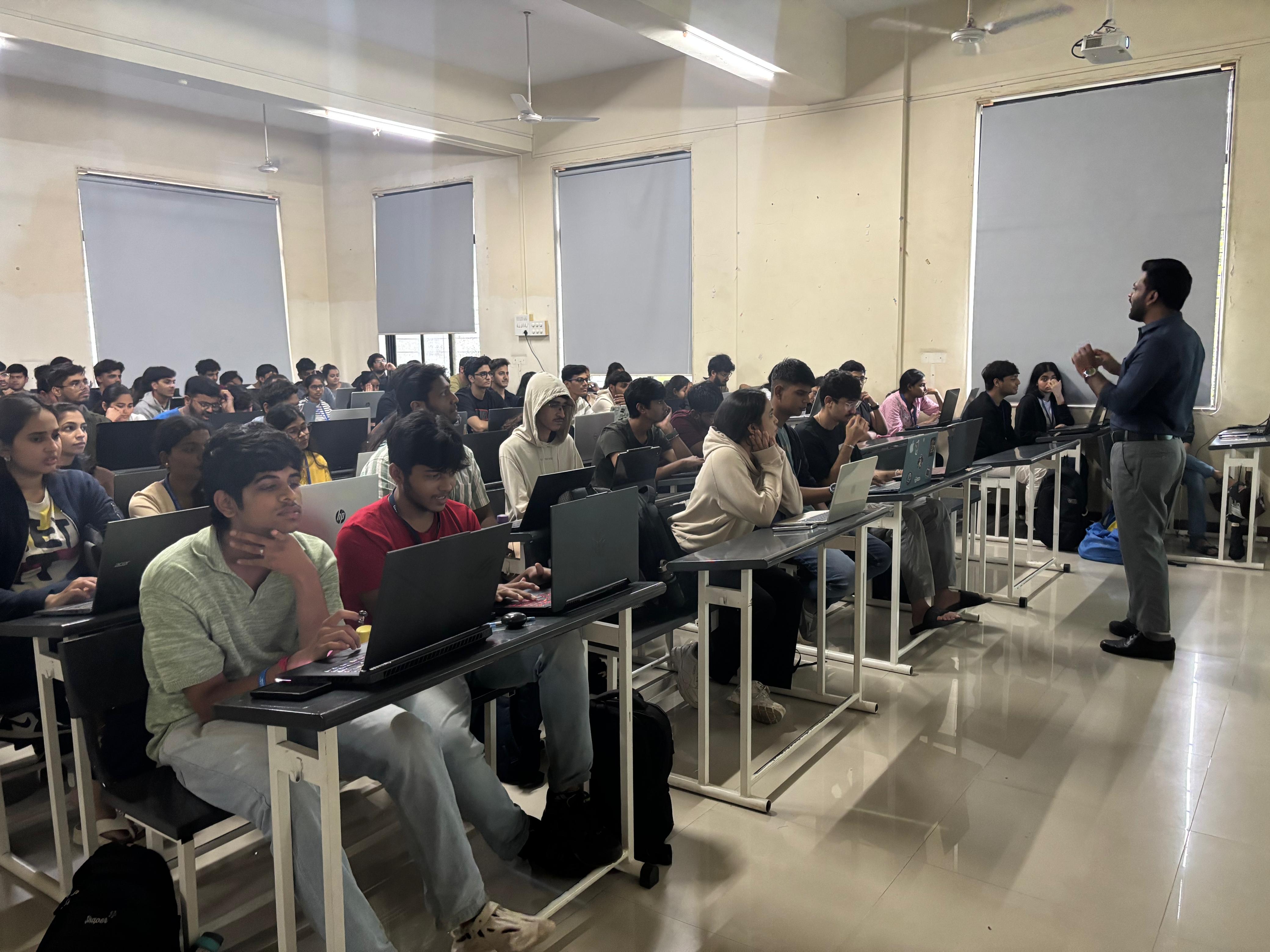
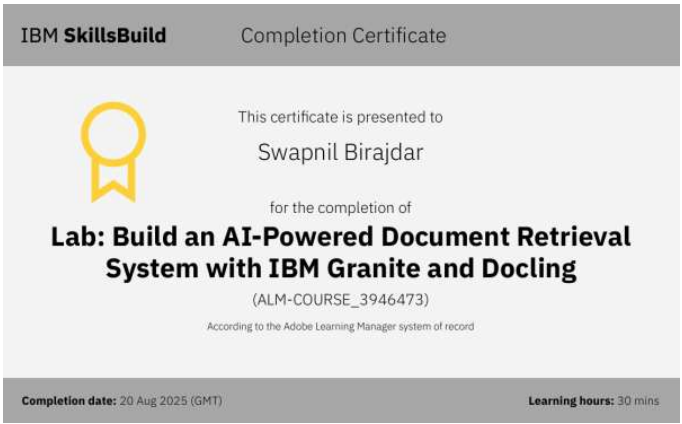
VU Rakshak – the Students’ Defence Resource Development Cell of Vishwakarma University, successfully organized the Army & Veterans Day Celebration on 14 January 2026 at the VU Auditorium, in collaboration with the University Student Council. The event was conducted to honour the courage, discipline, and selfless service of the Indian Army and veterans, while inspiring students to consider careers in defence and allied services.
A significant highlight of the event was the inauguration and unveiling of the VU Rakshak Logo, marking an important milestone for the Cell. VU Rakshak aims to mentor, guide, and support students aspiring to serve the nation through defence services by providing awareness, motivation, and structured guidance.
The programme was graced by eminent defence professionals whose presence greatly enriched the occasion:
The event witnessed enthusiastic participation from students, faculty members, and members of the Student Council. The collaboration between VU Rakshak and the Student Council ensured smooth coordination and effective execution of the programme.
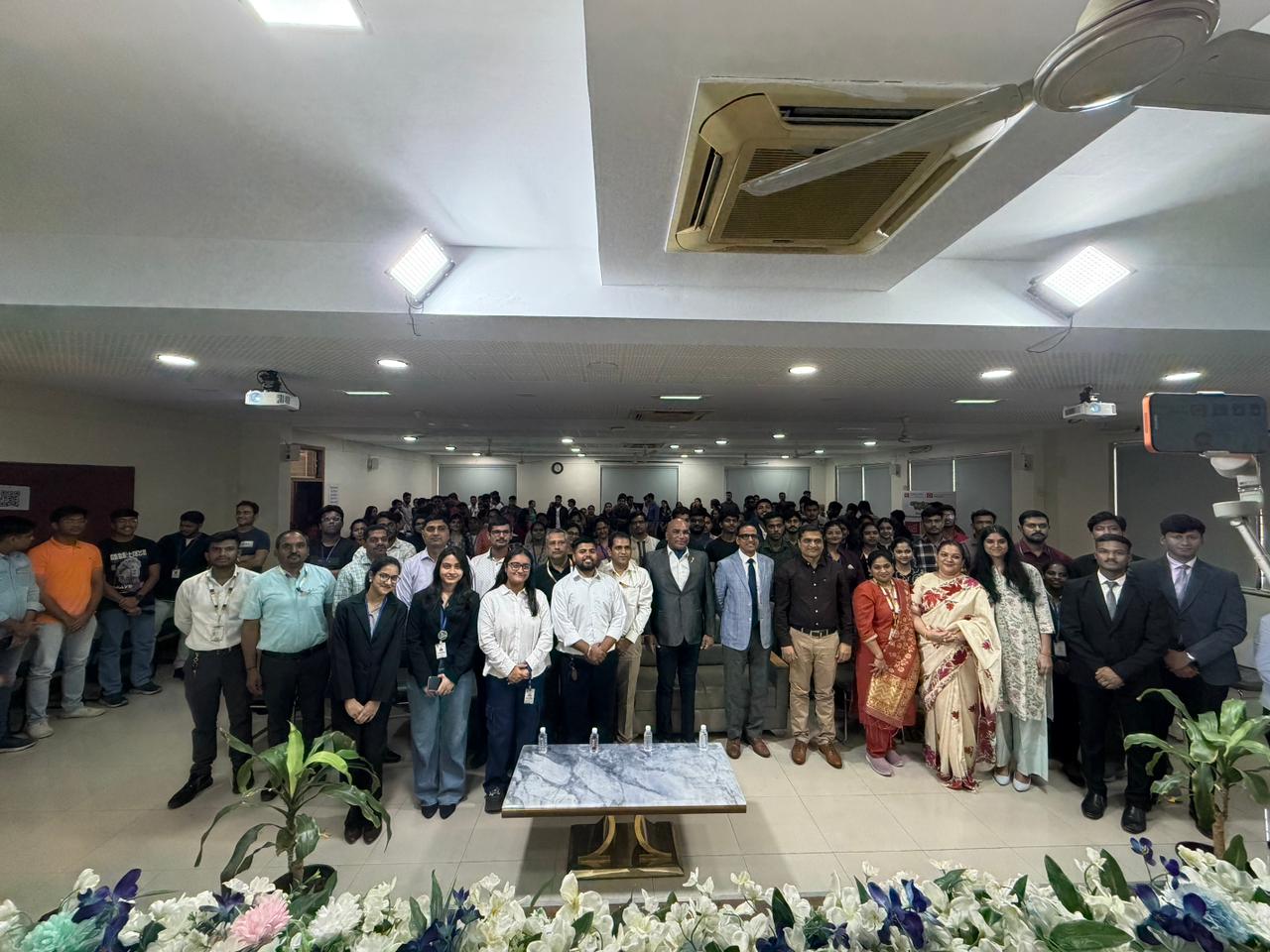
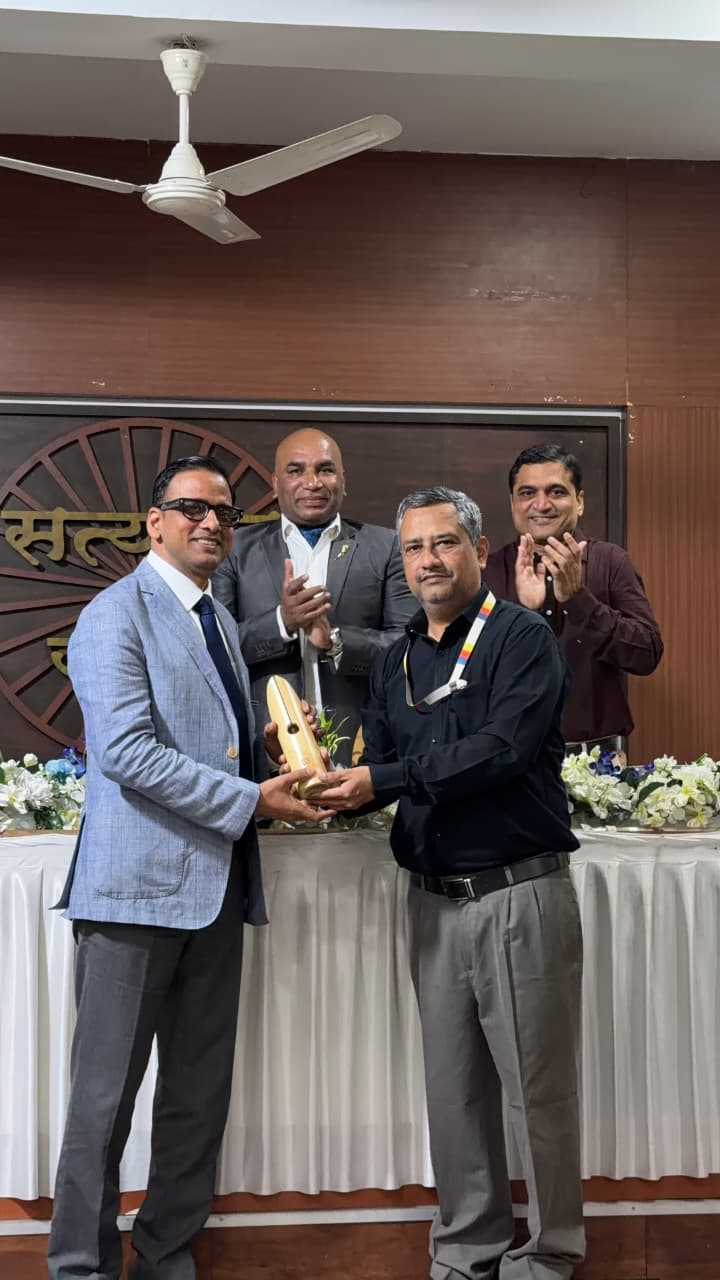
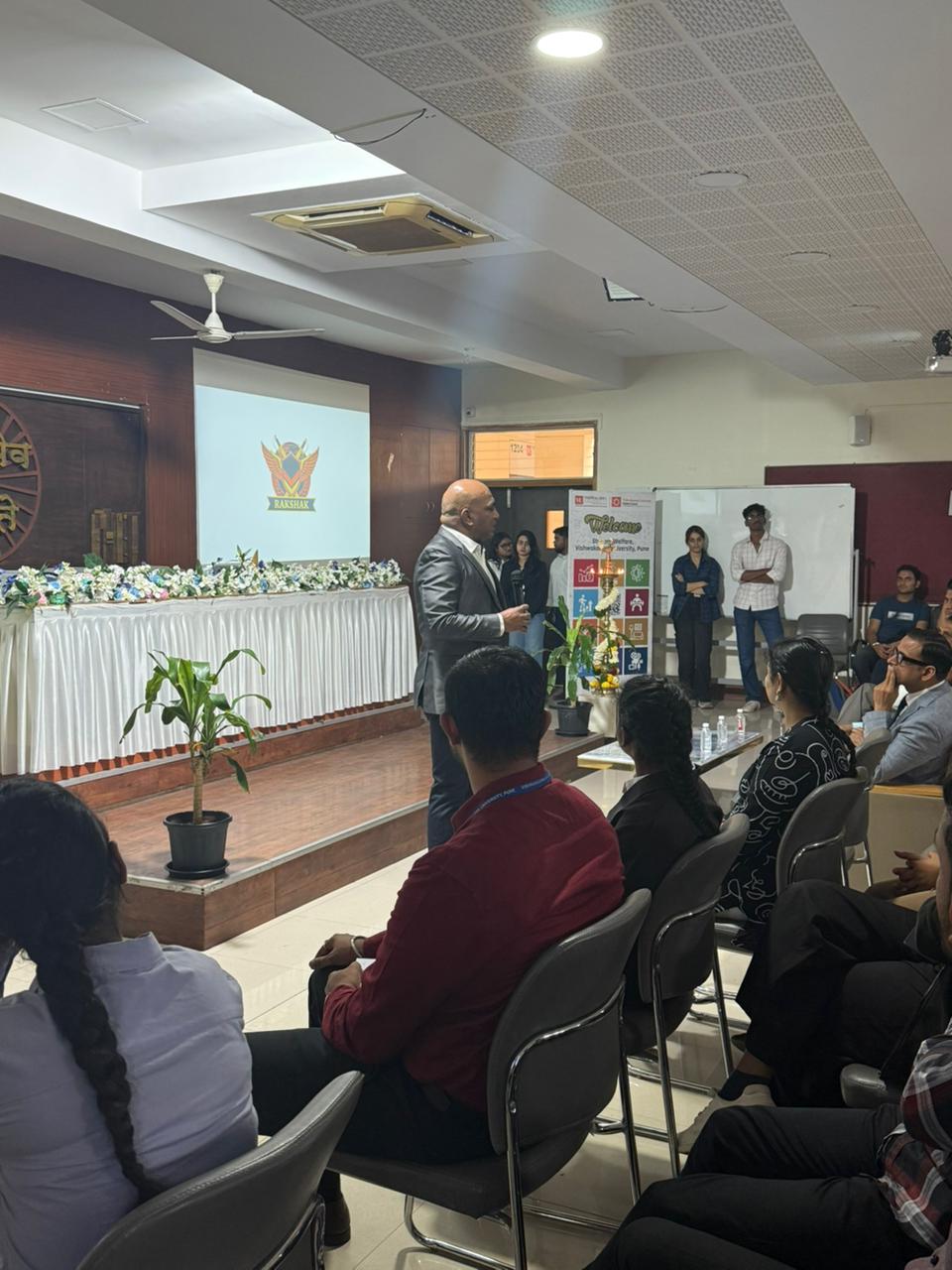
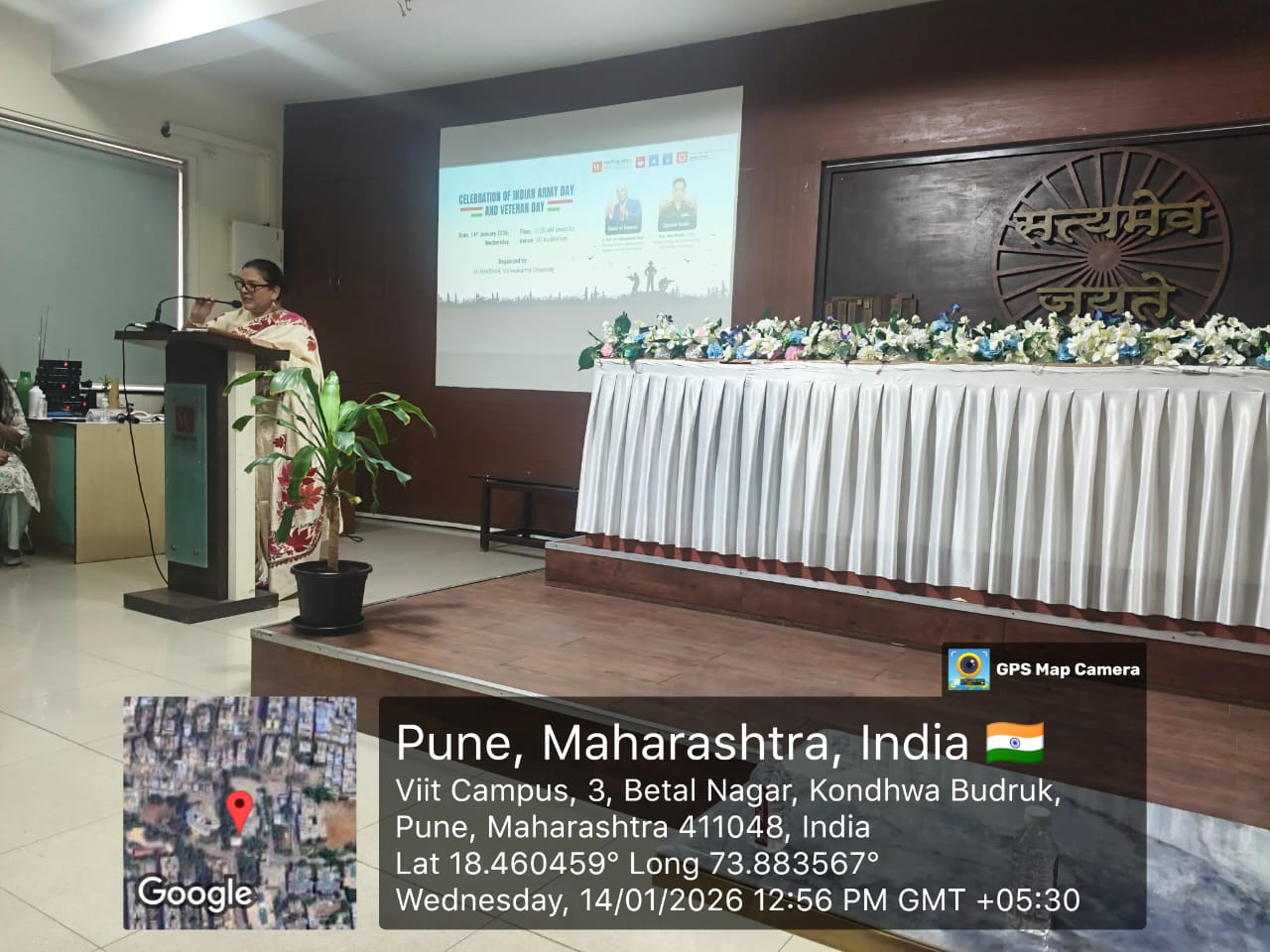
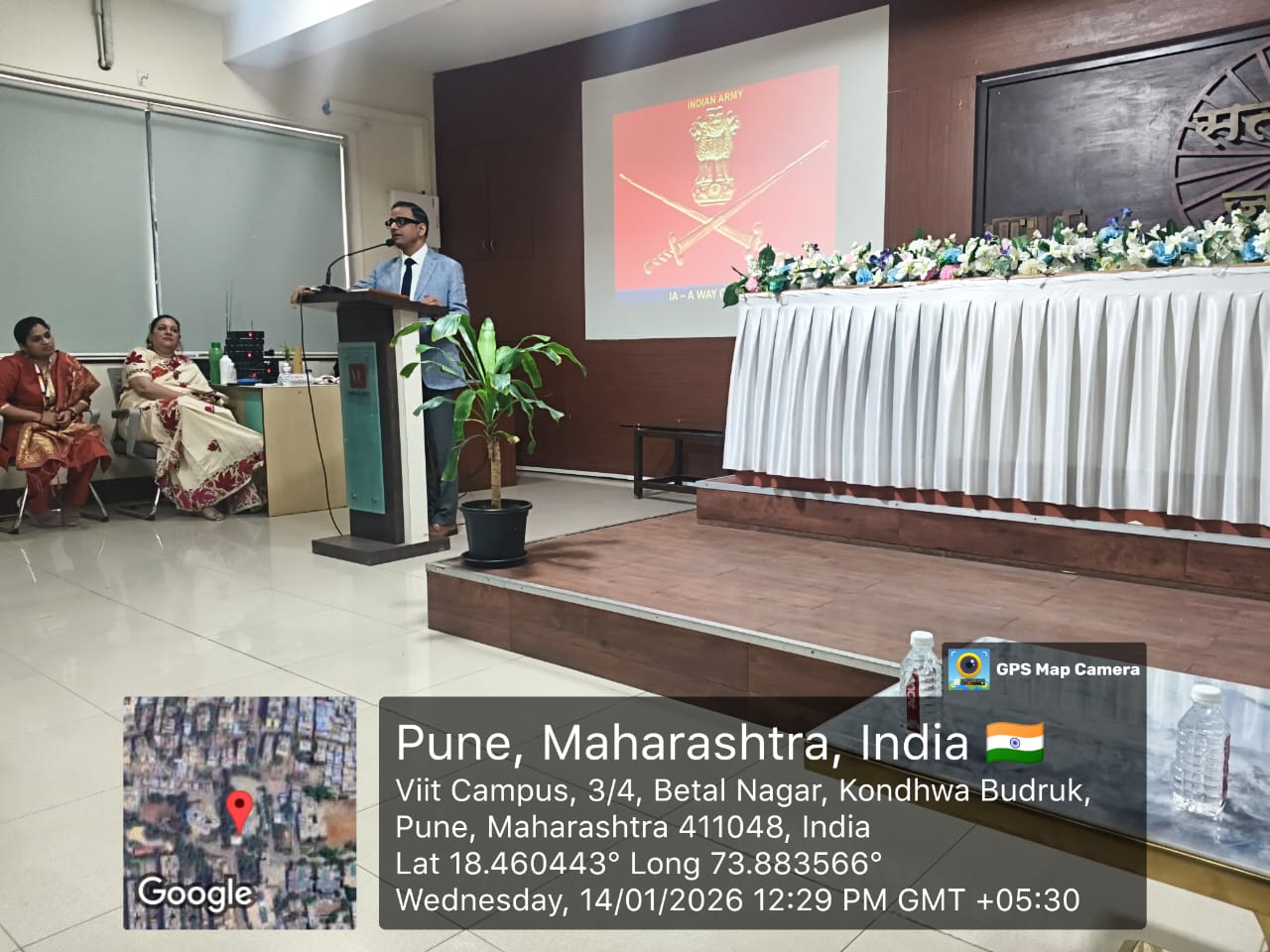
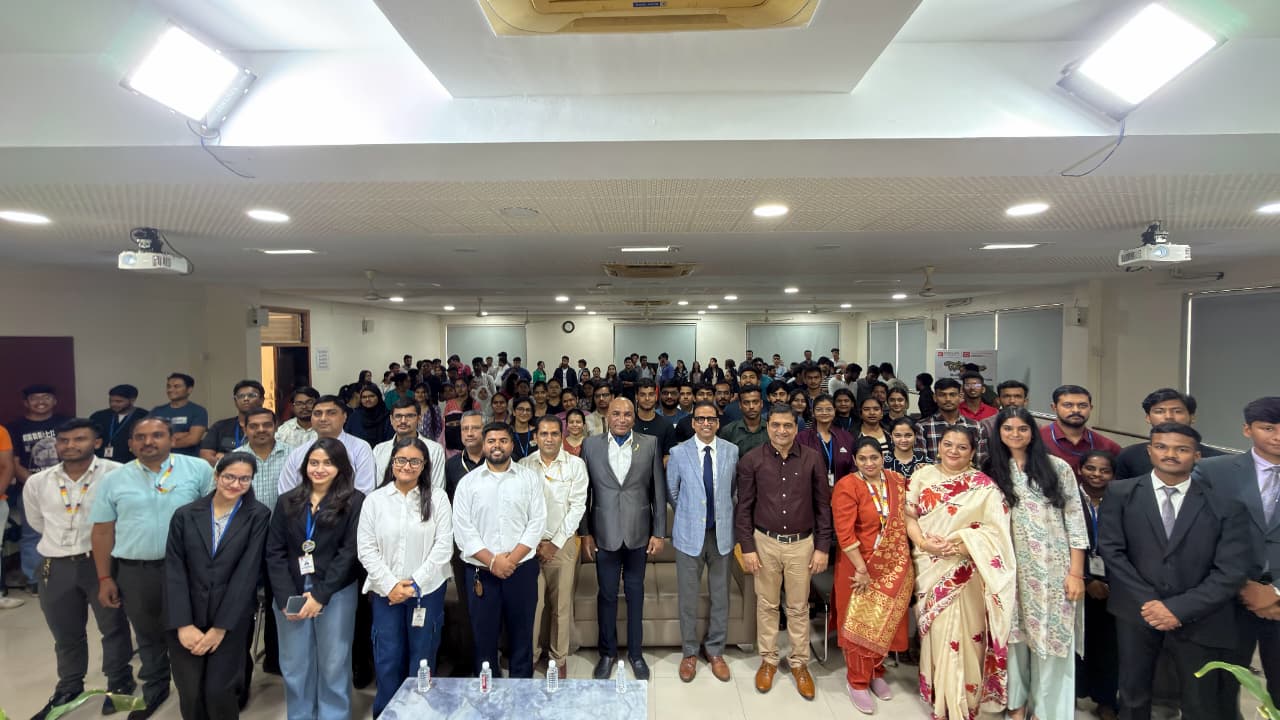
Pickleball Workshop (7th January 2026)
Vishwakarma University successfully organized a Pickleball Workshop on 7th January 2026 at the University Basketball Court, in collaboration with Pune United, one of the founding franchises of the World Pickleball League (WPBL).
The objective of the workshop was to introduce students to the fundamentals of pickleball, promote physical fitness, and encourage participation in emerging sports. The workshop was conducted in three batches to ensure effective training and engagement, with sessions scheduled from 3:00 PM to 6:00 PM.
The workshop included:
An introduction to the rules and basics of pickleball Demonstration of techniques and equipment Practical drills and match play under expert guidance
A total of 100+ students, including boys and girls, actively participated in the workshop. The students showed great enthusiasm and interest throughout the sessions, making the event highly interactive and engaging.
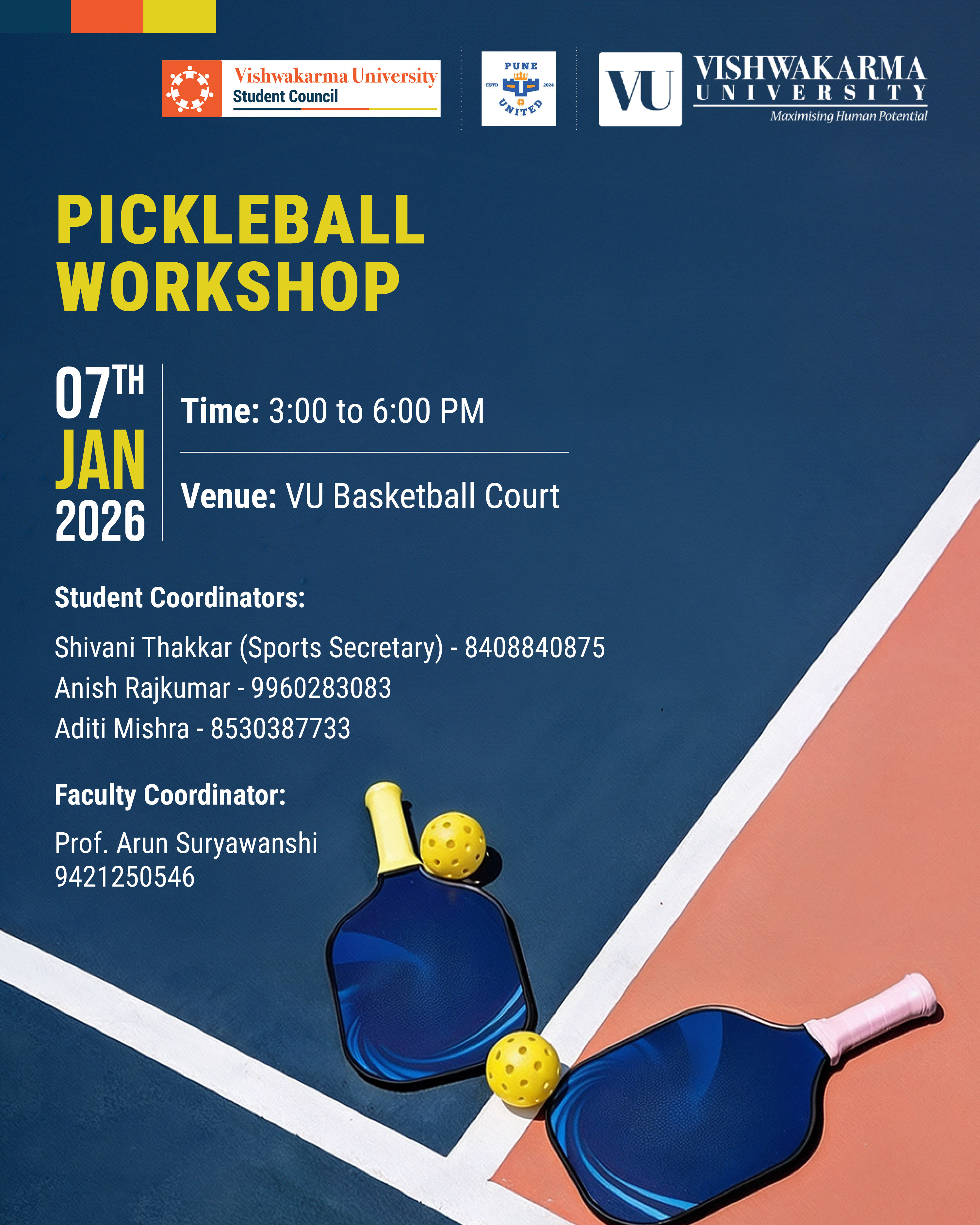
.jpeg)
.jpeg)
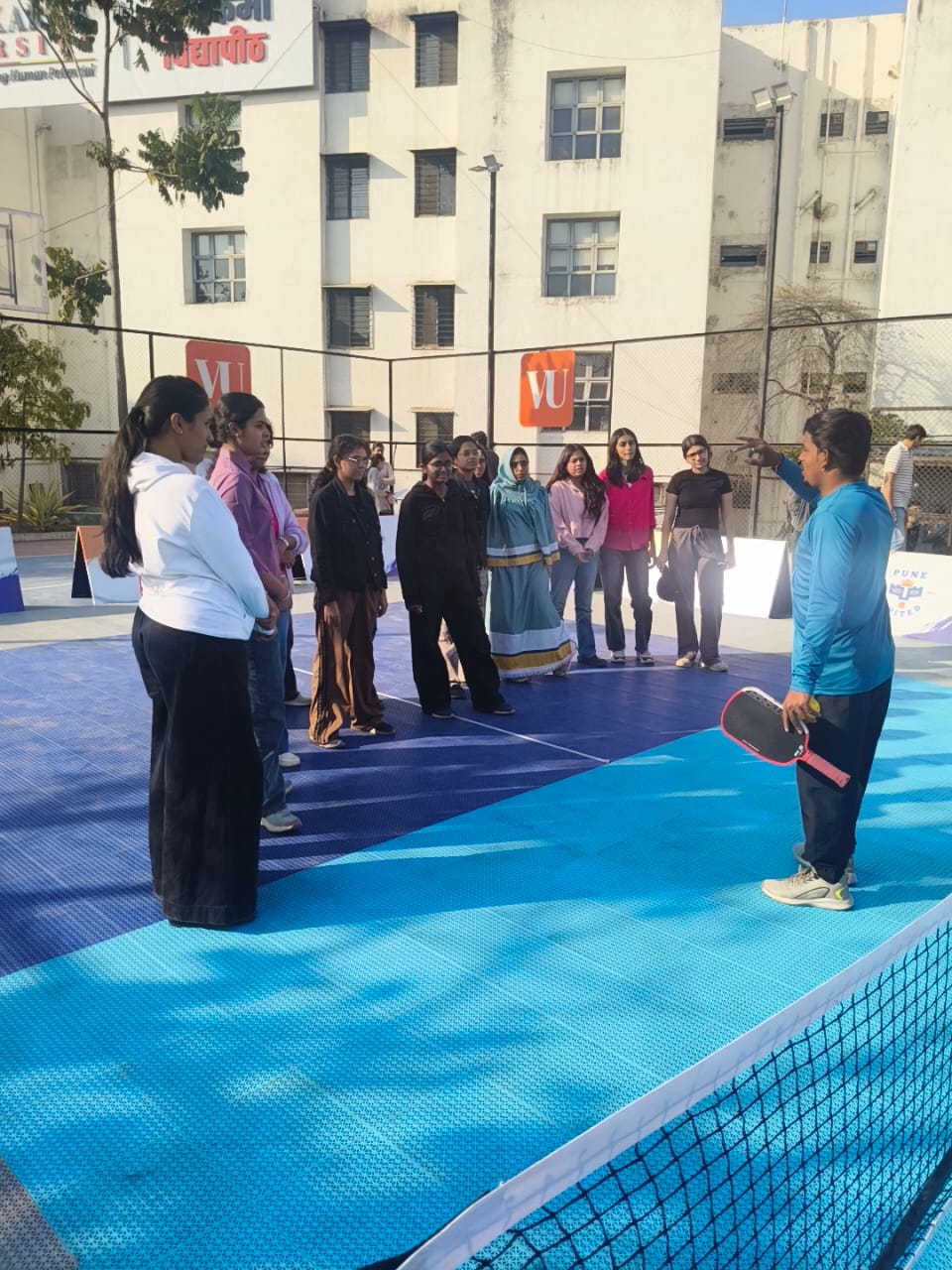
.jpeg)
.jpeg)